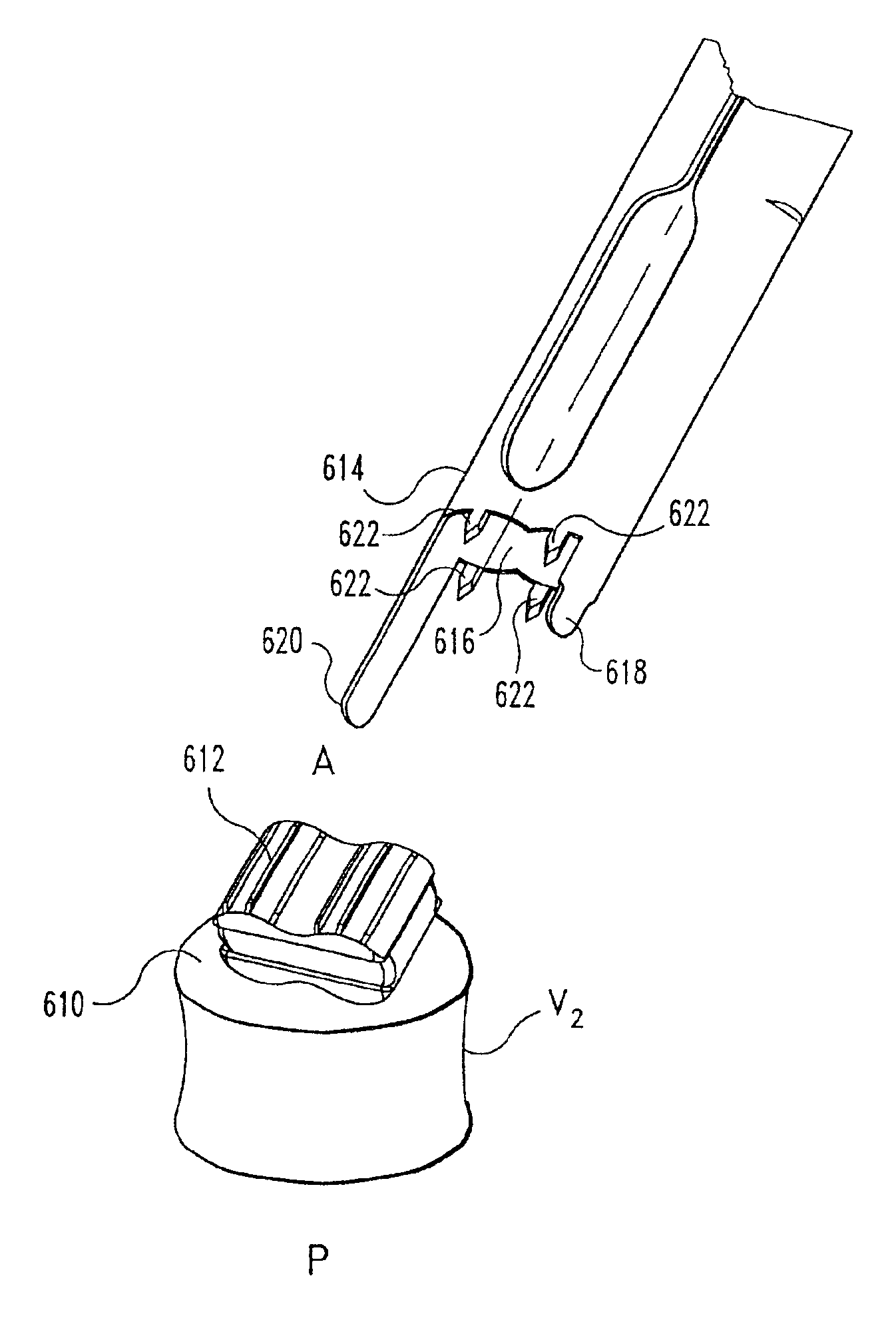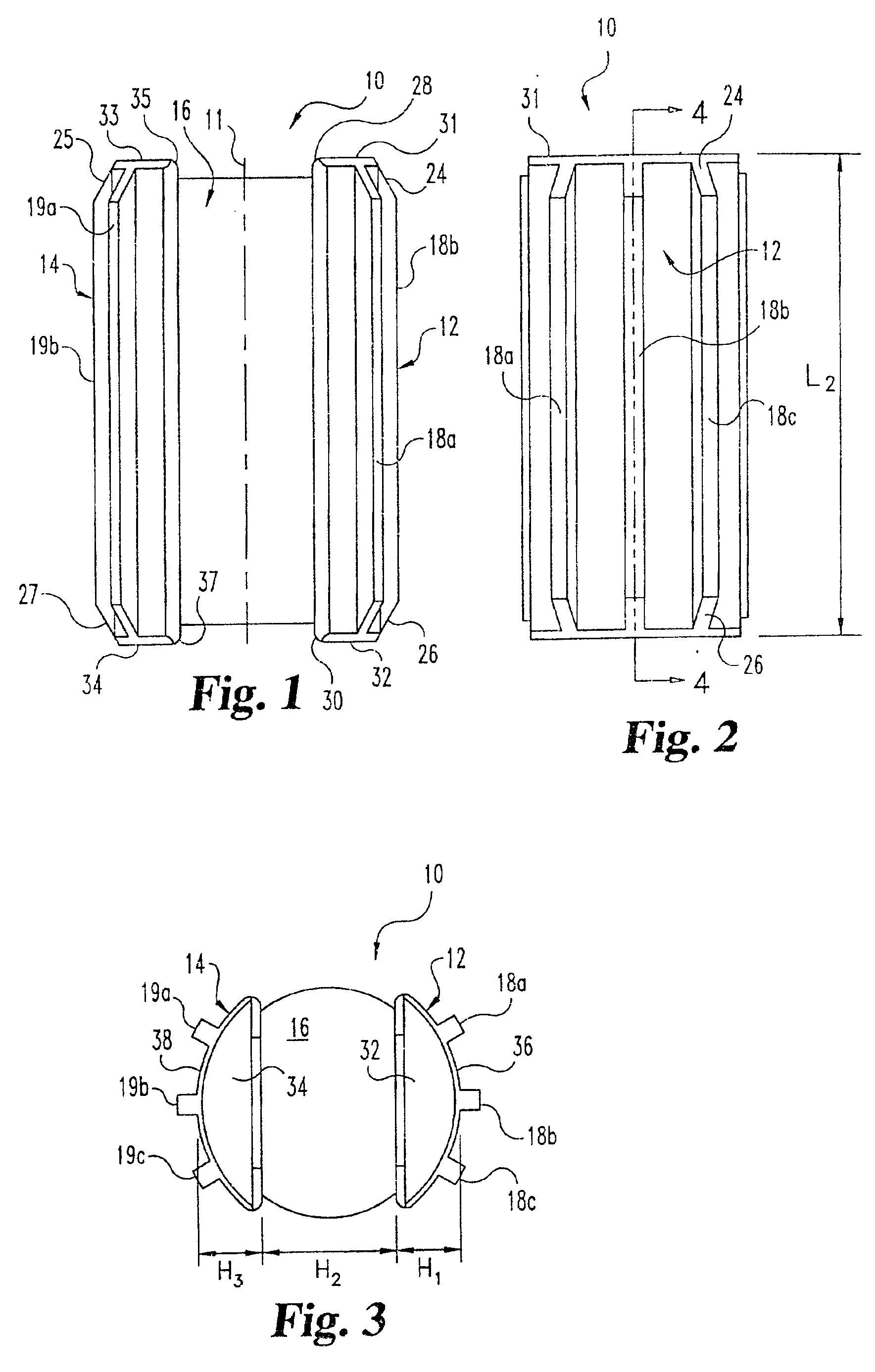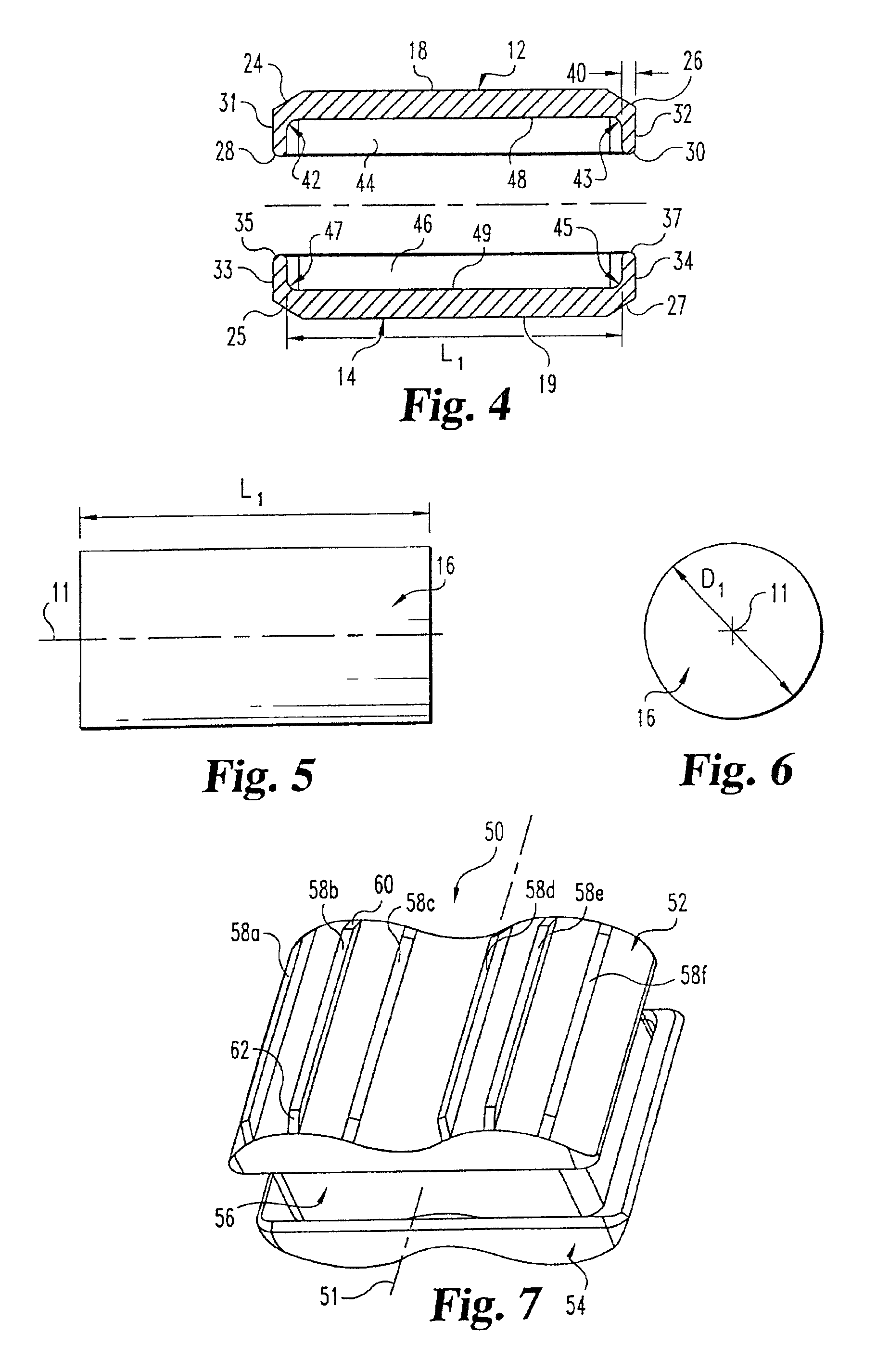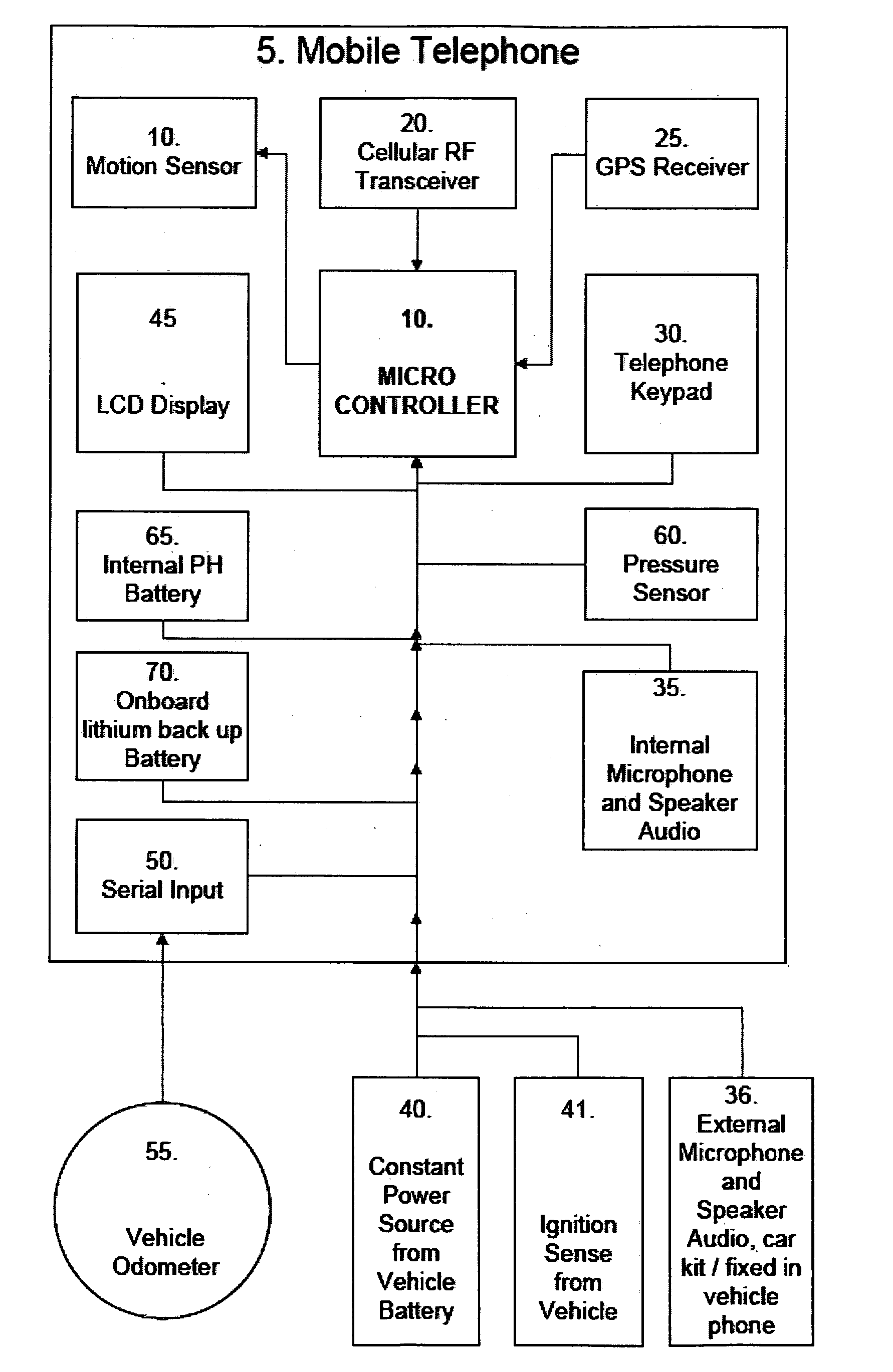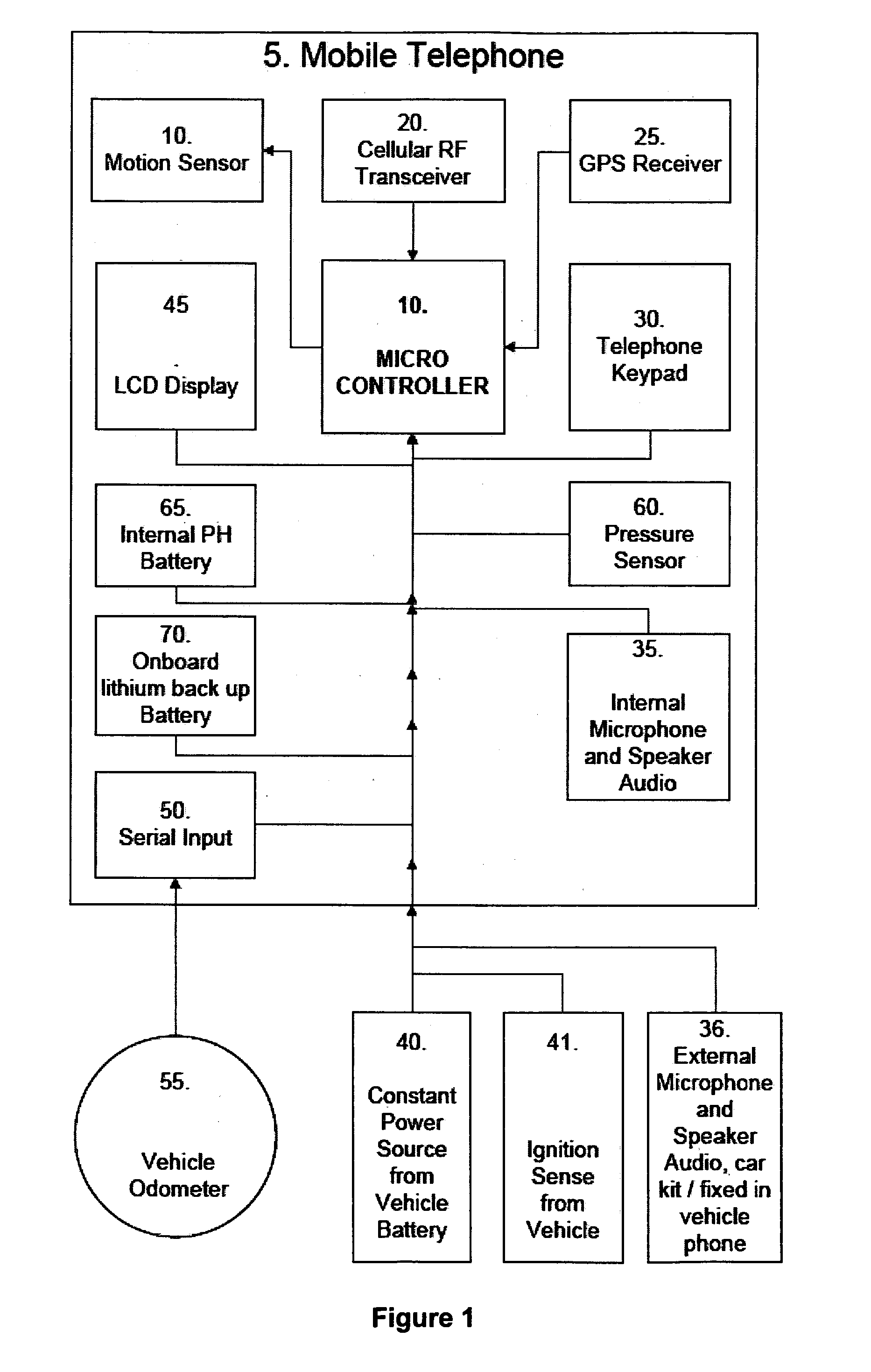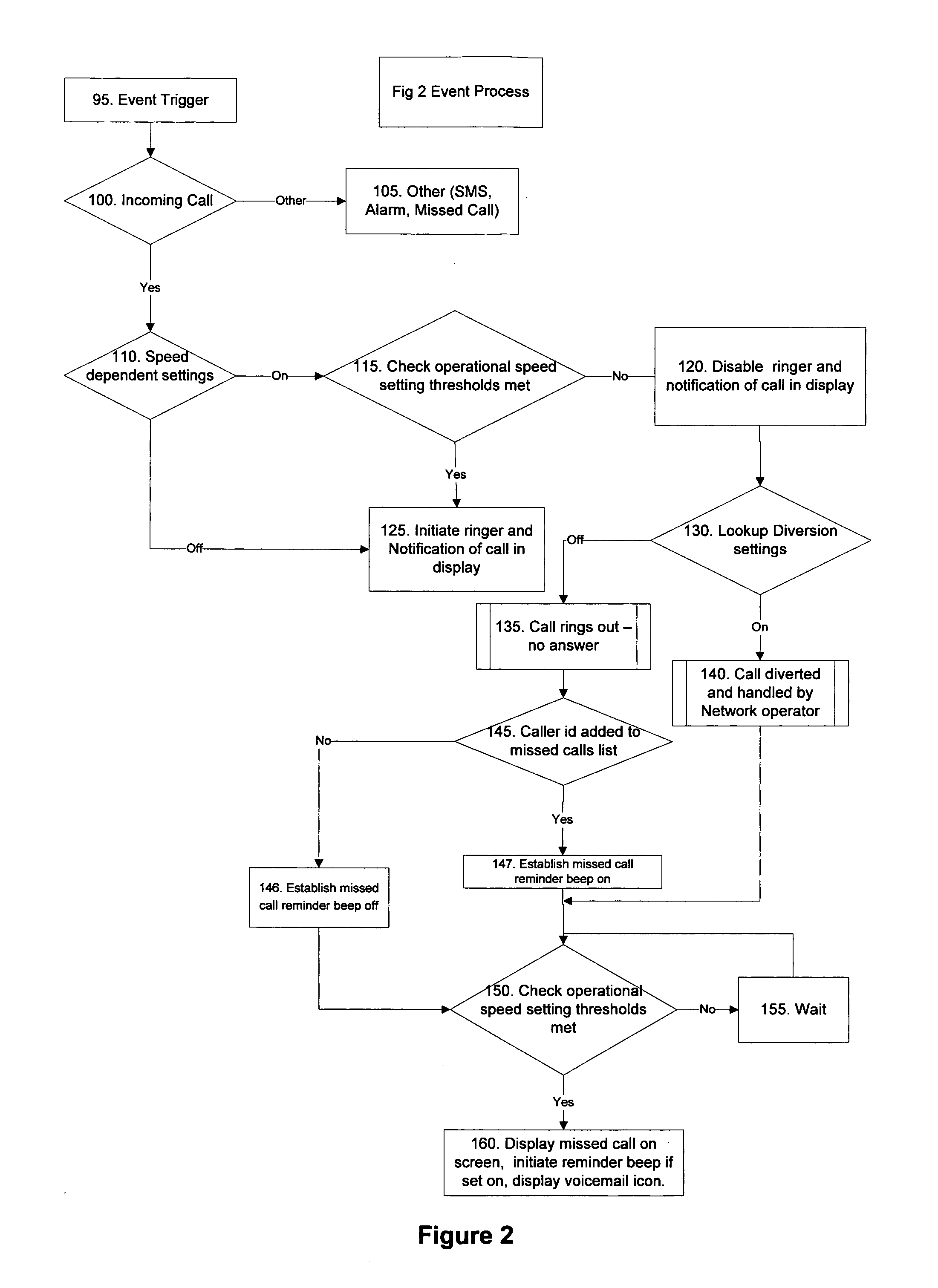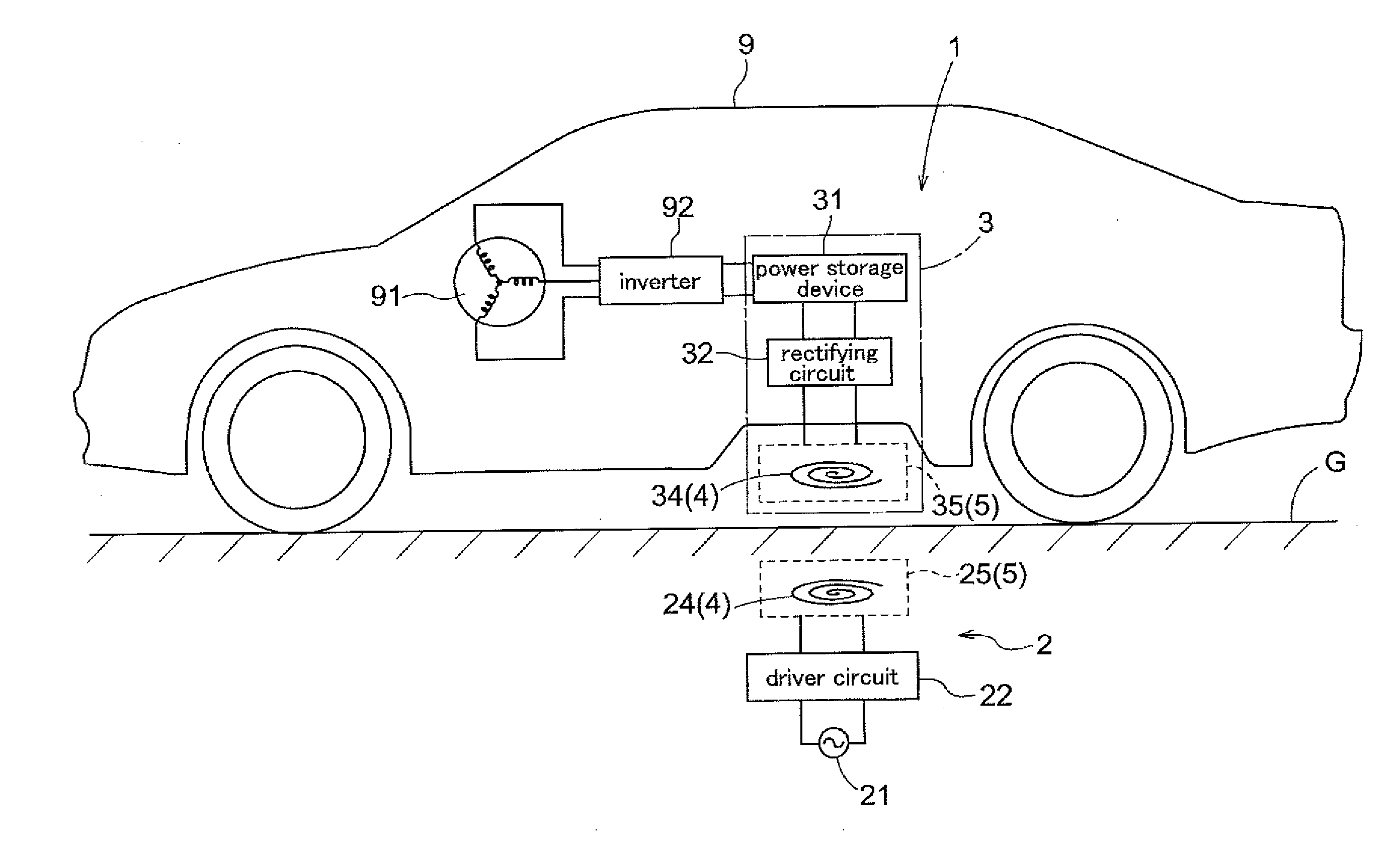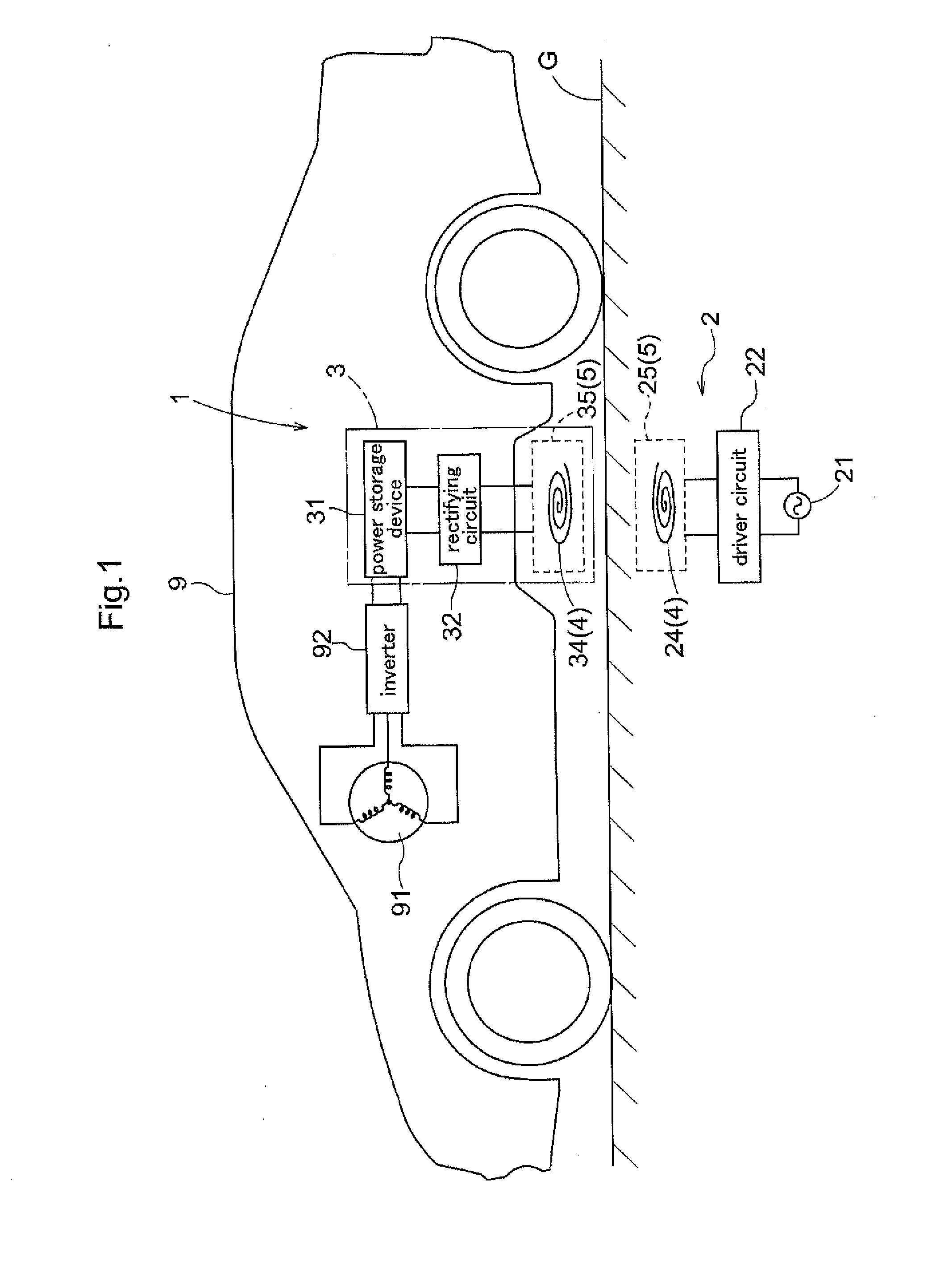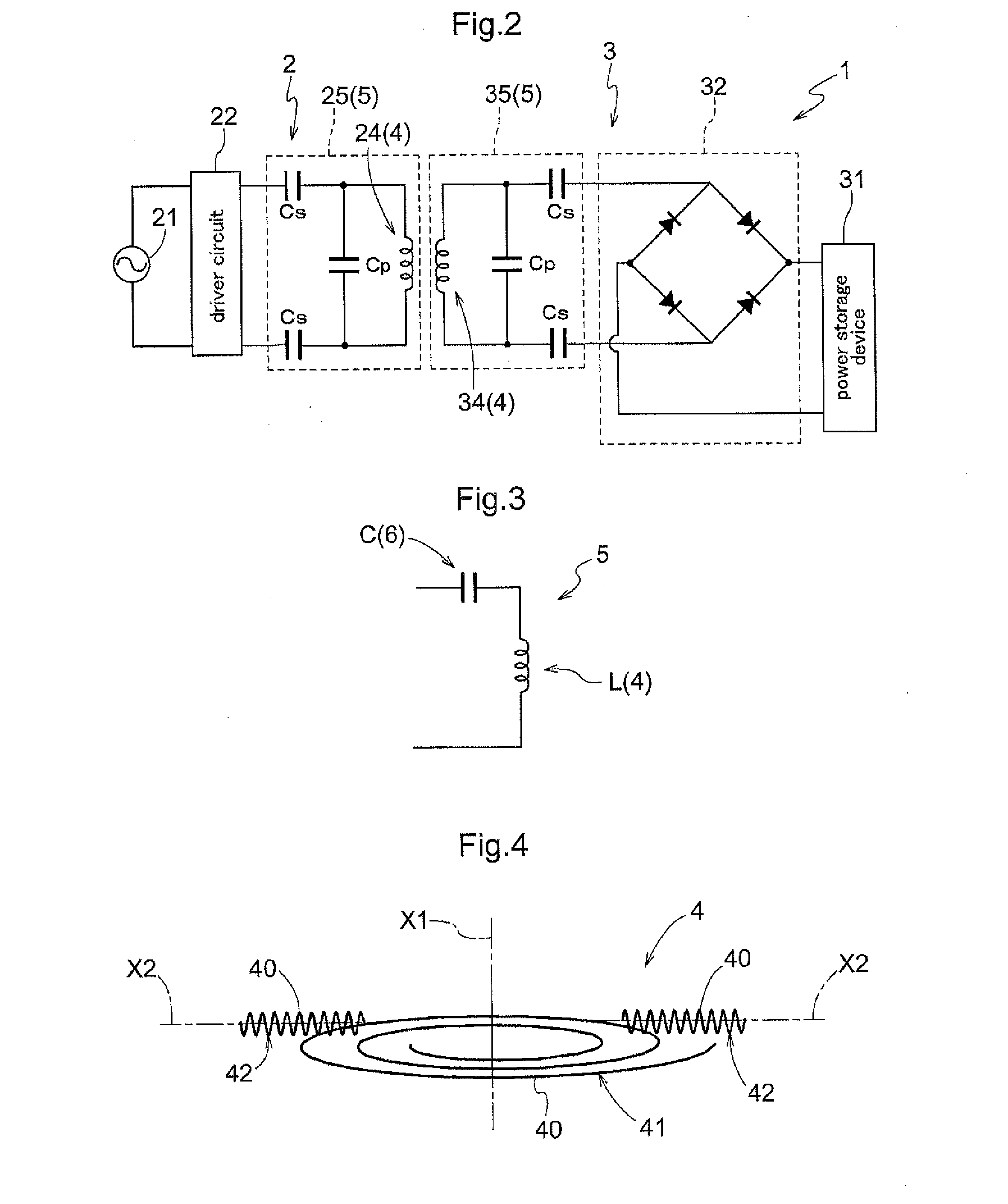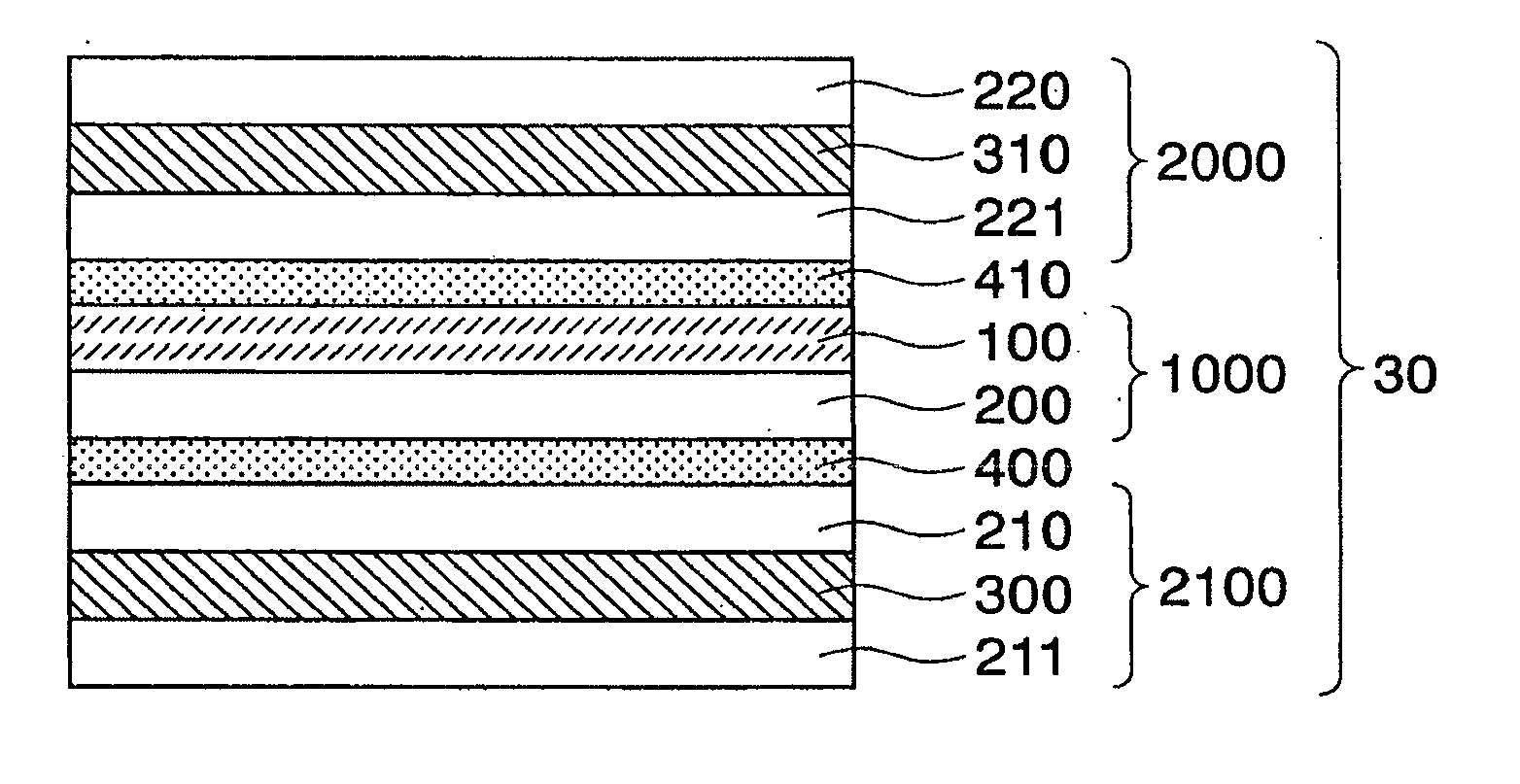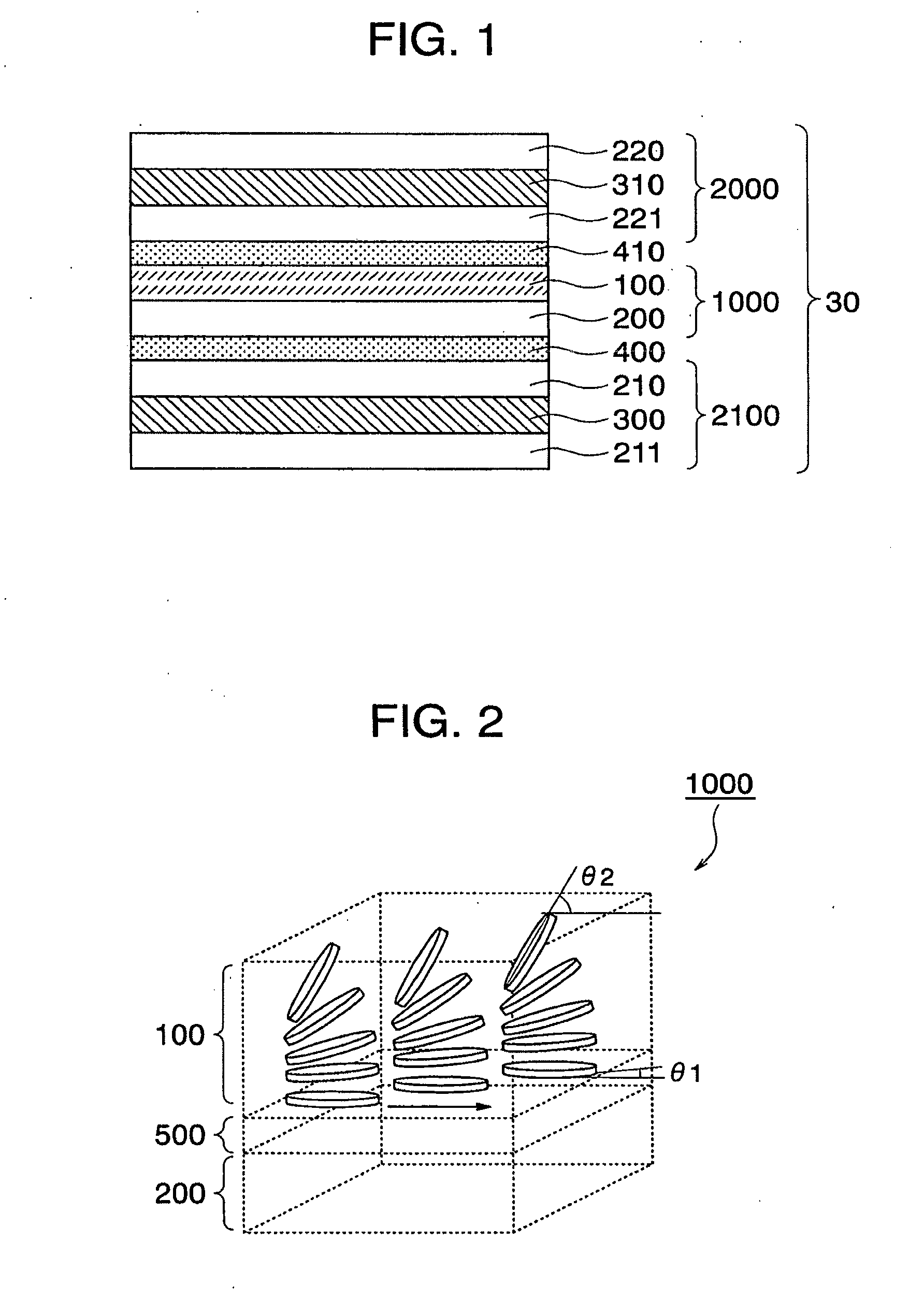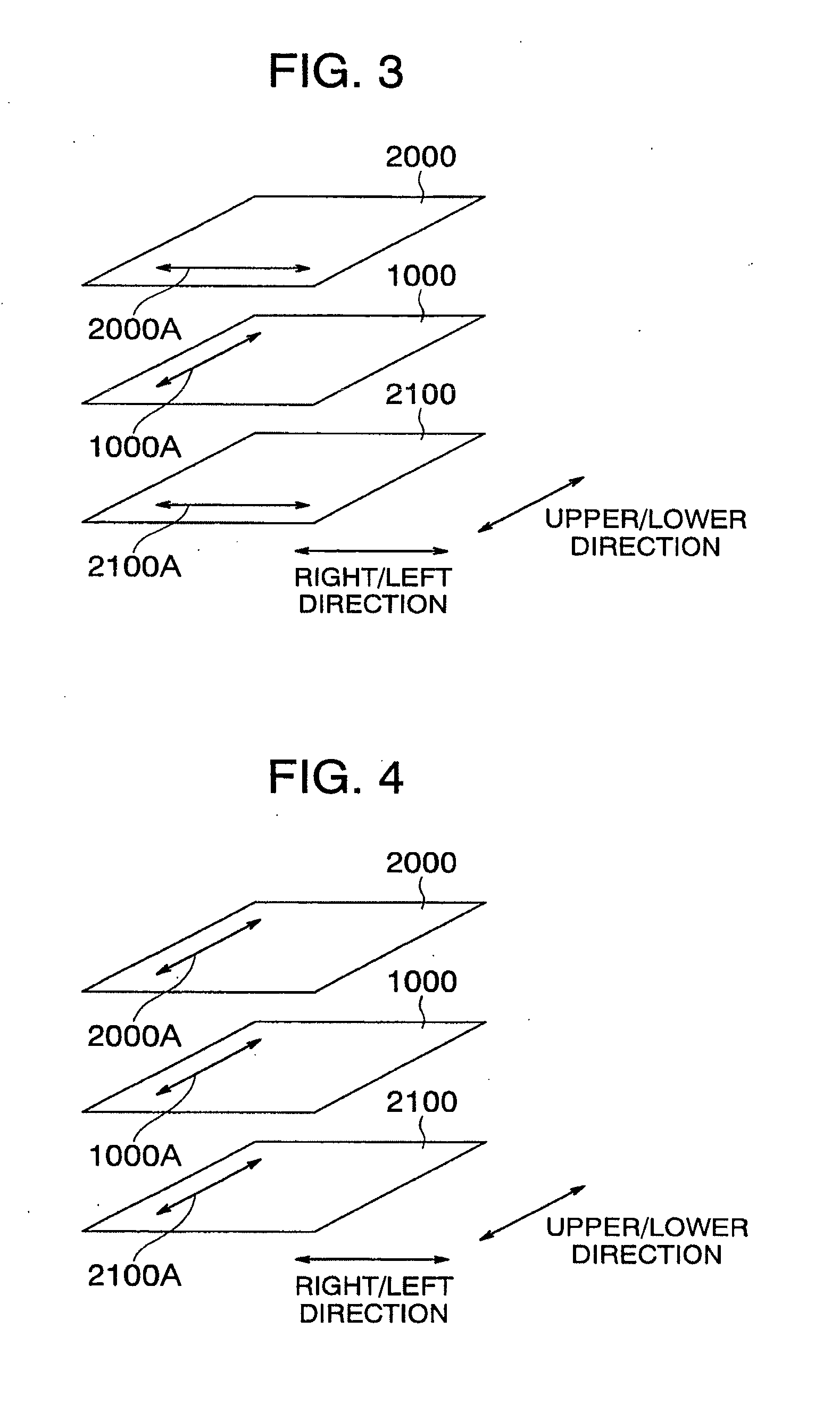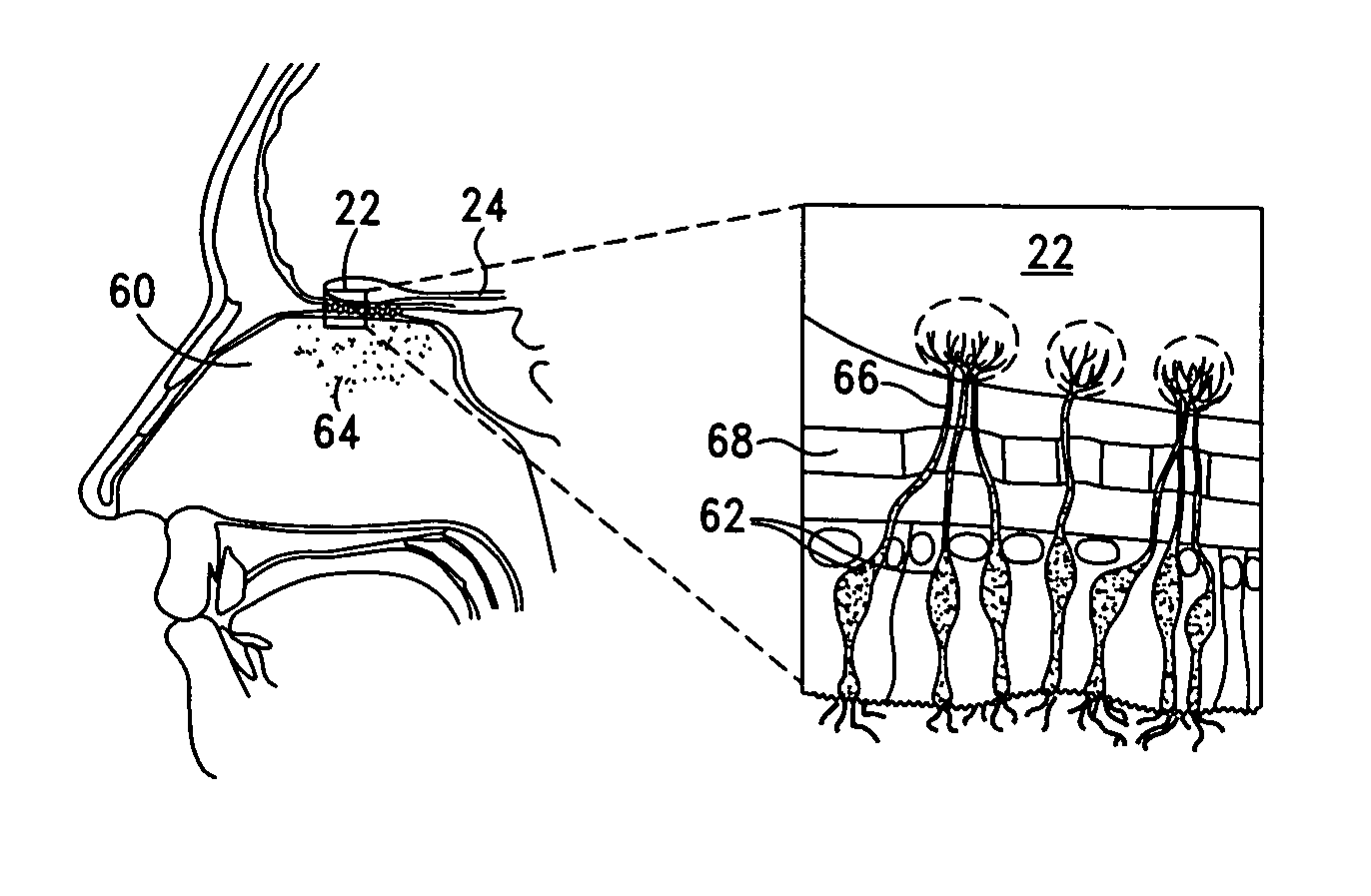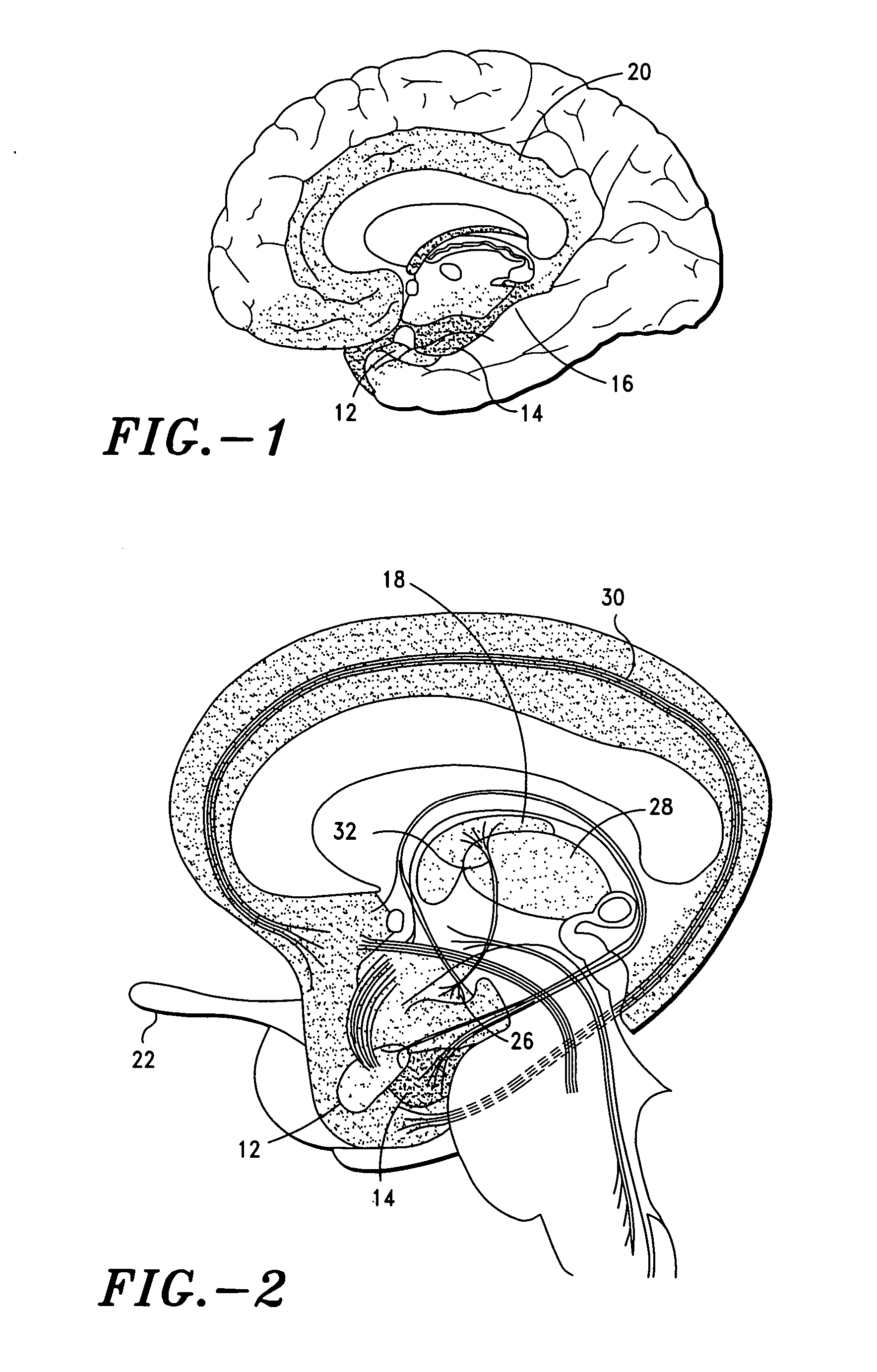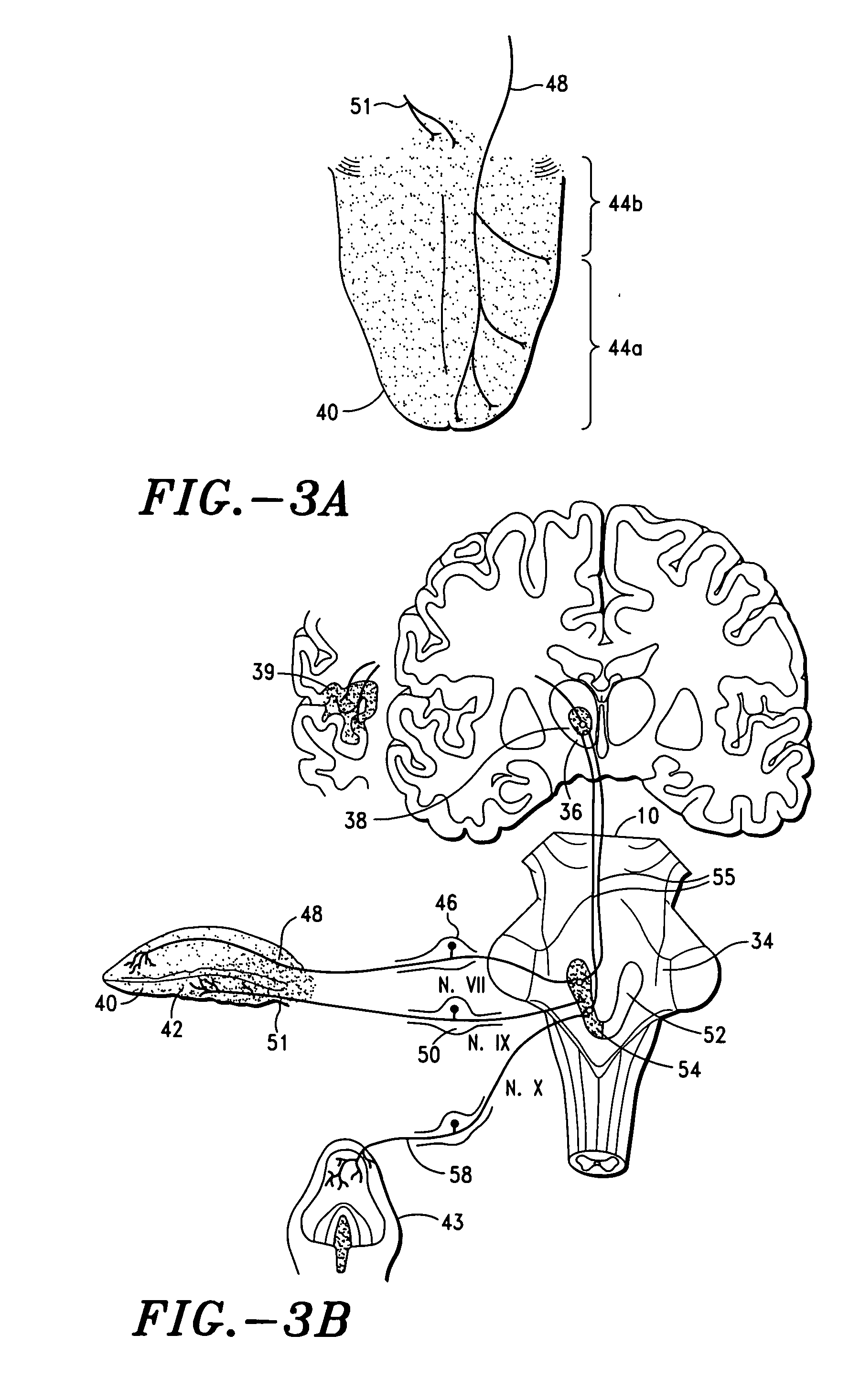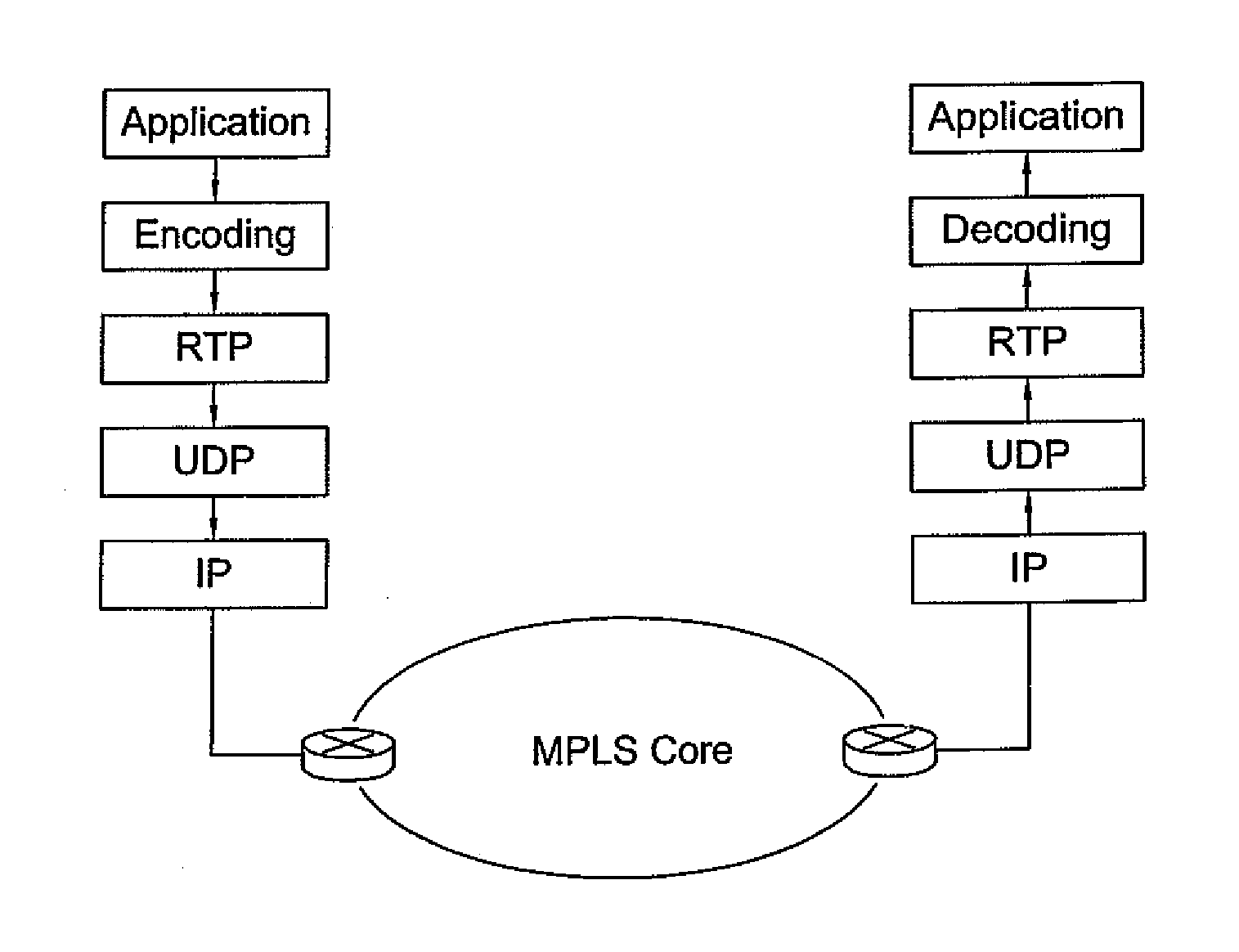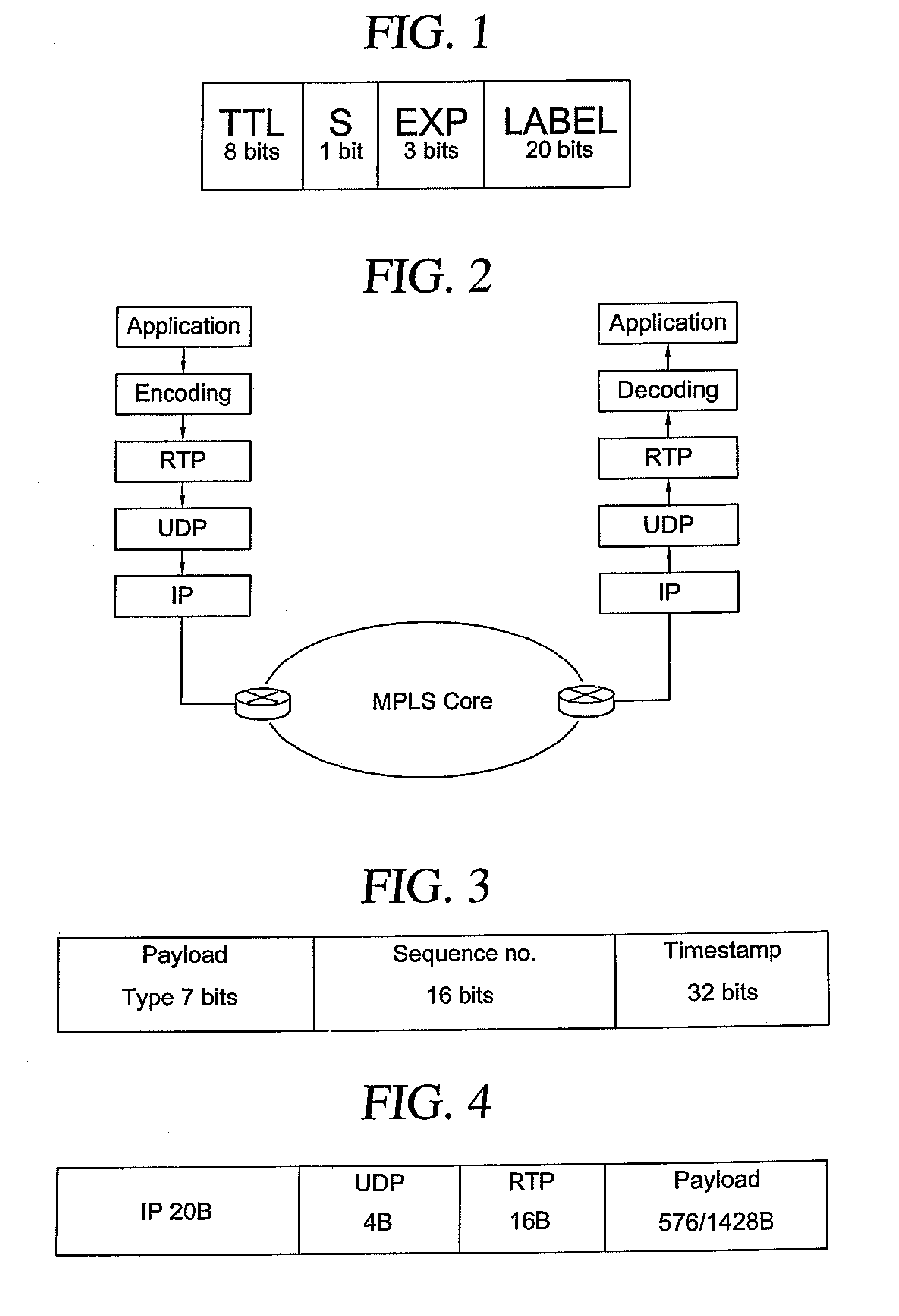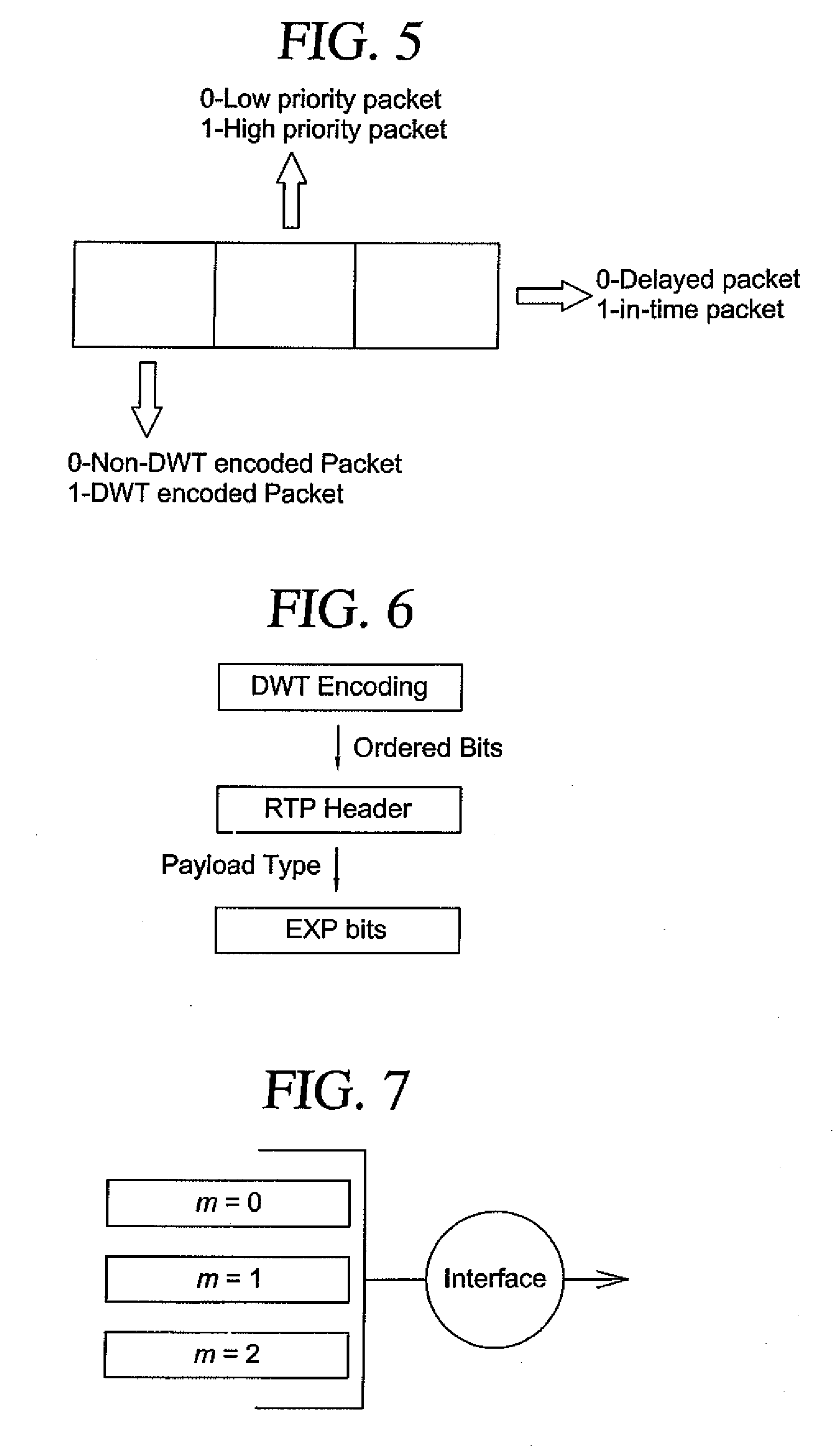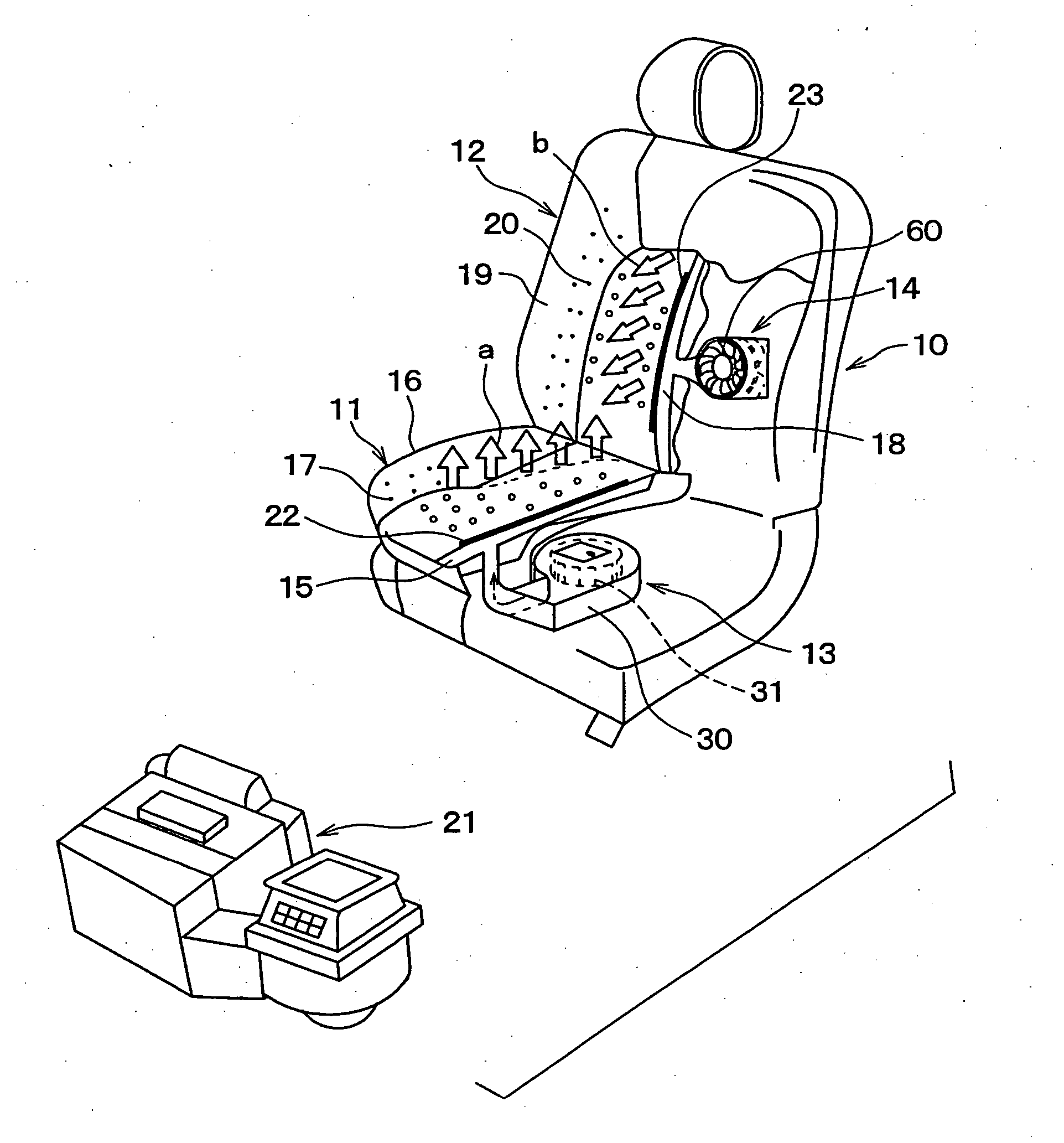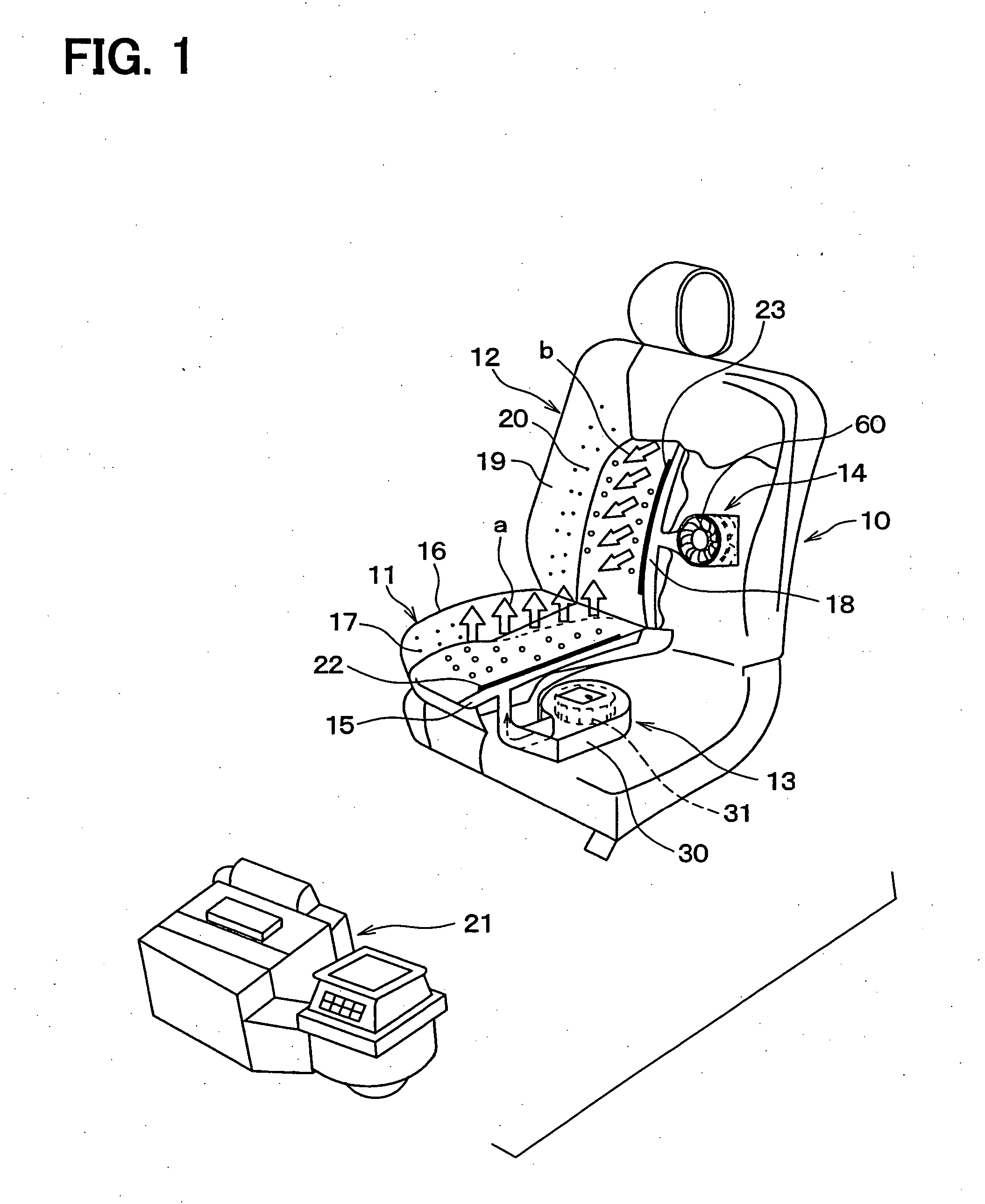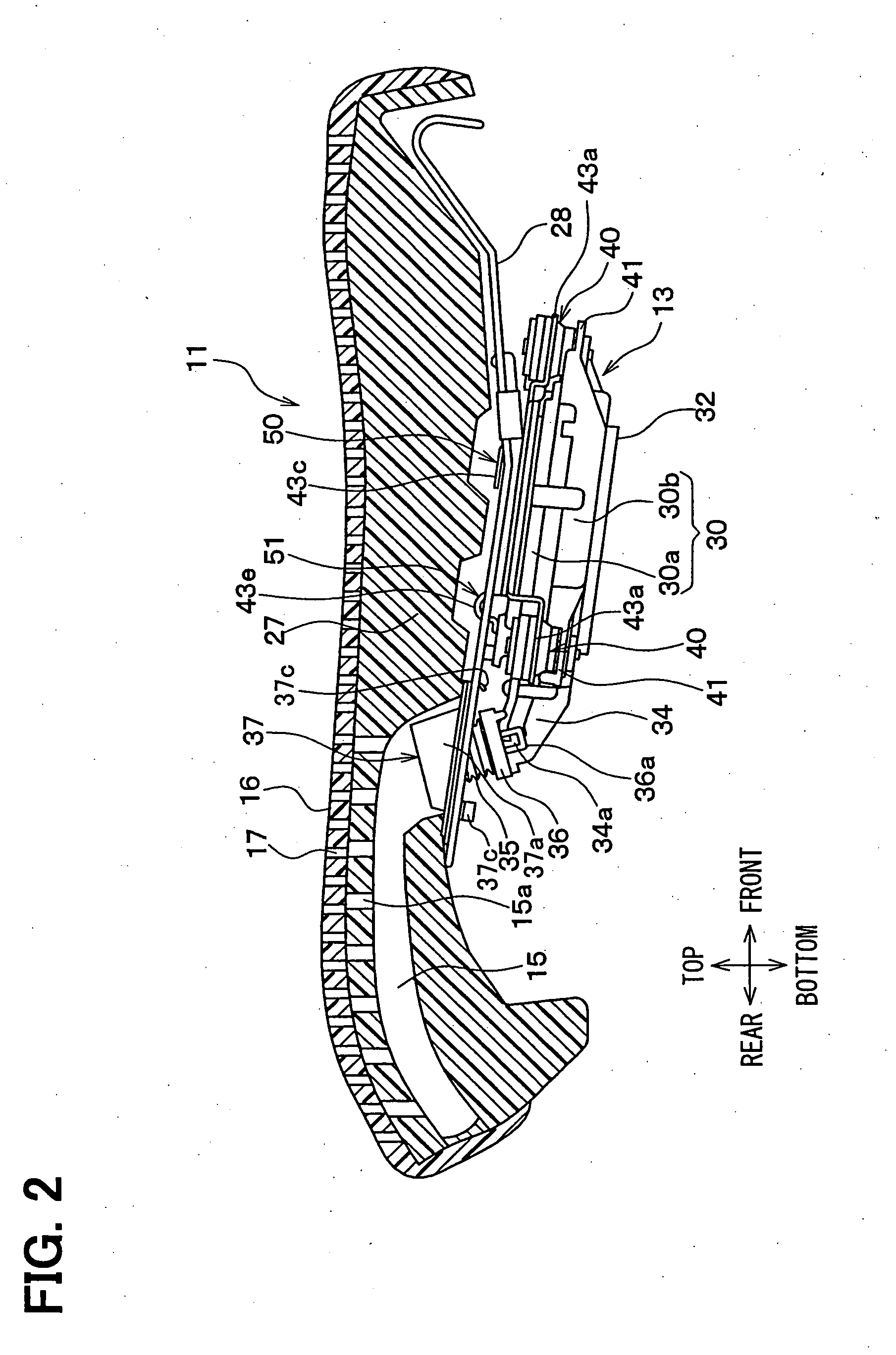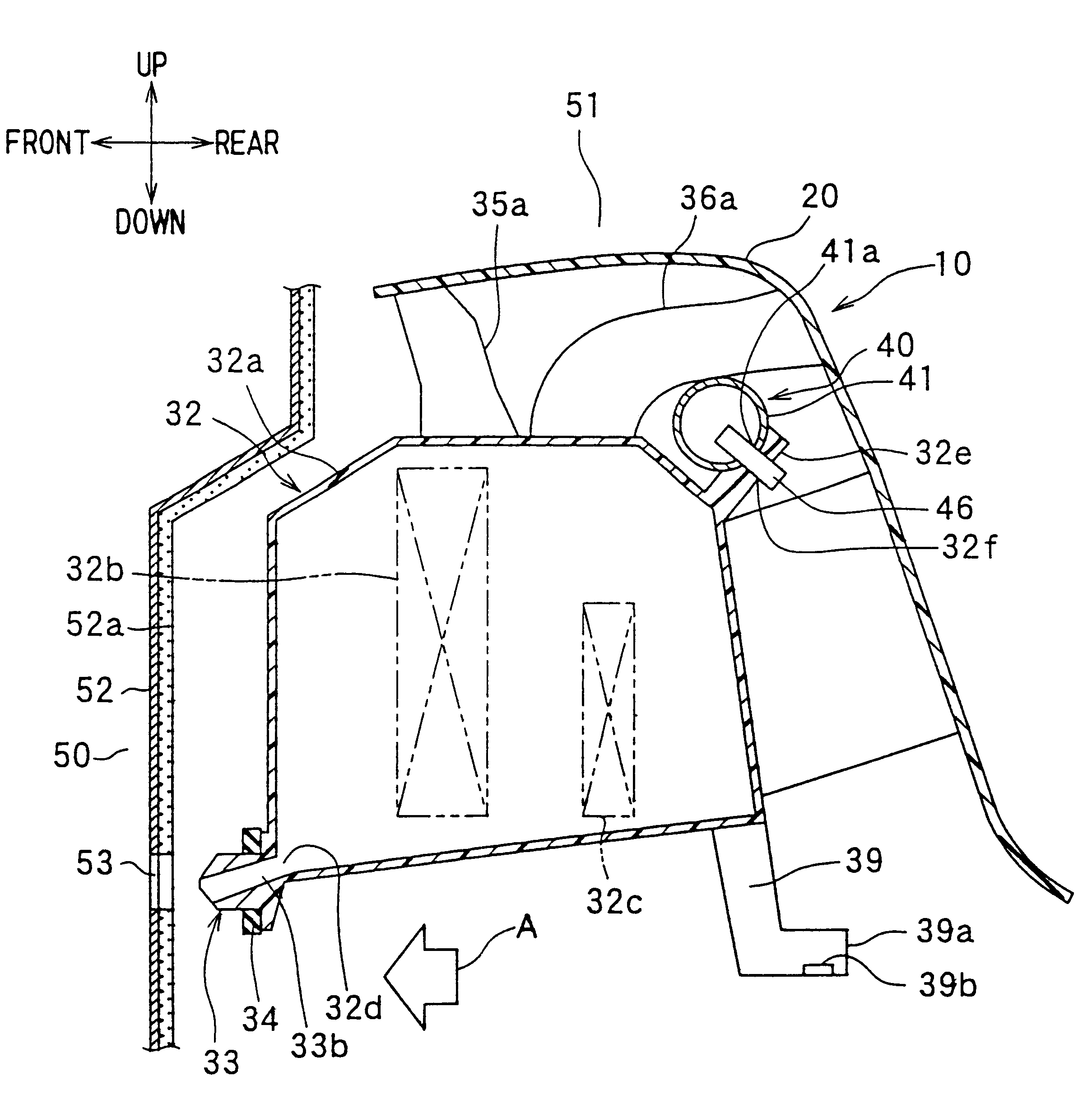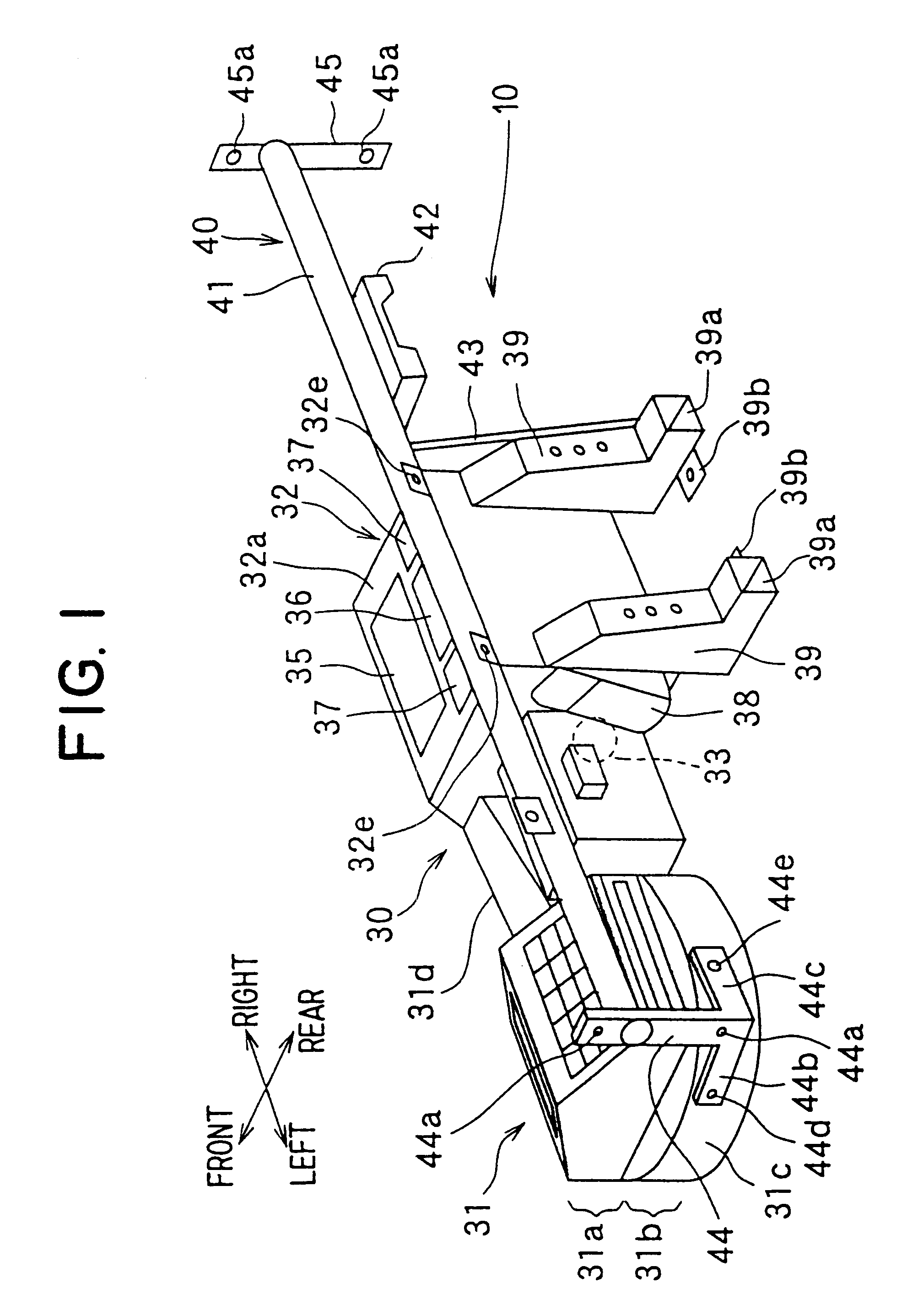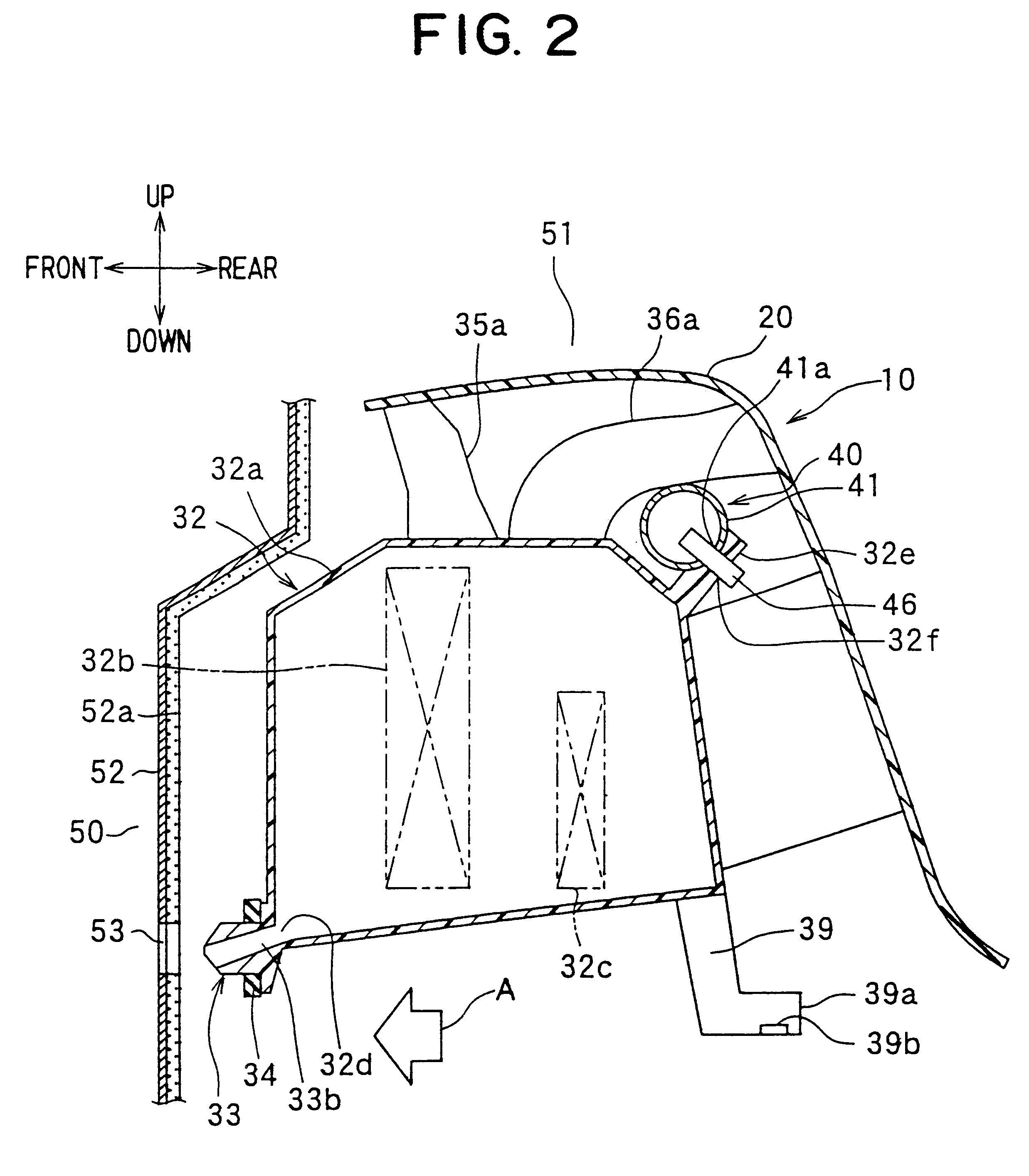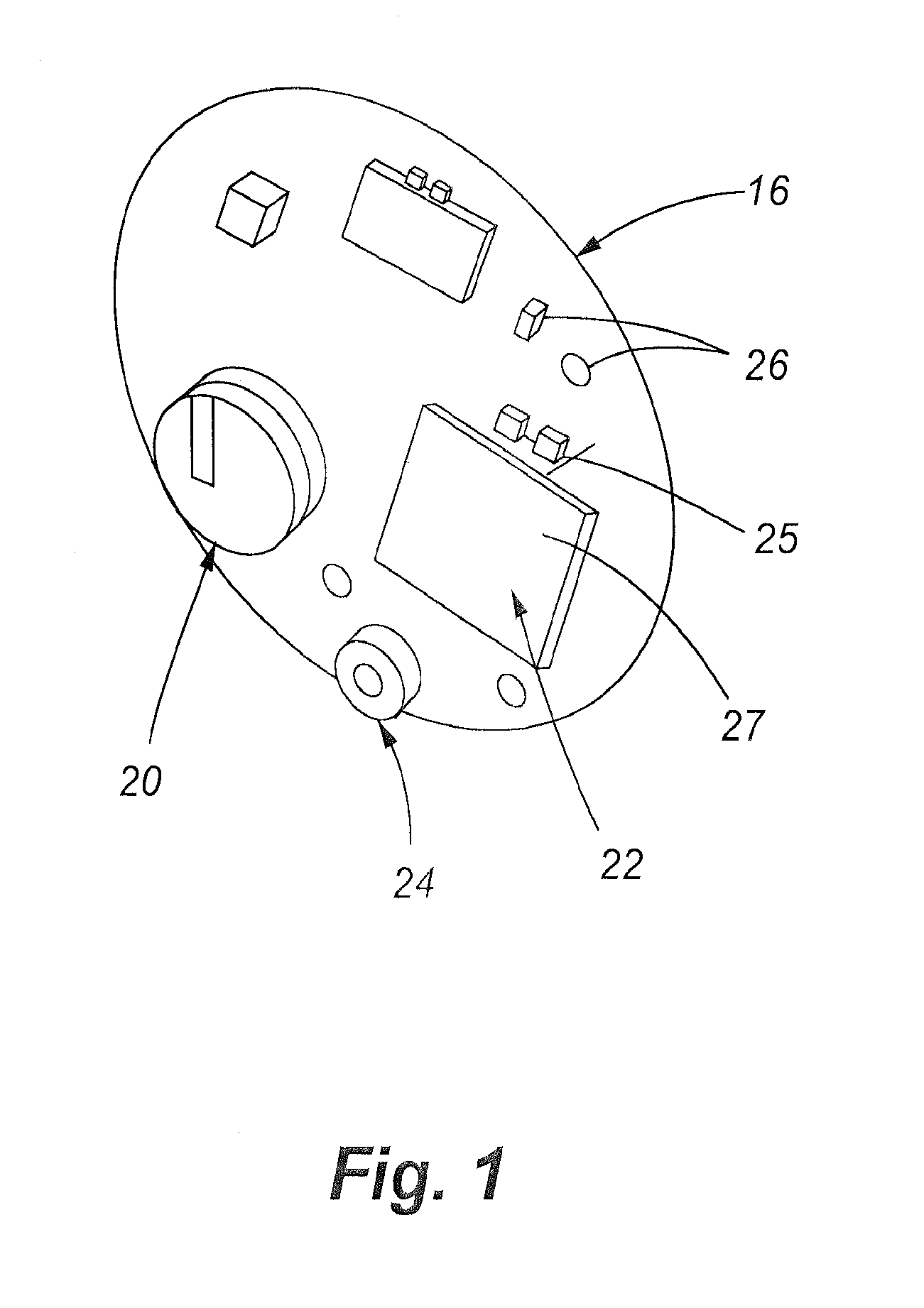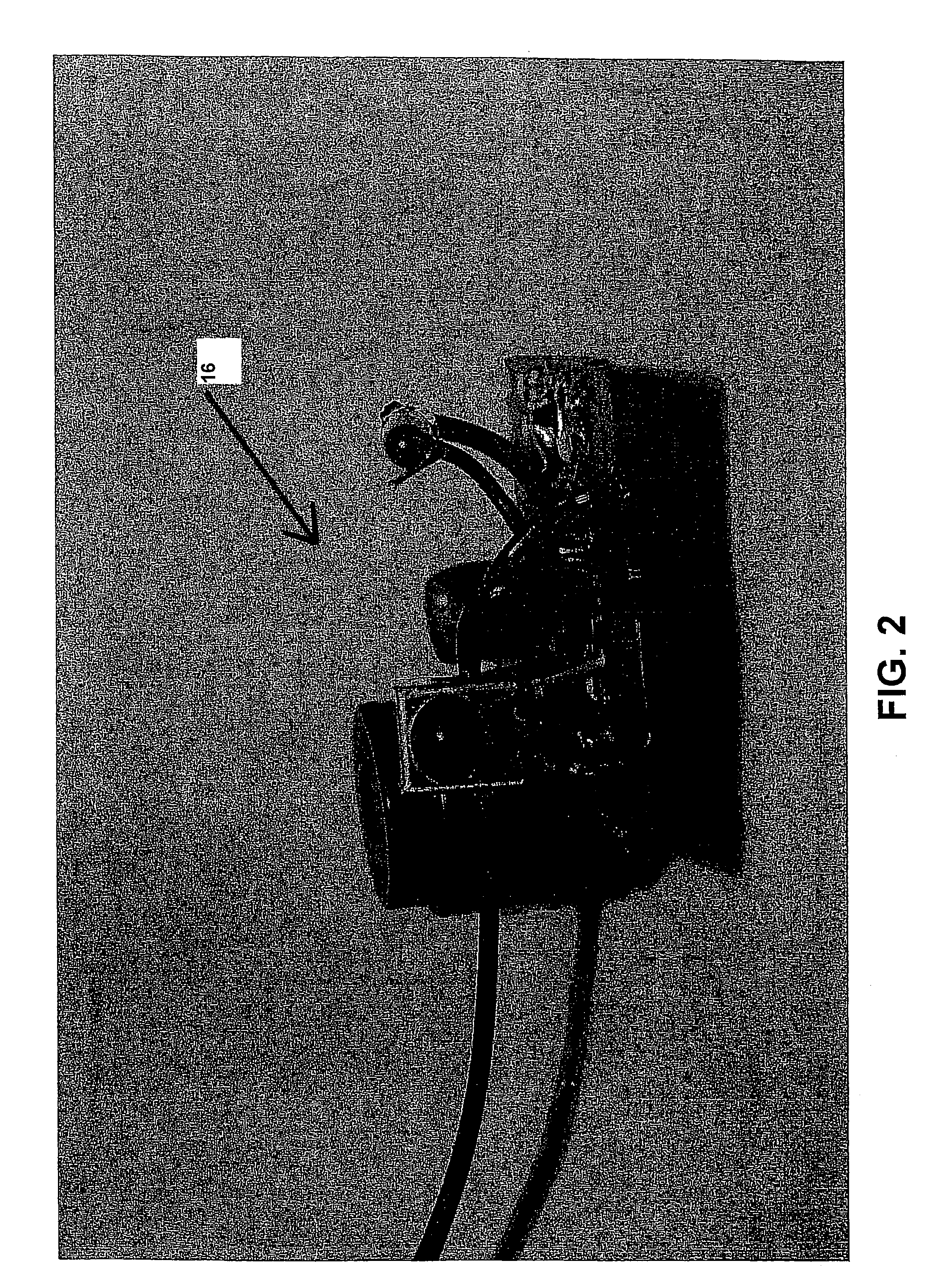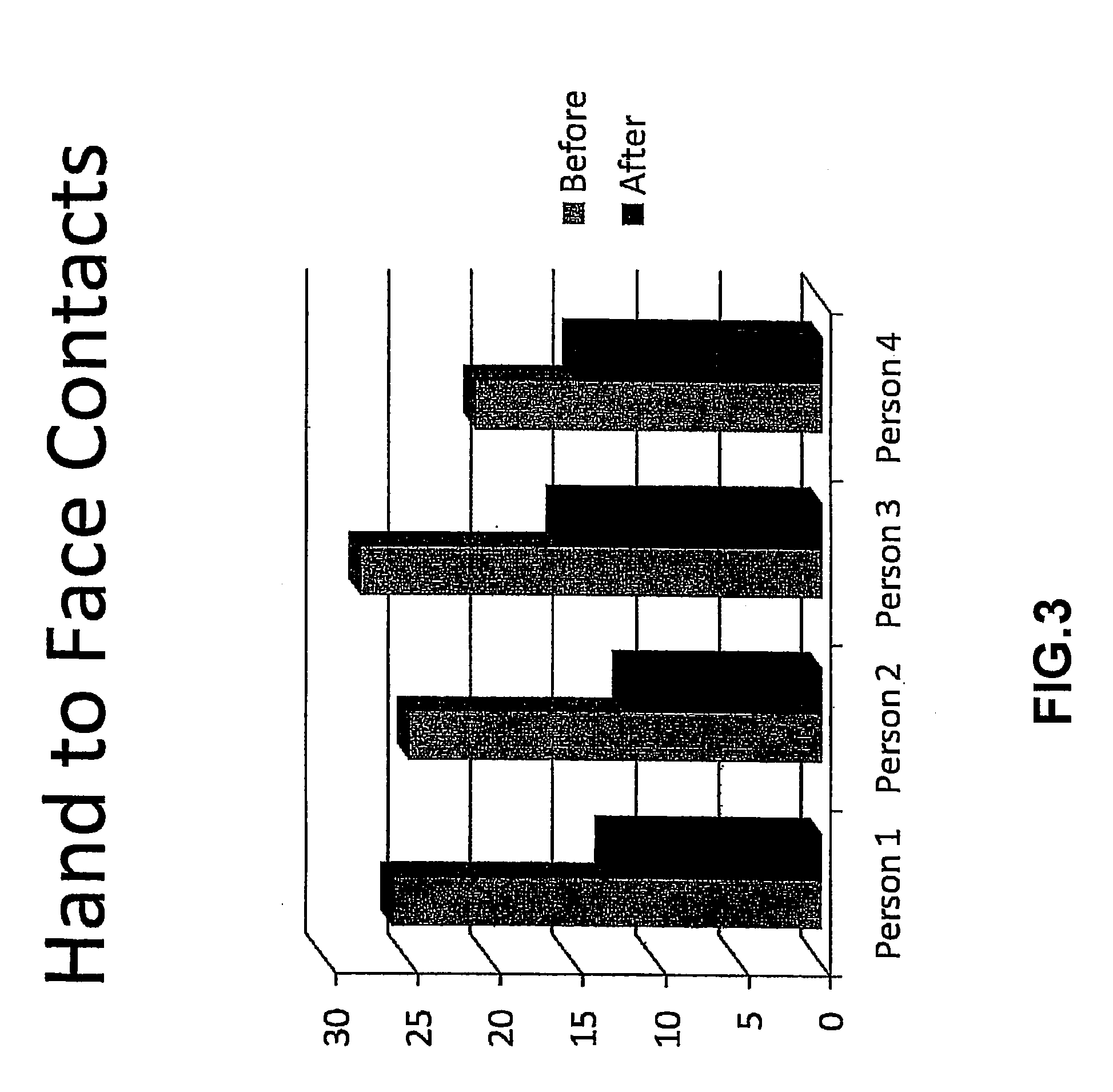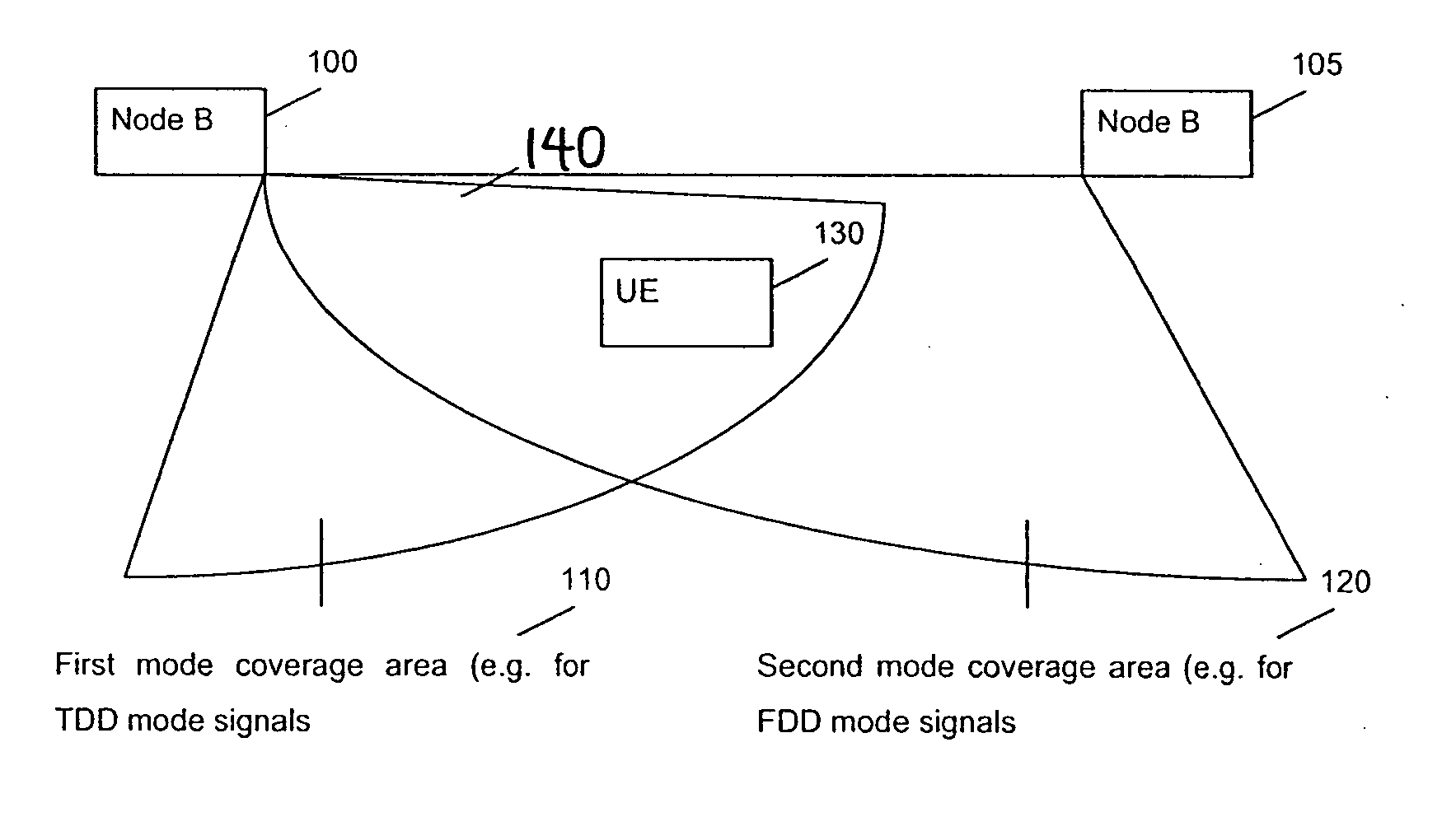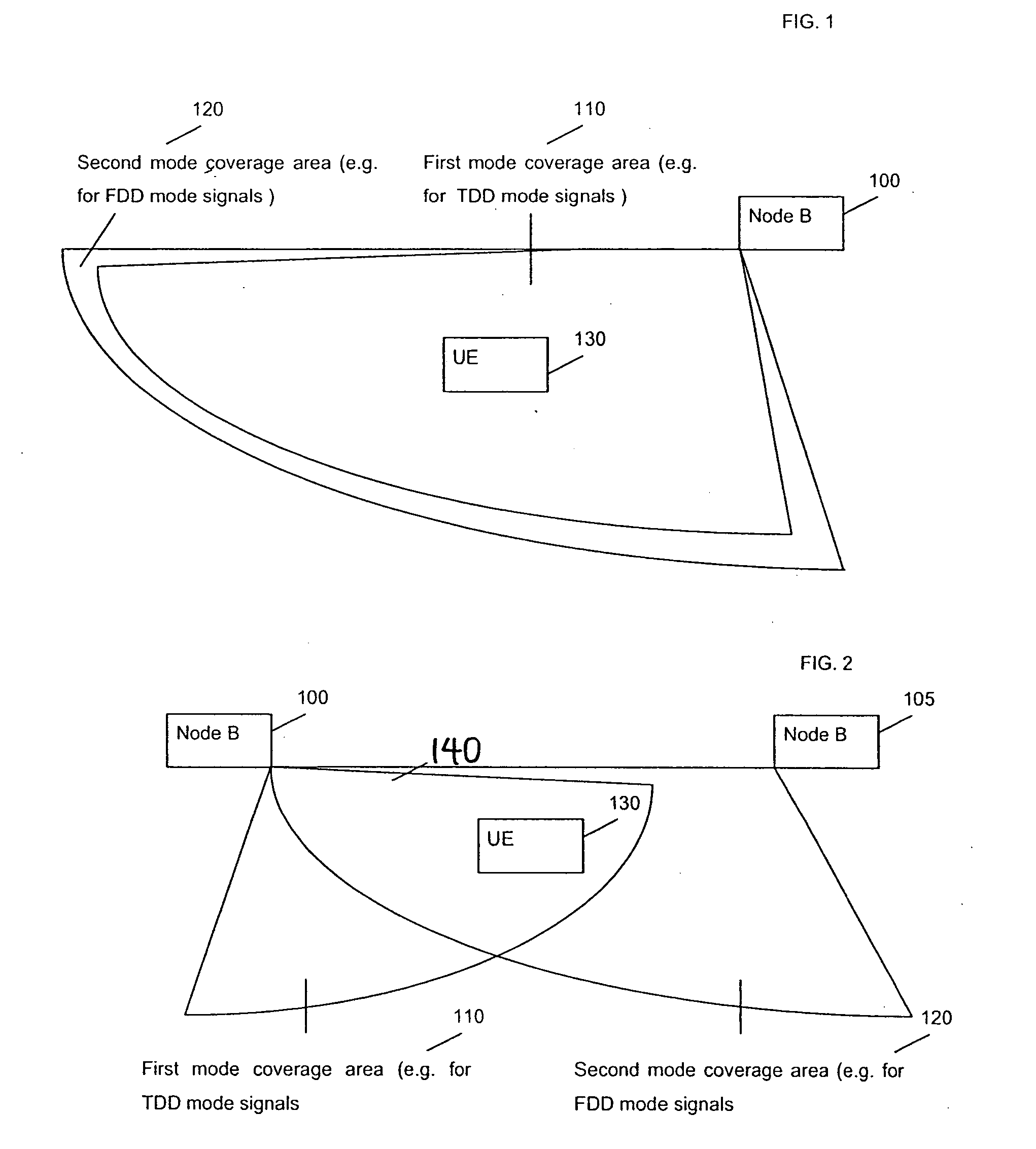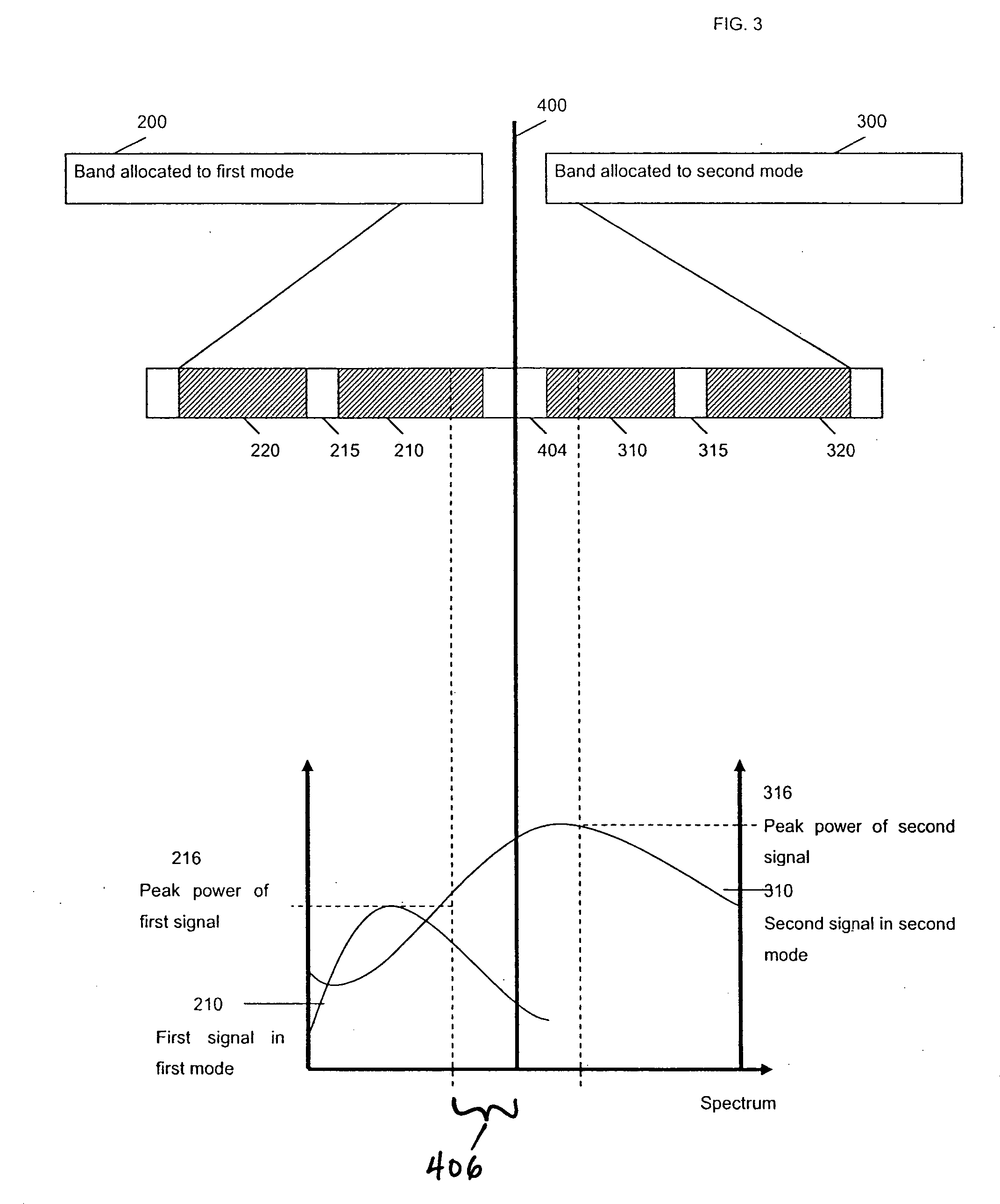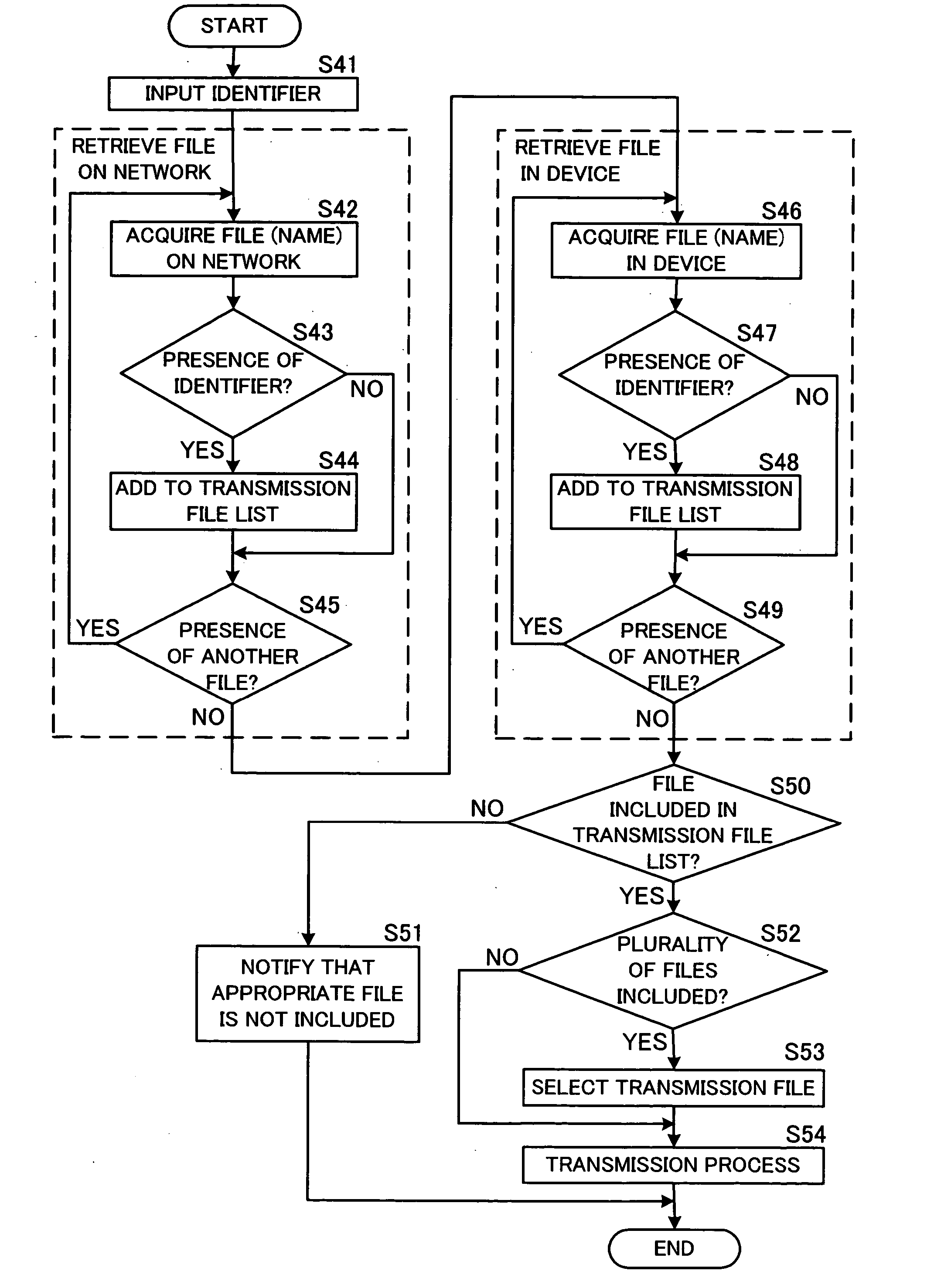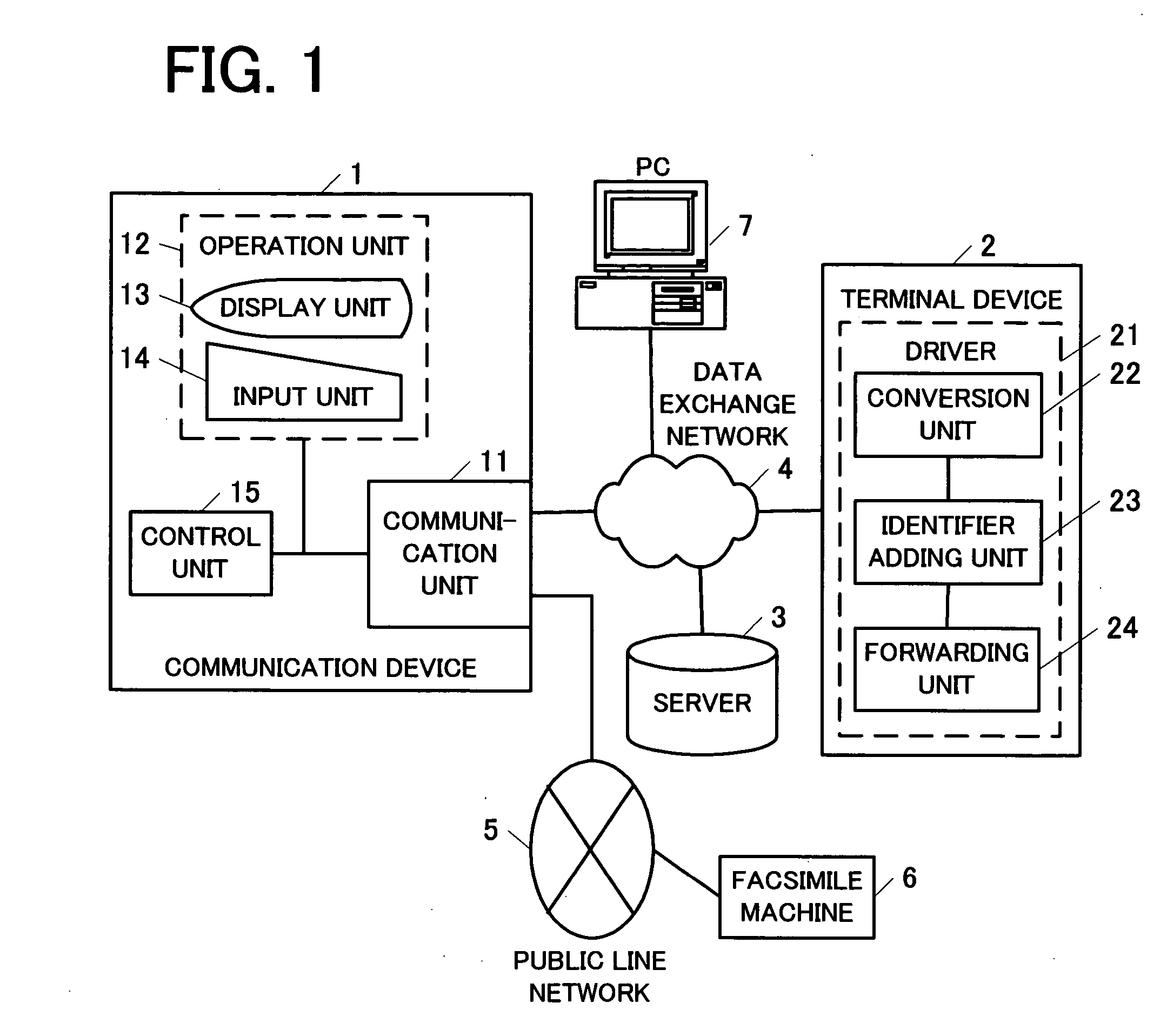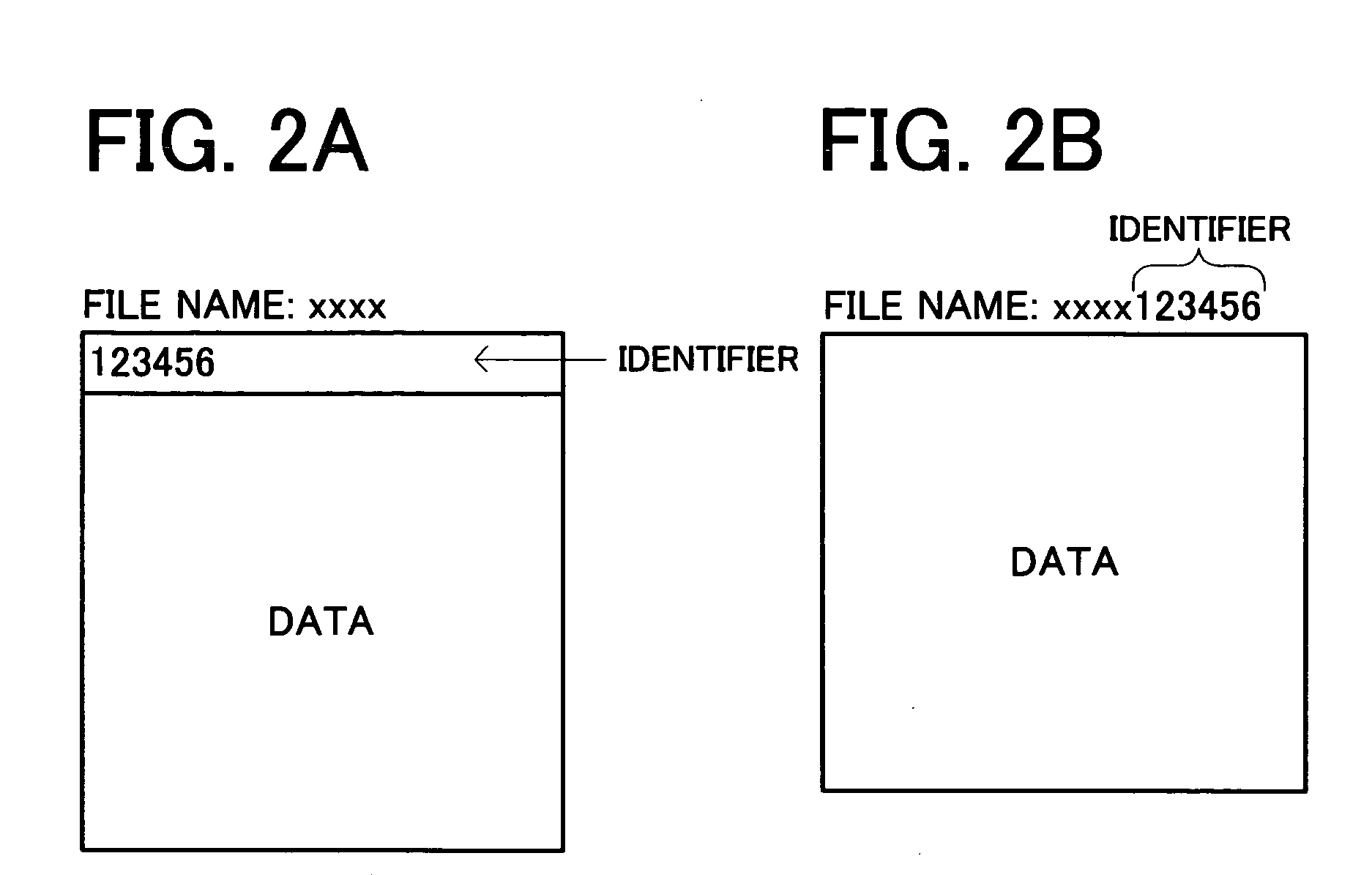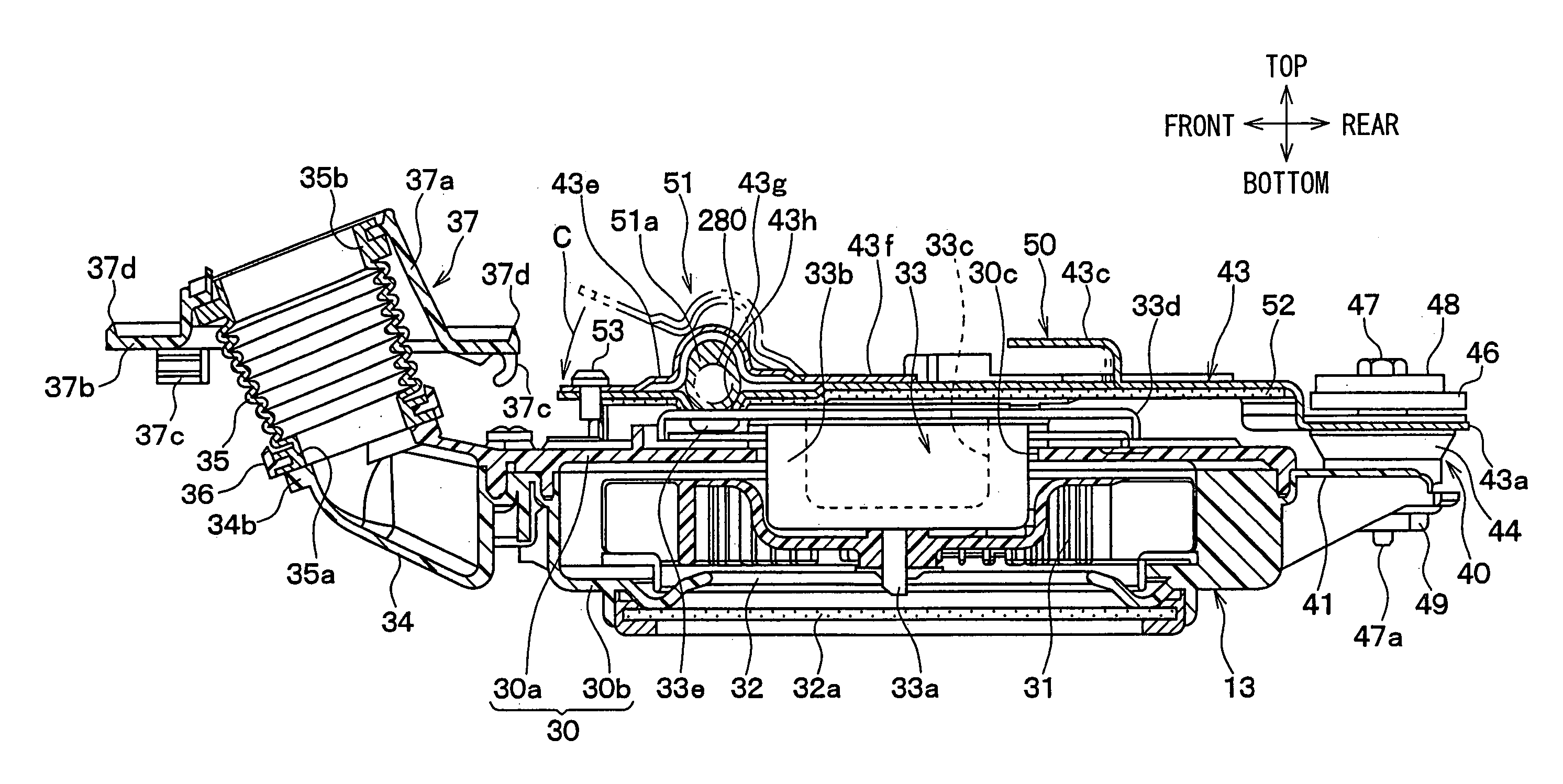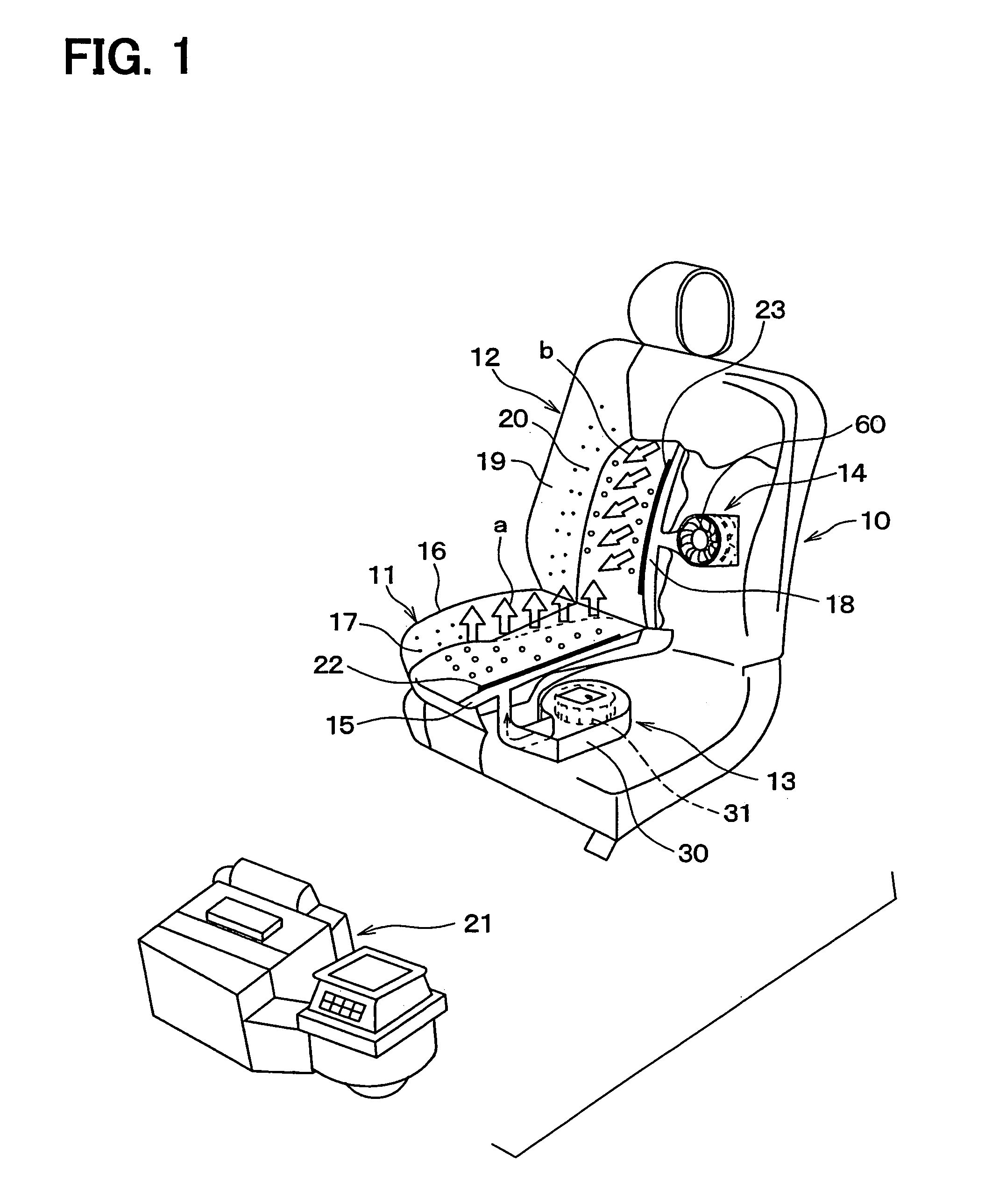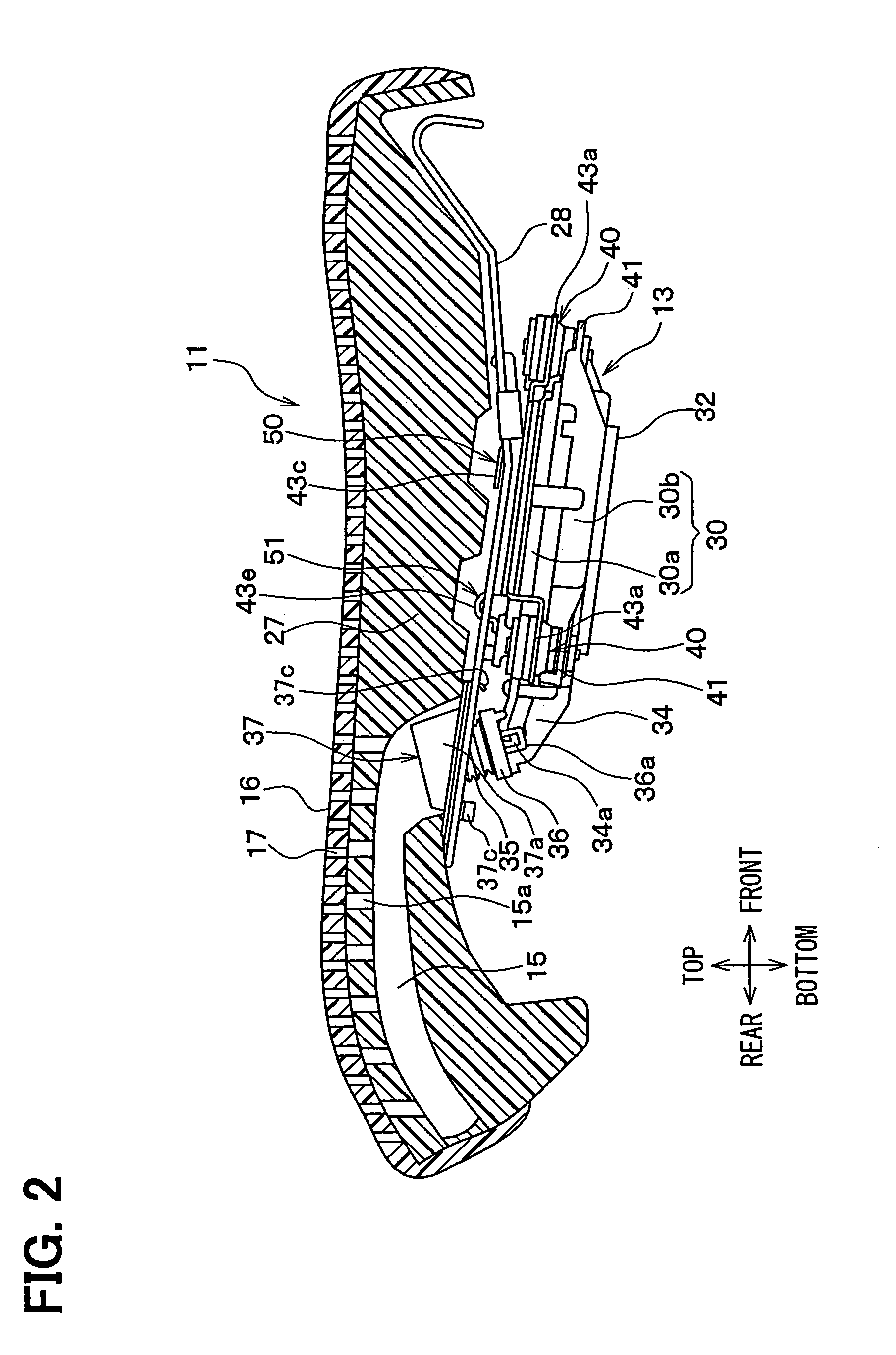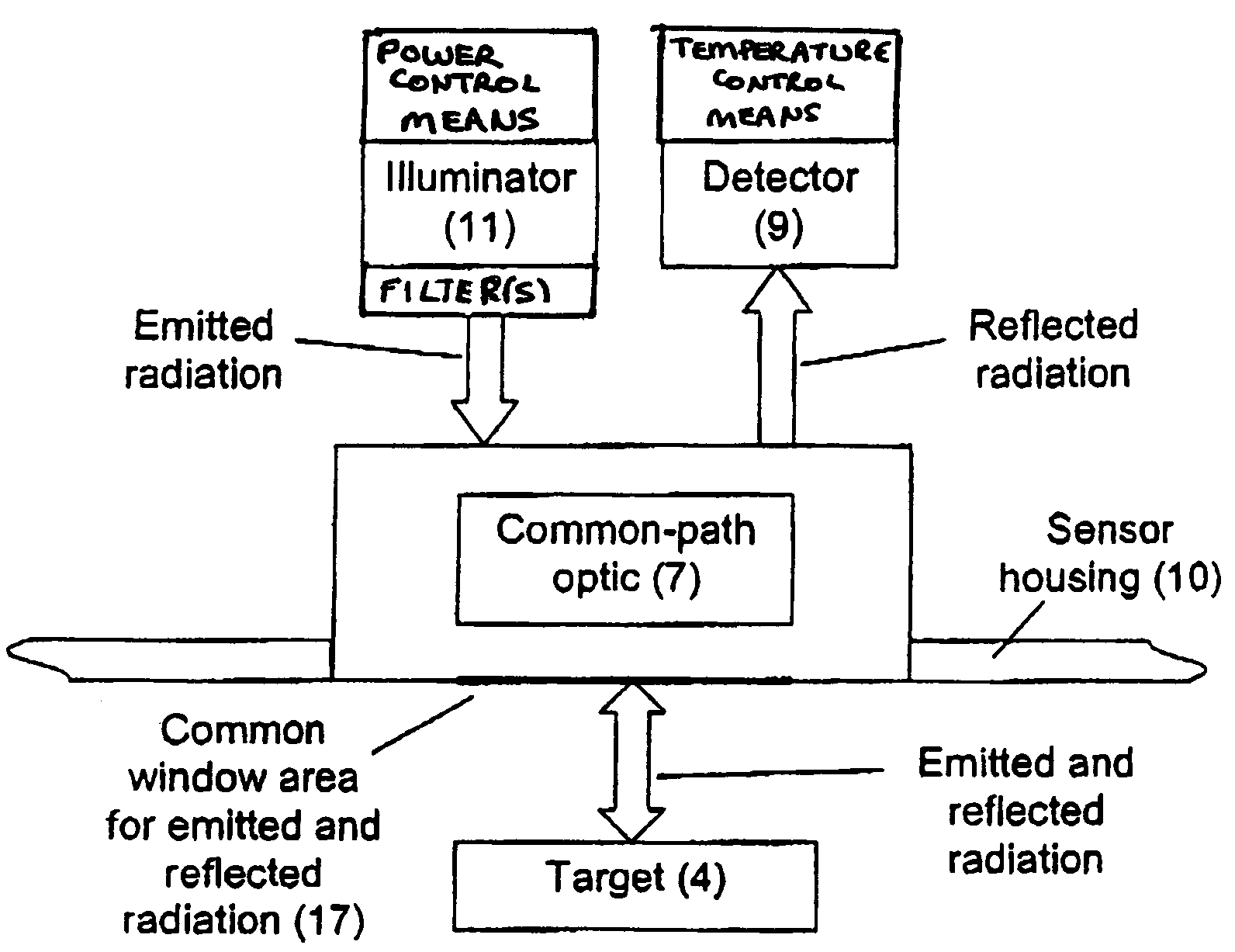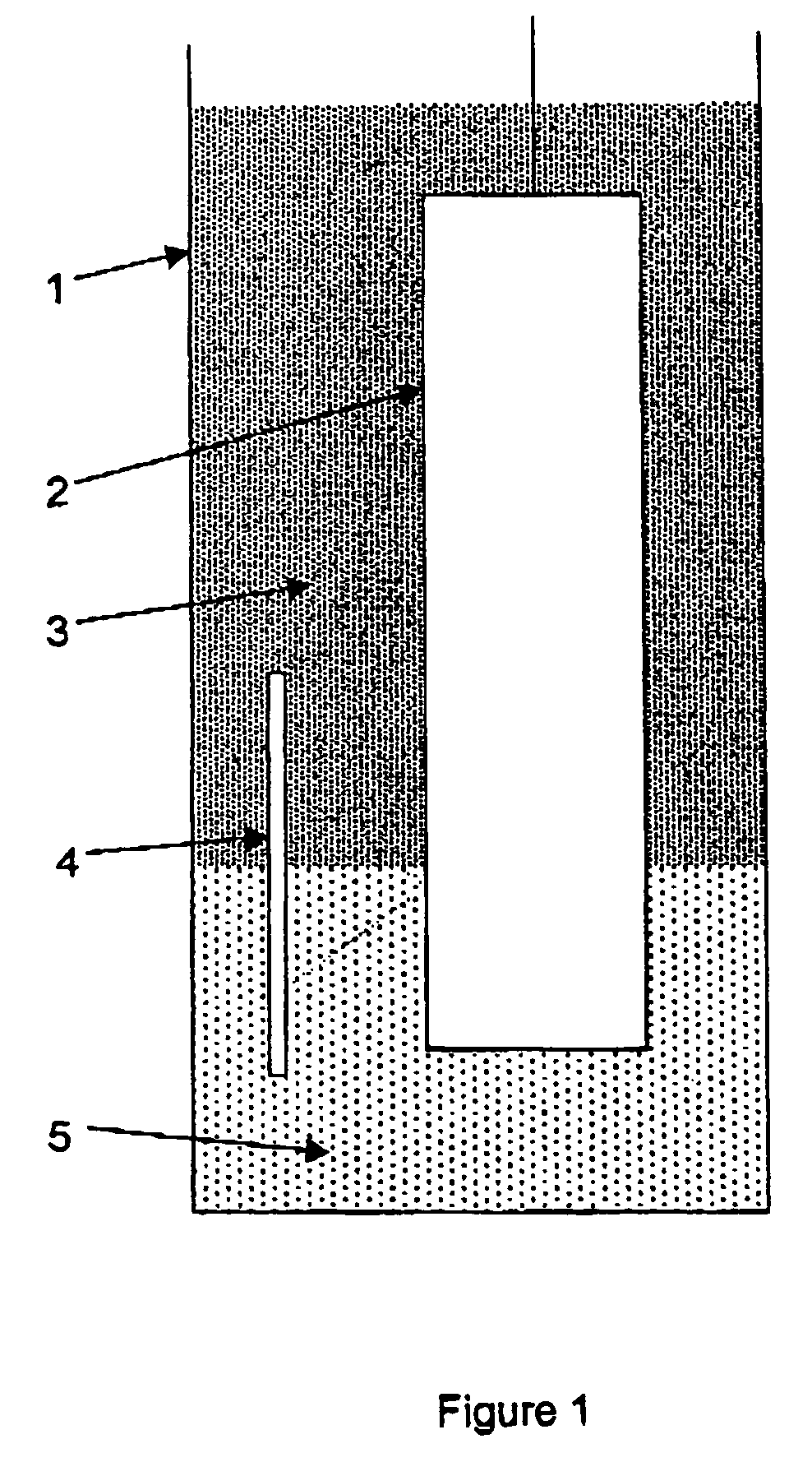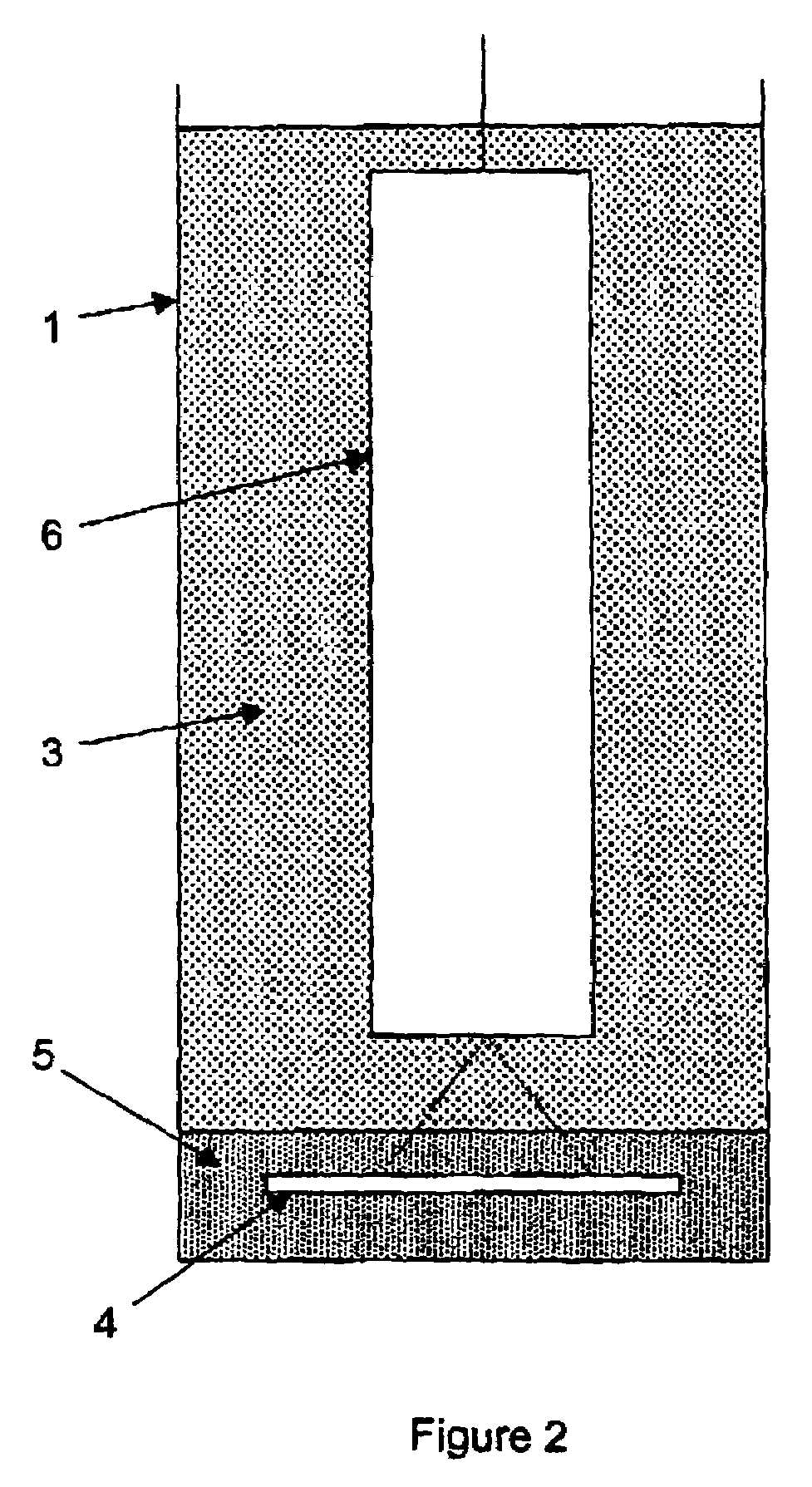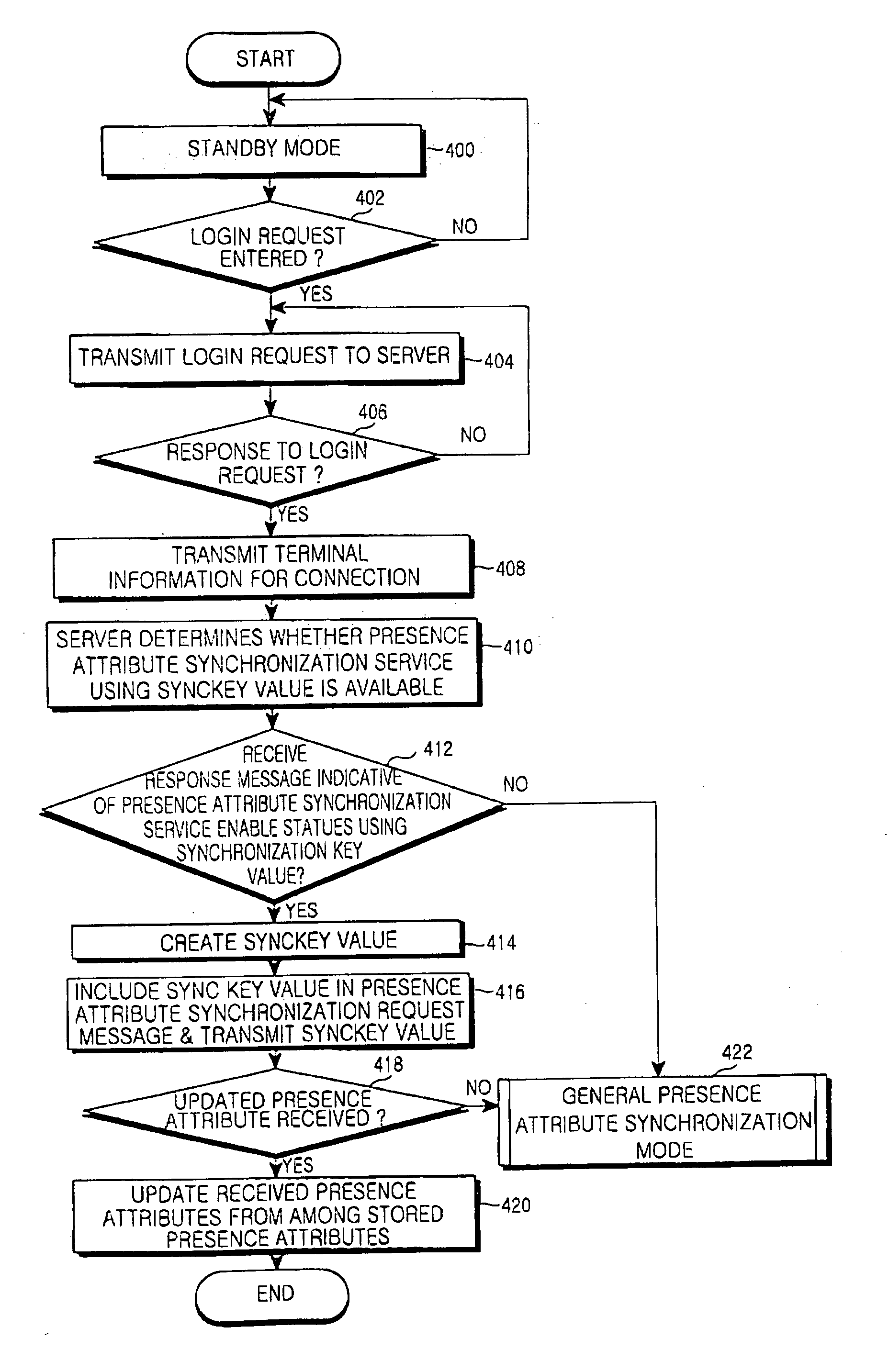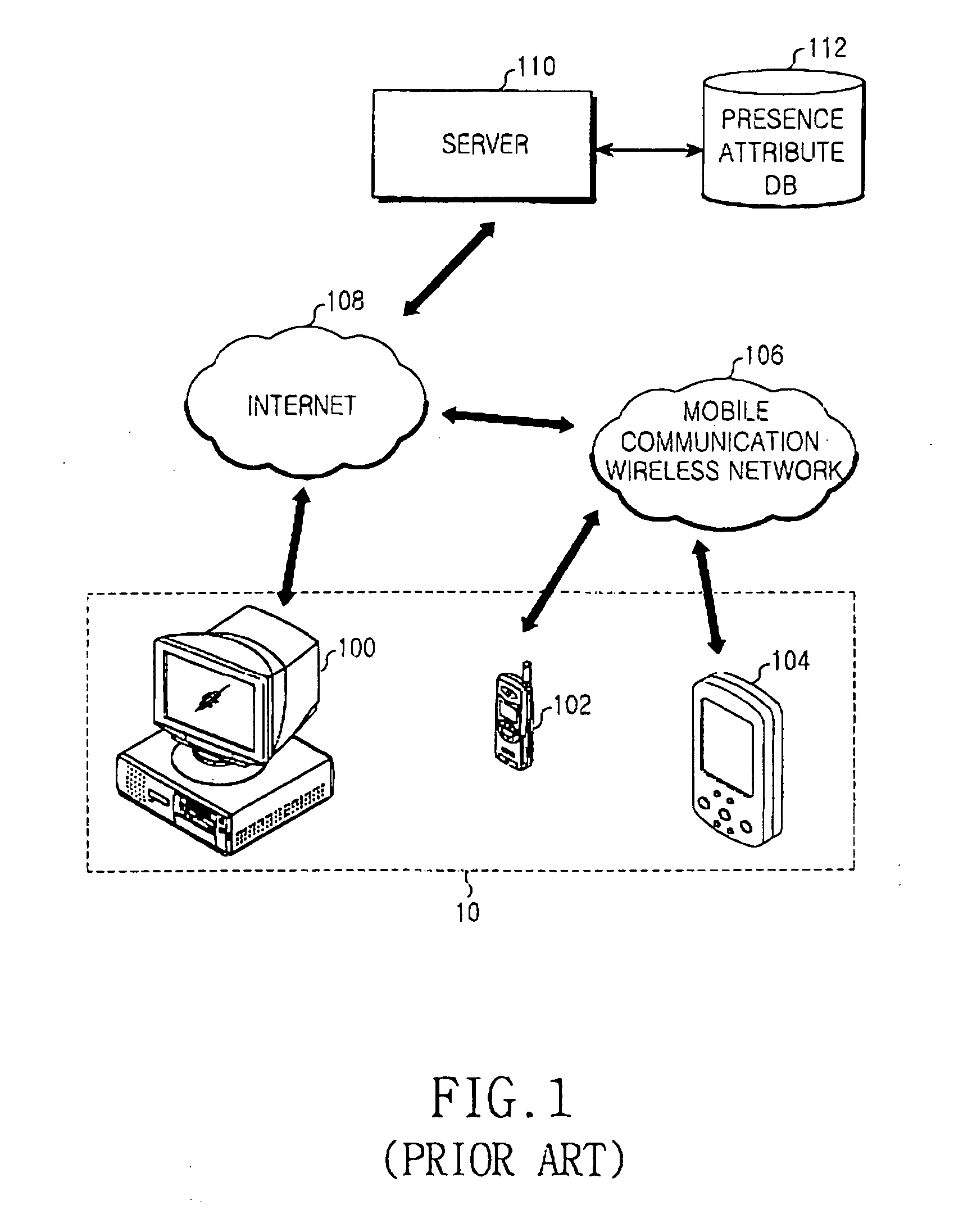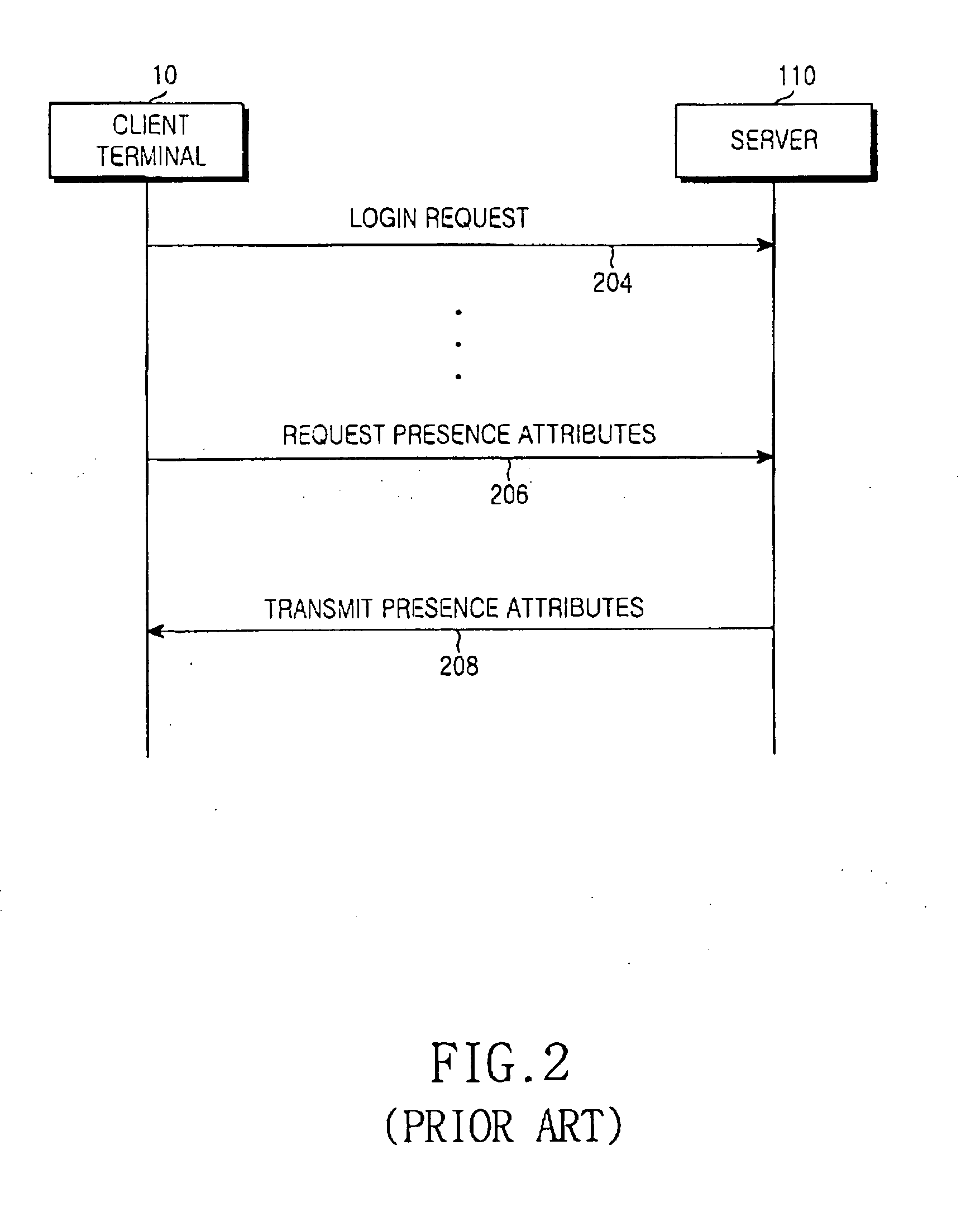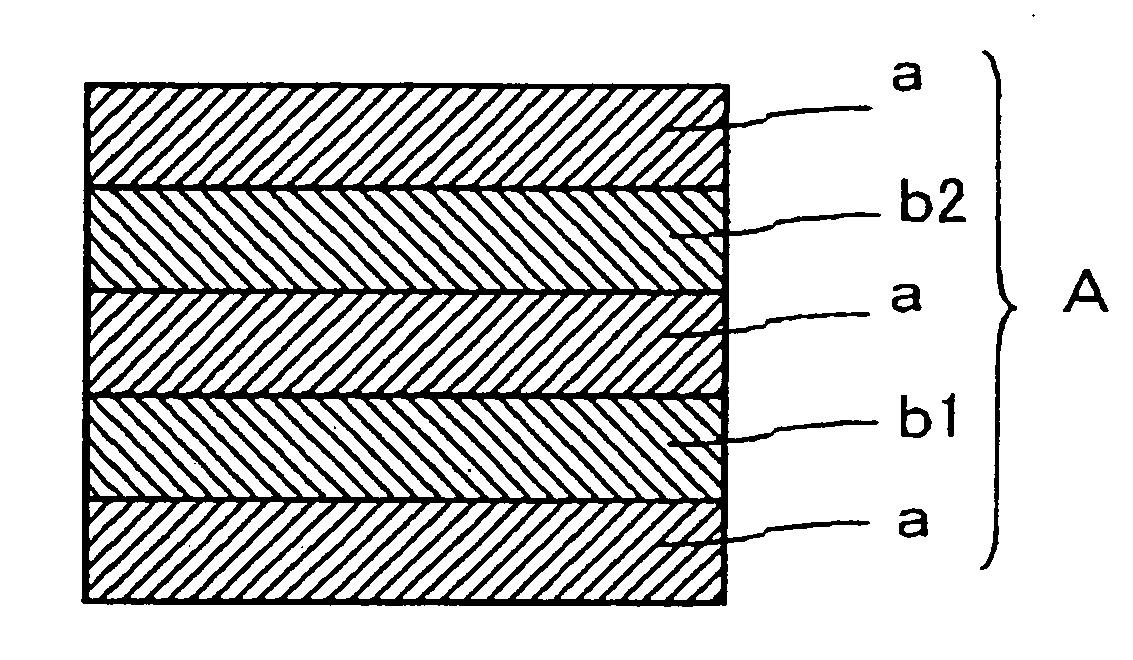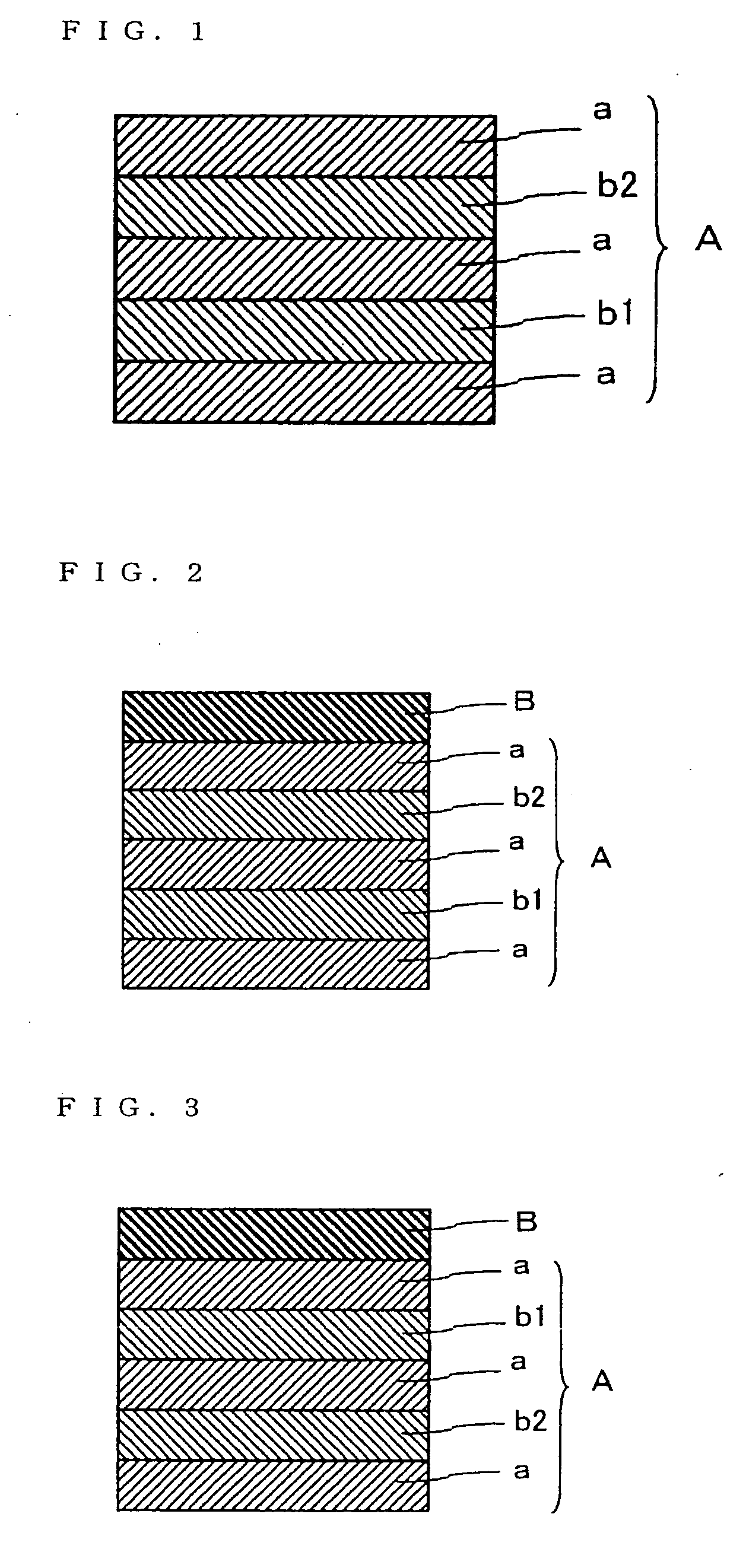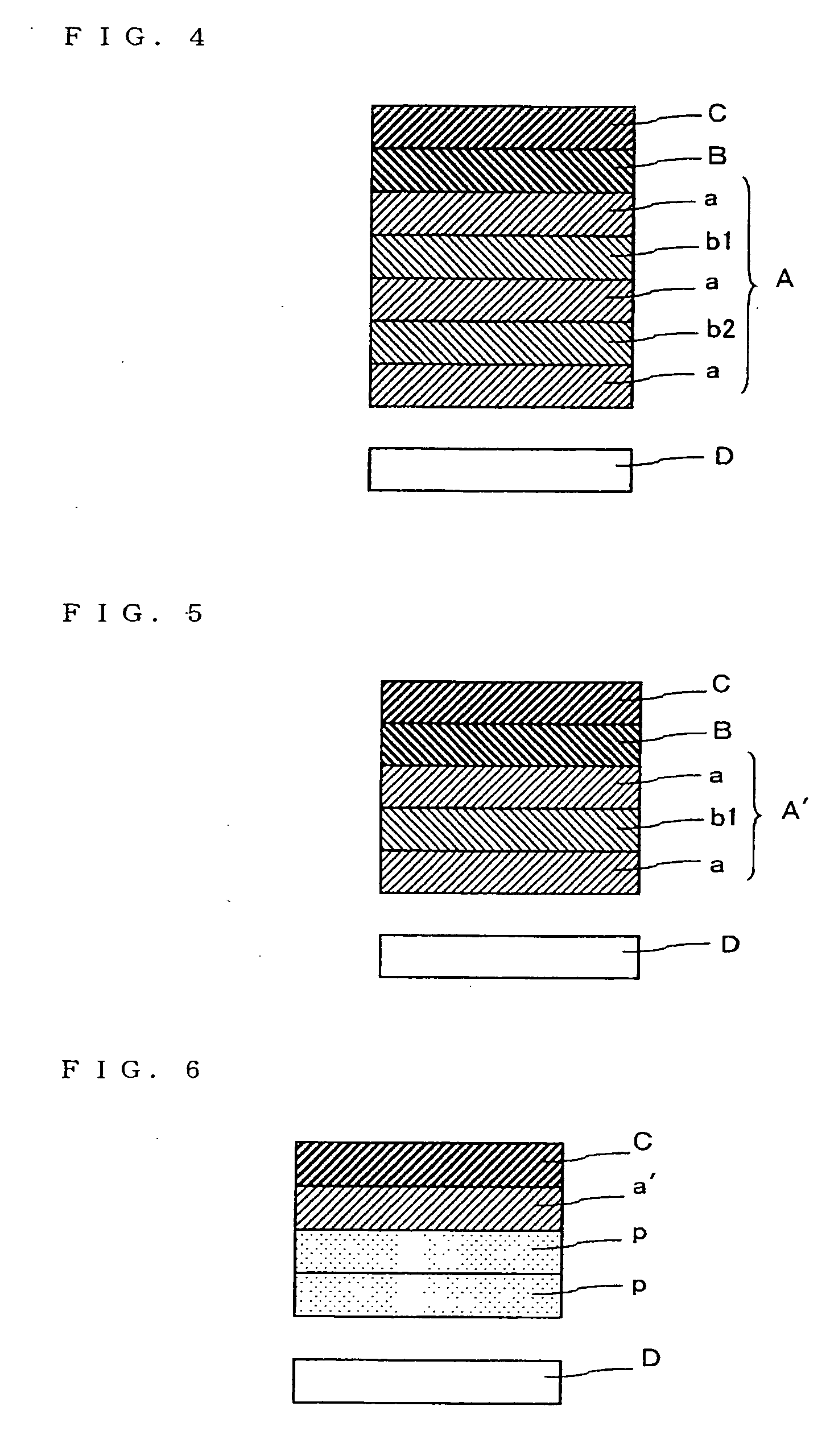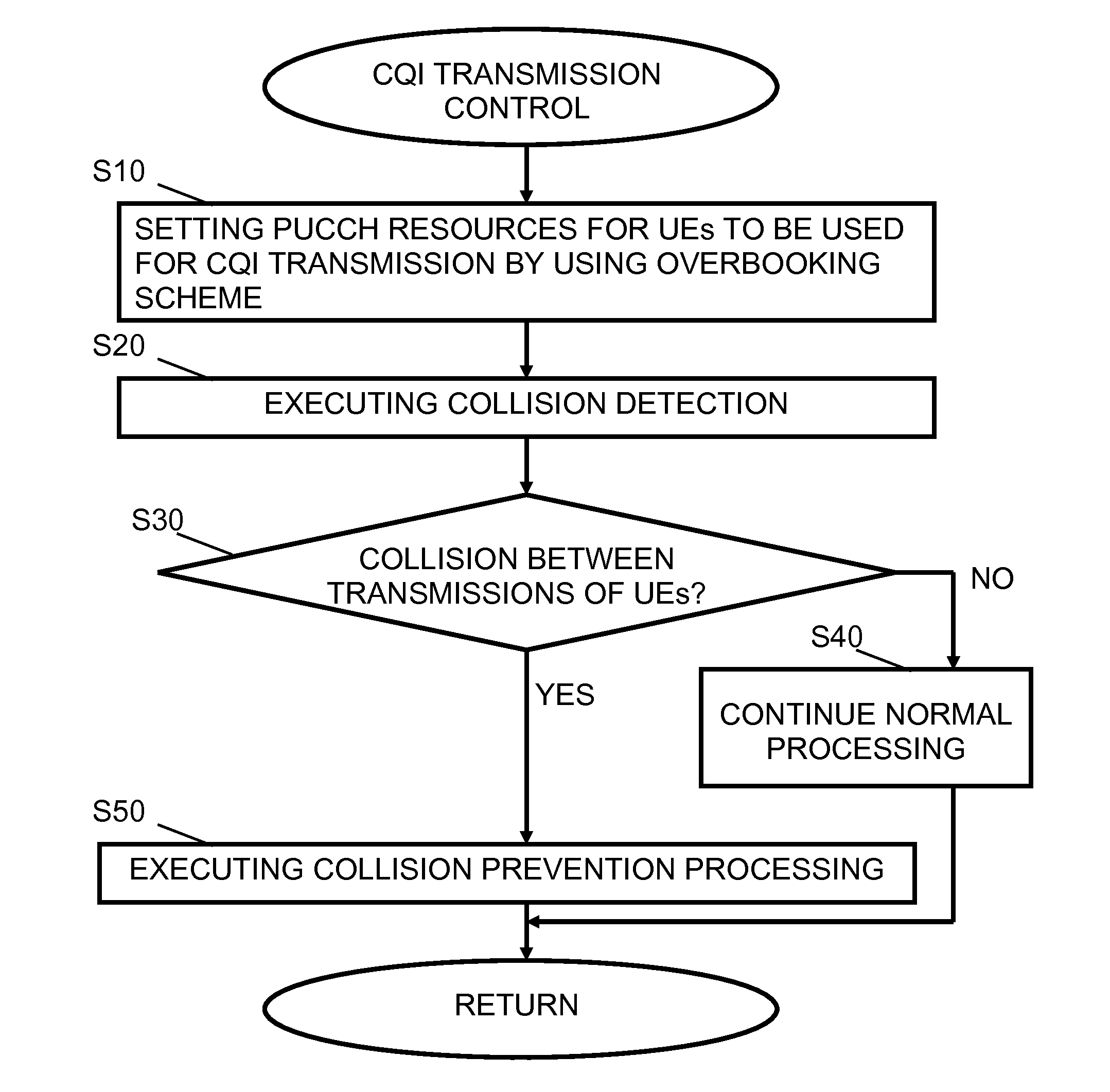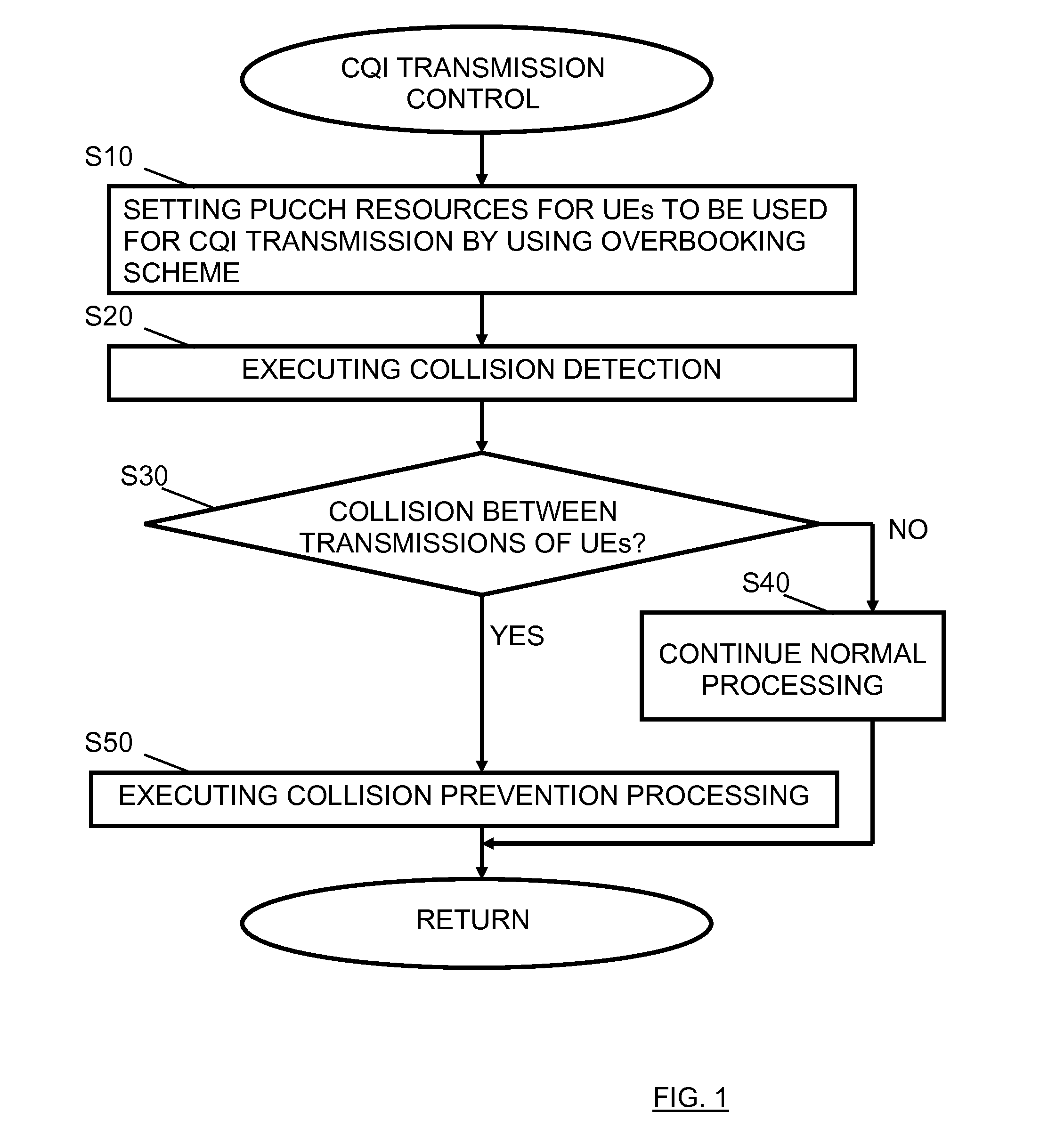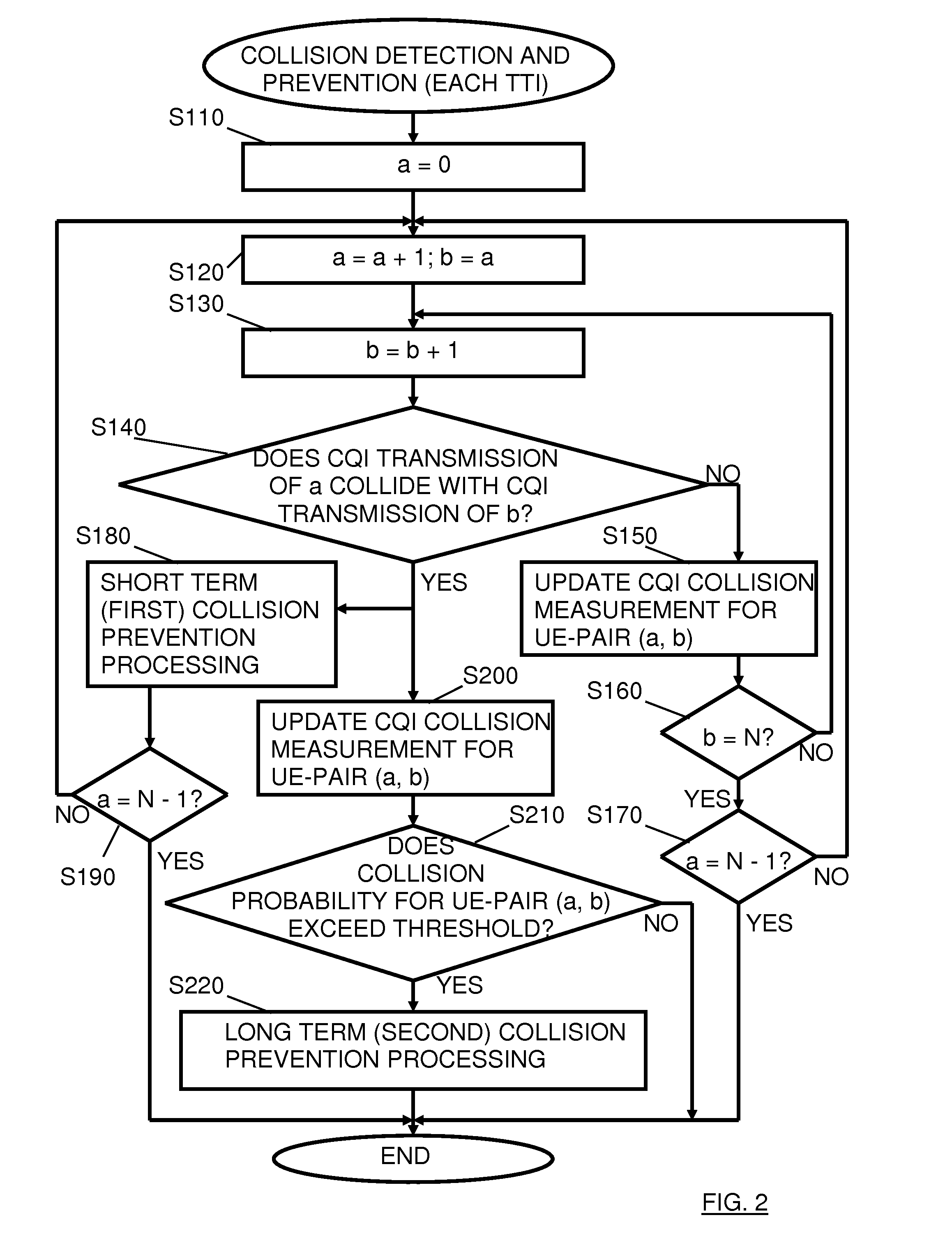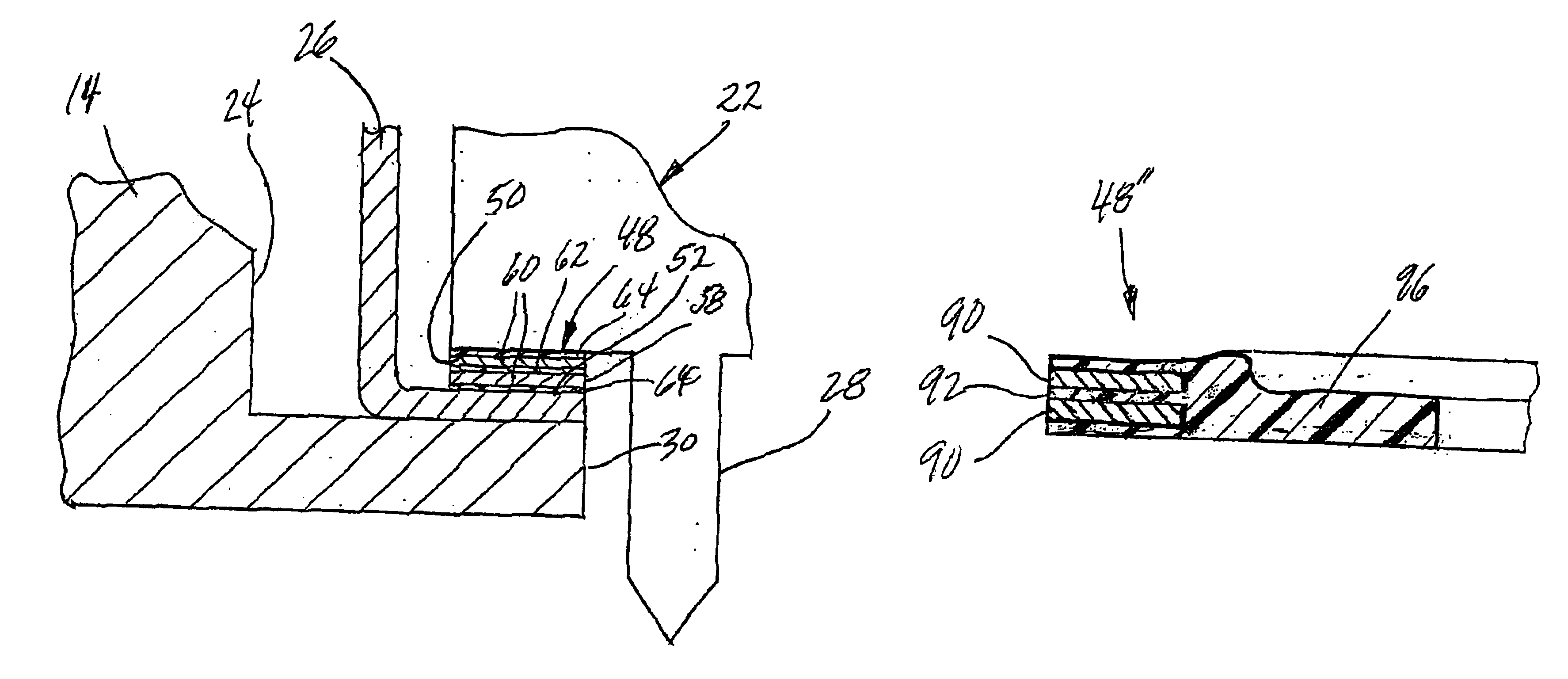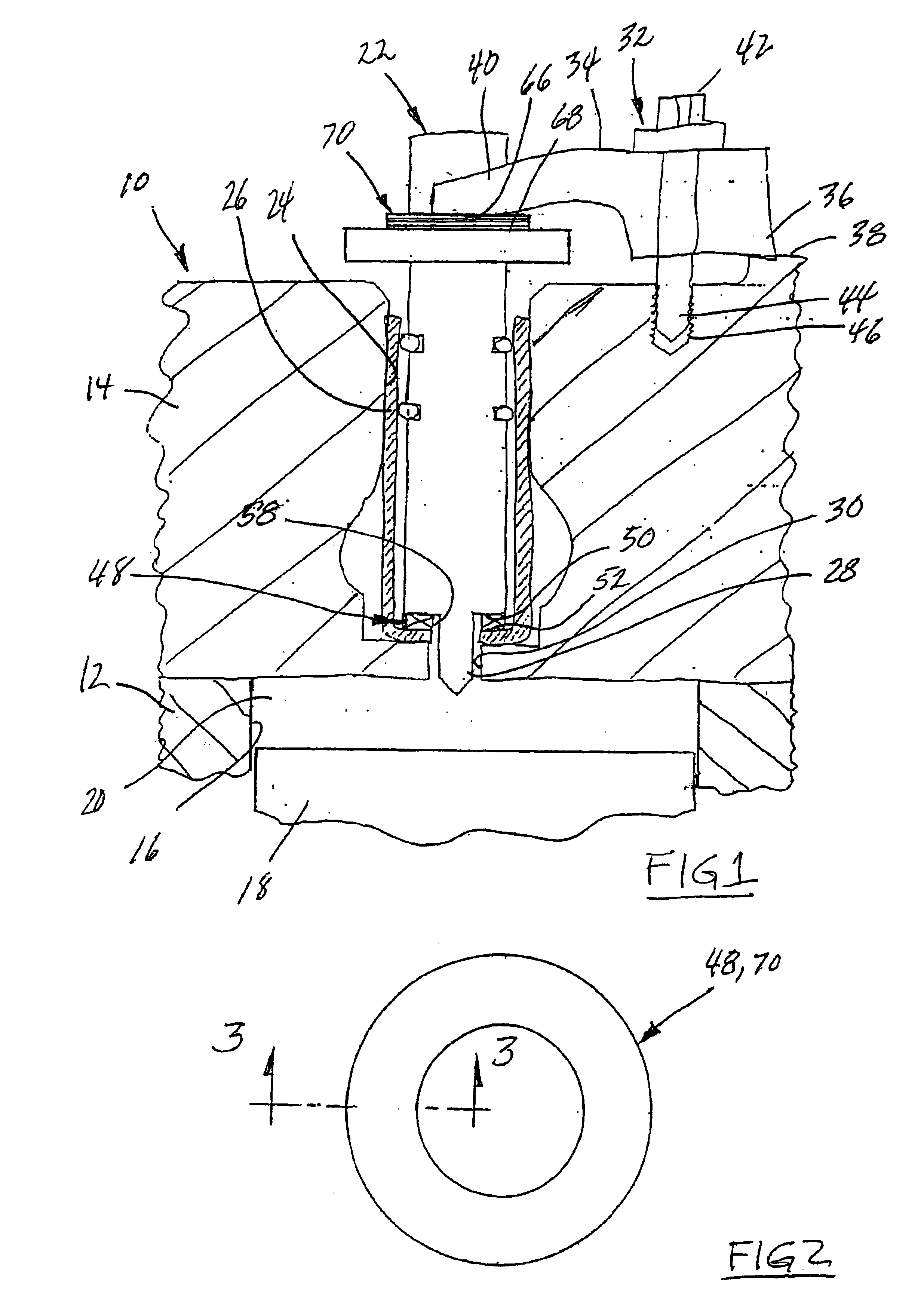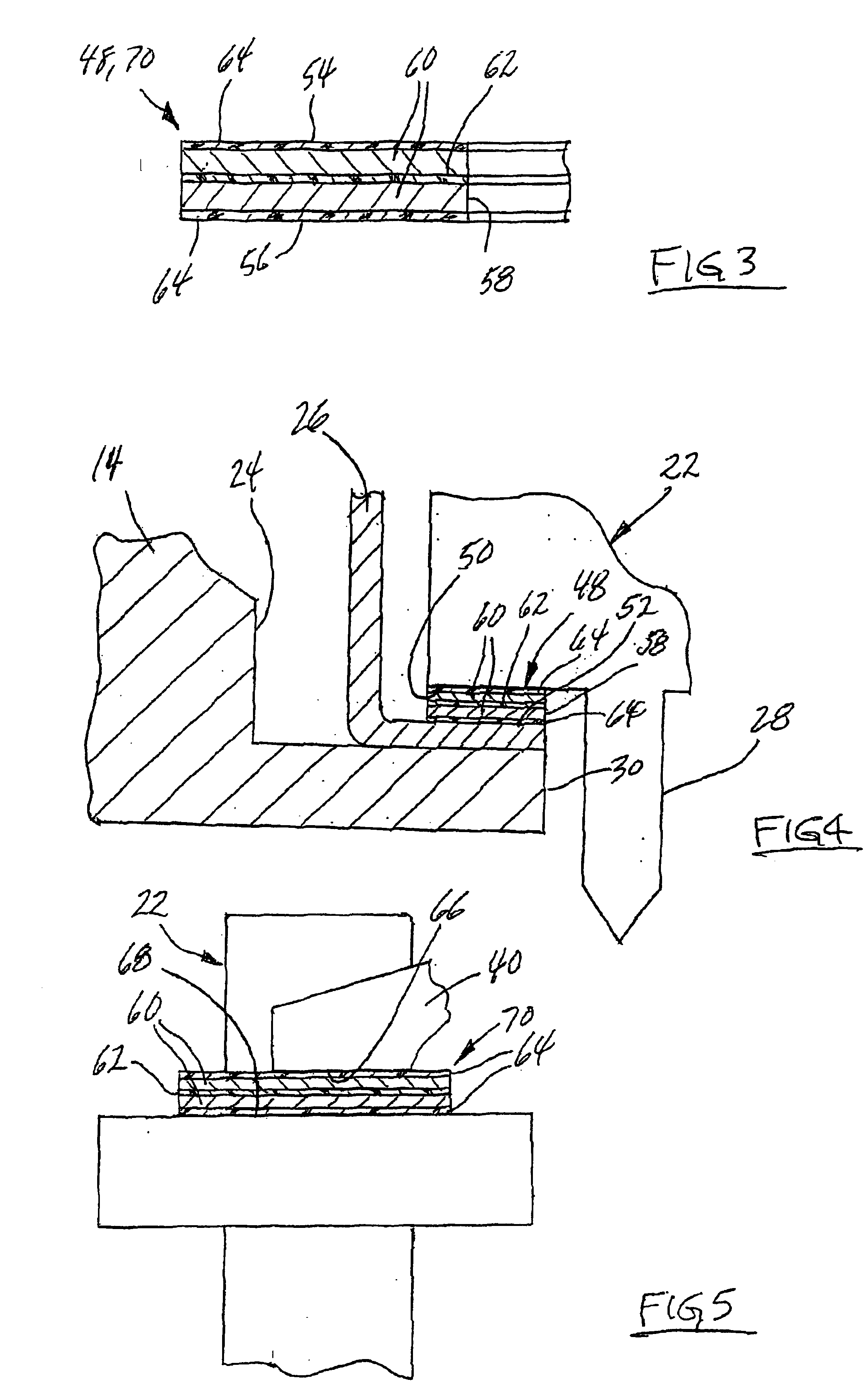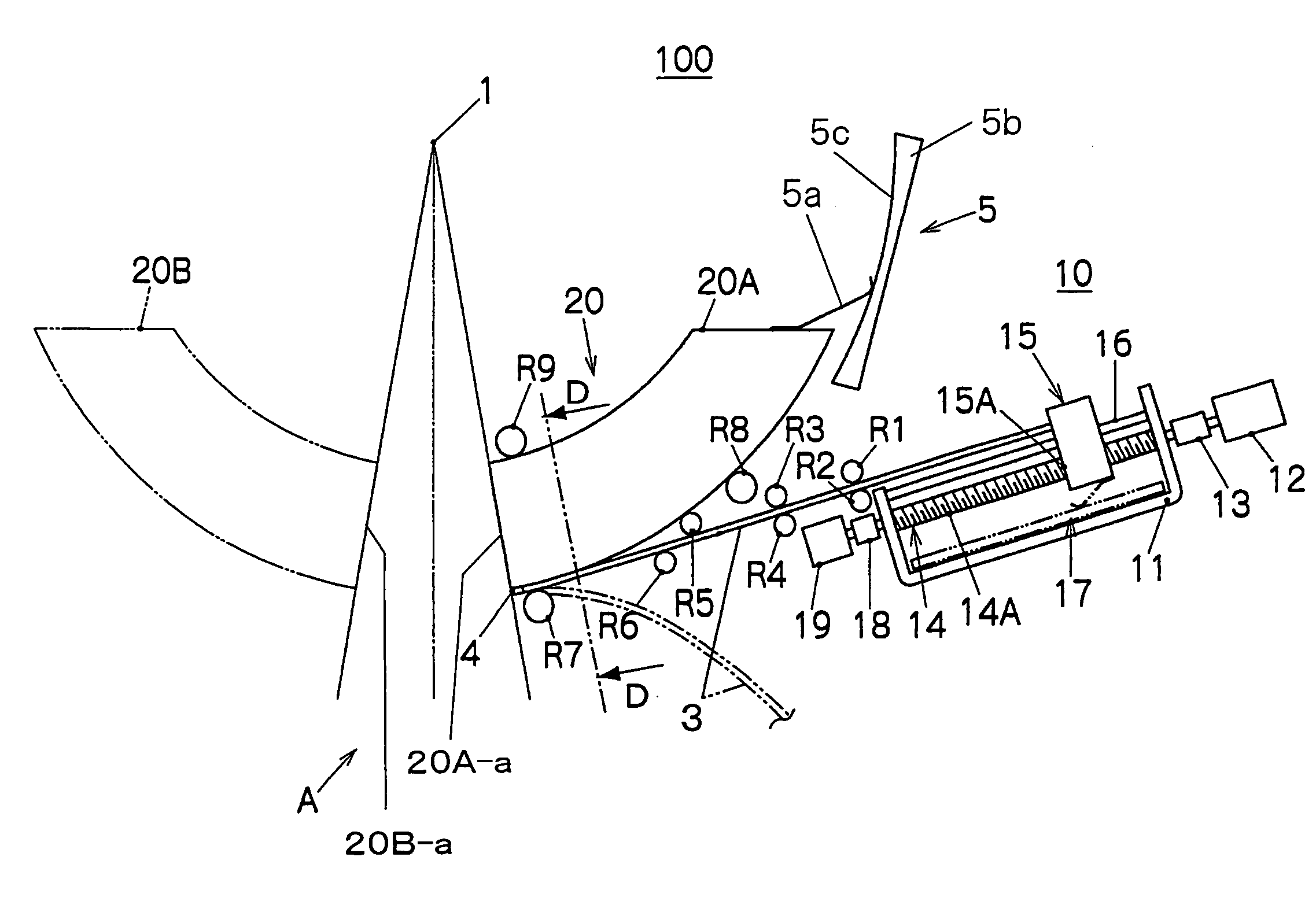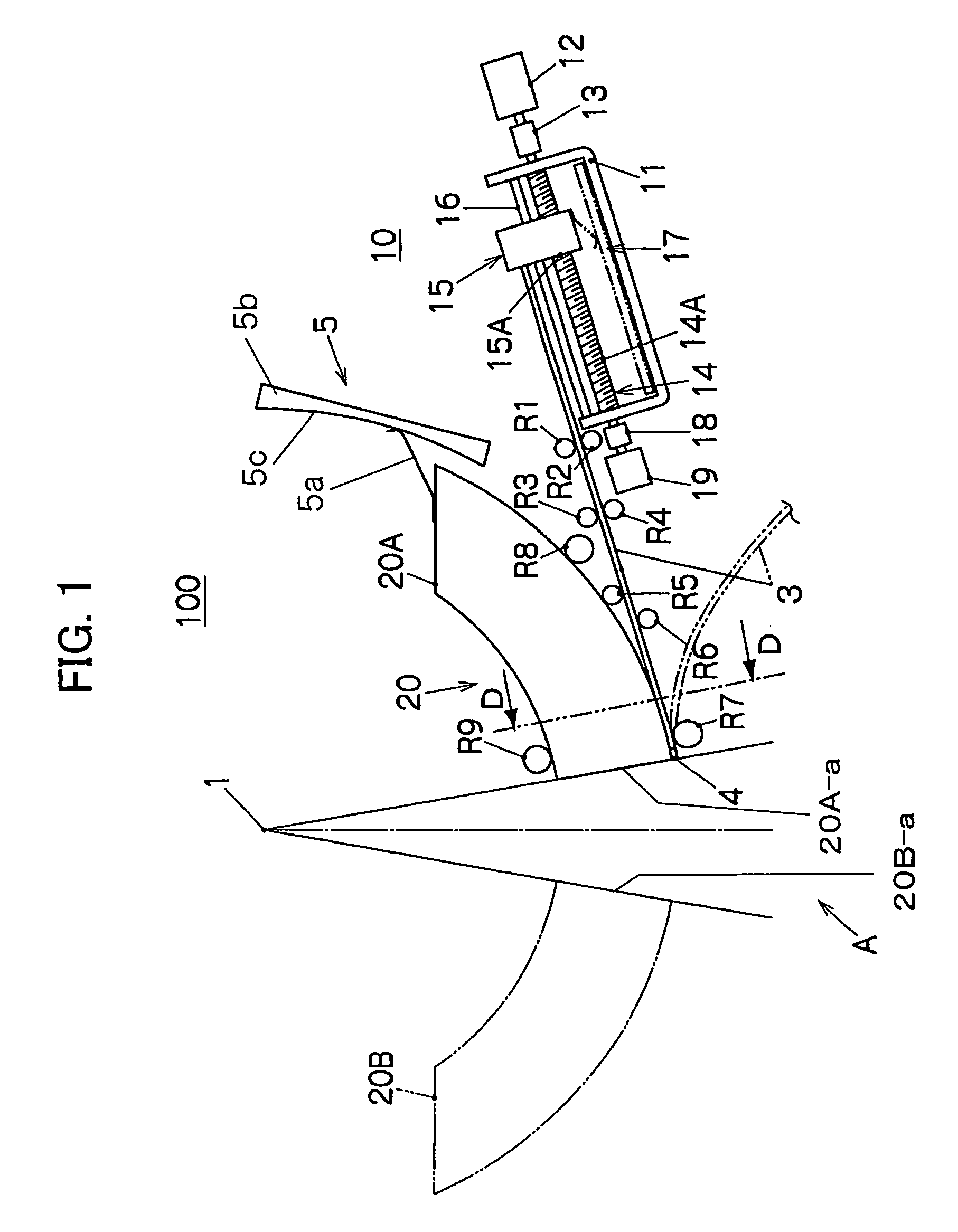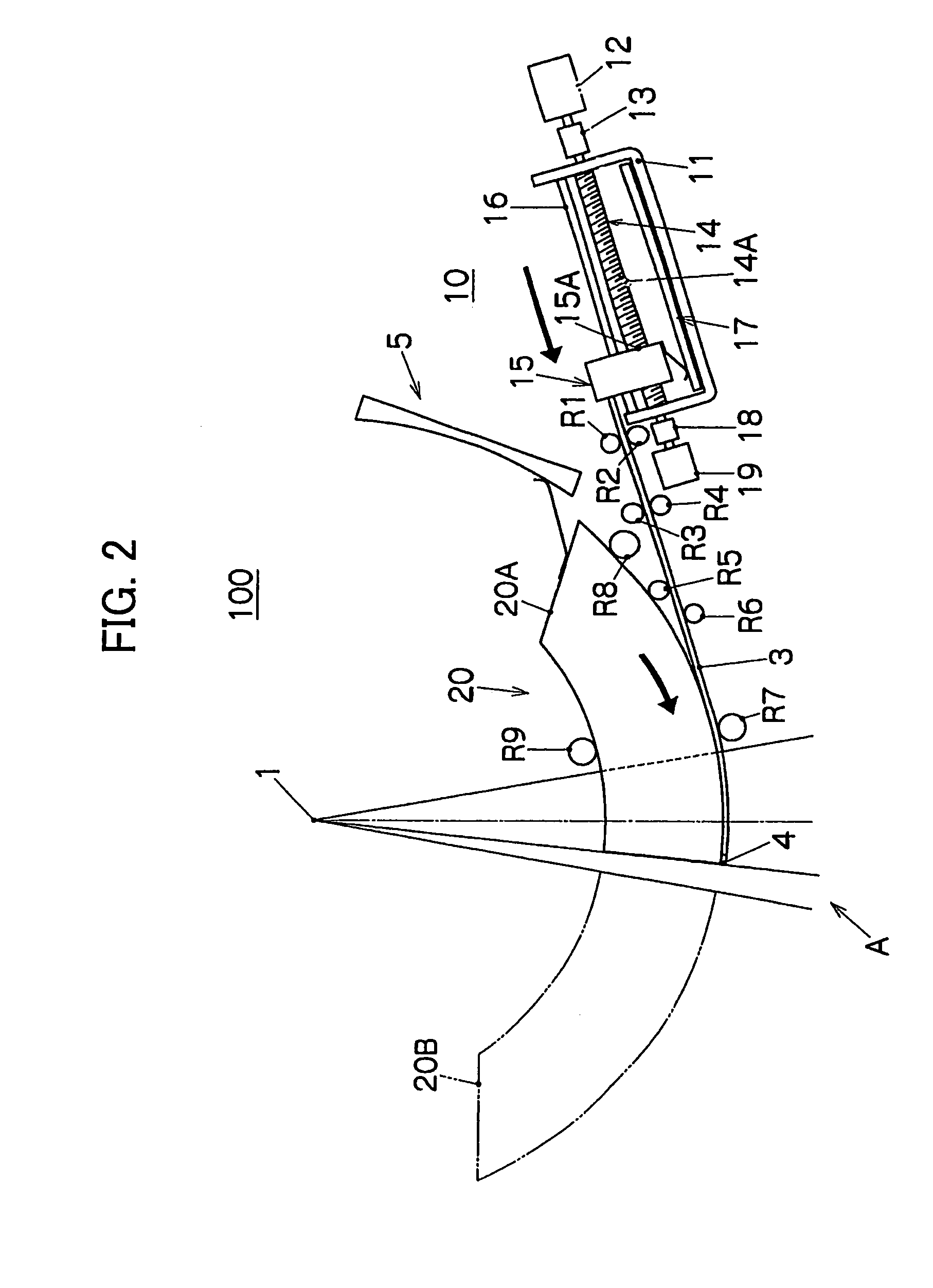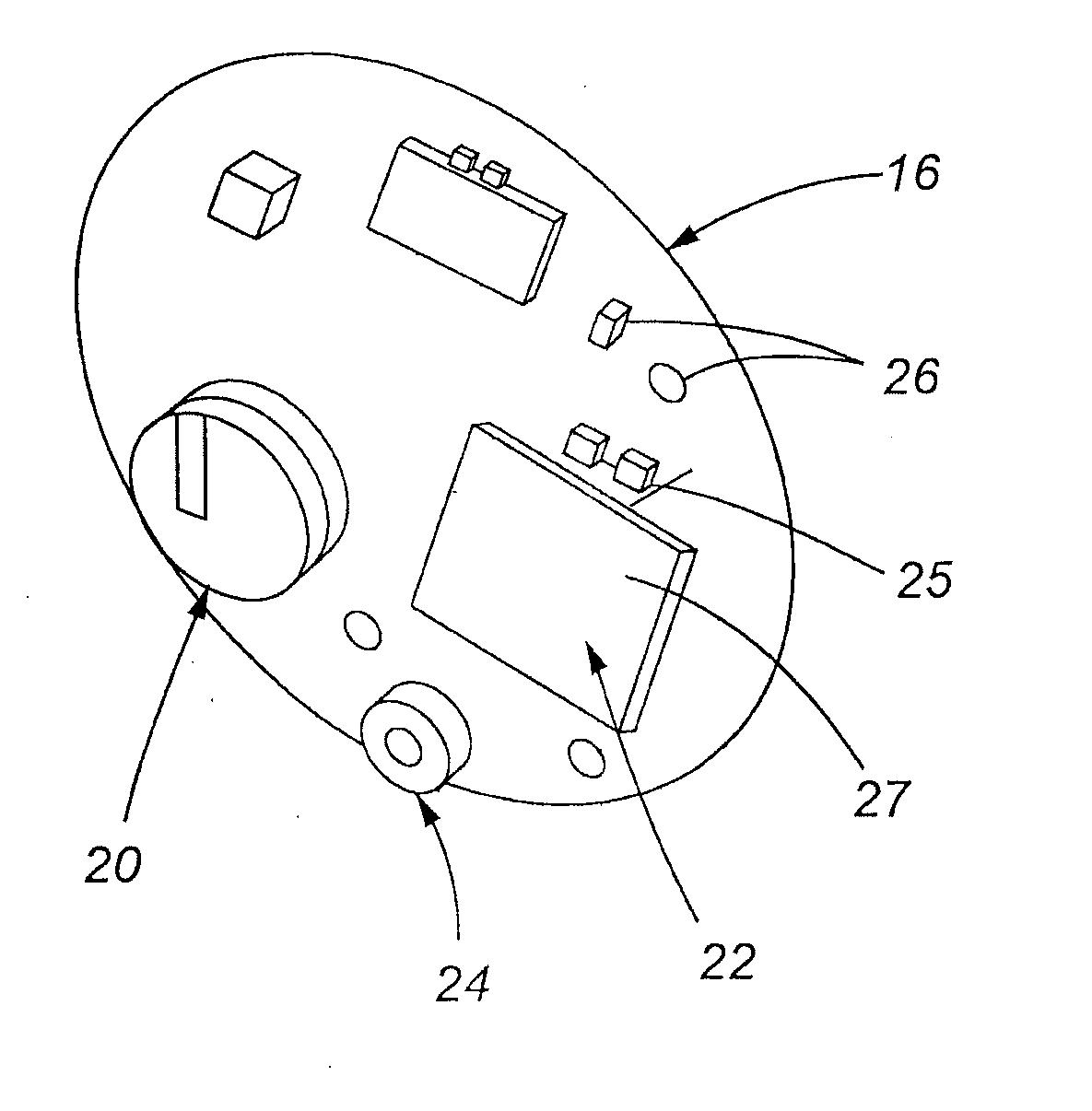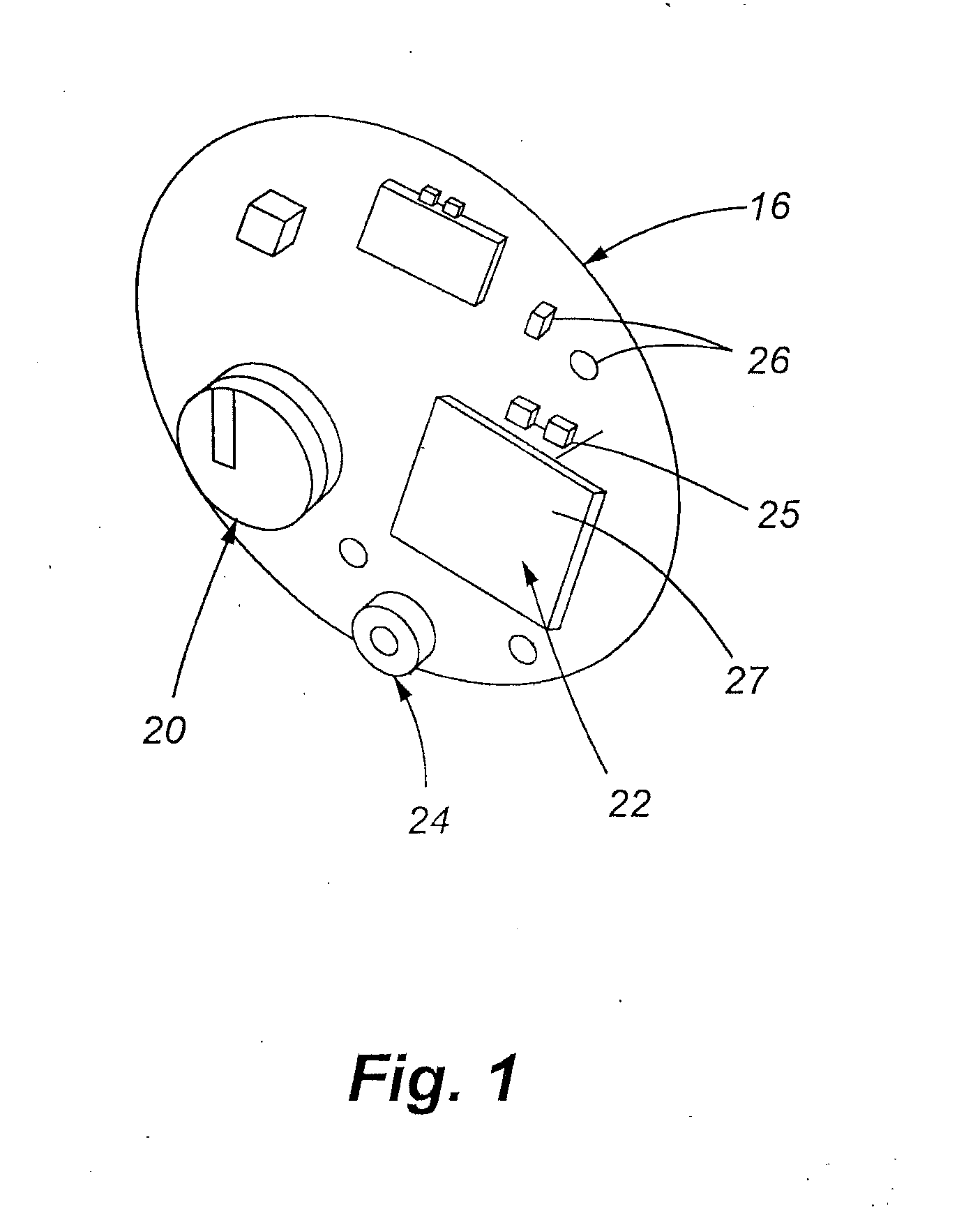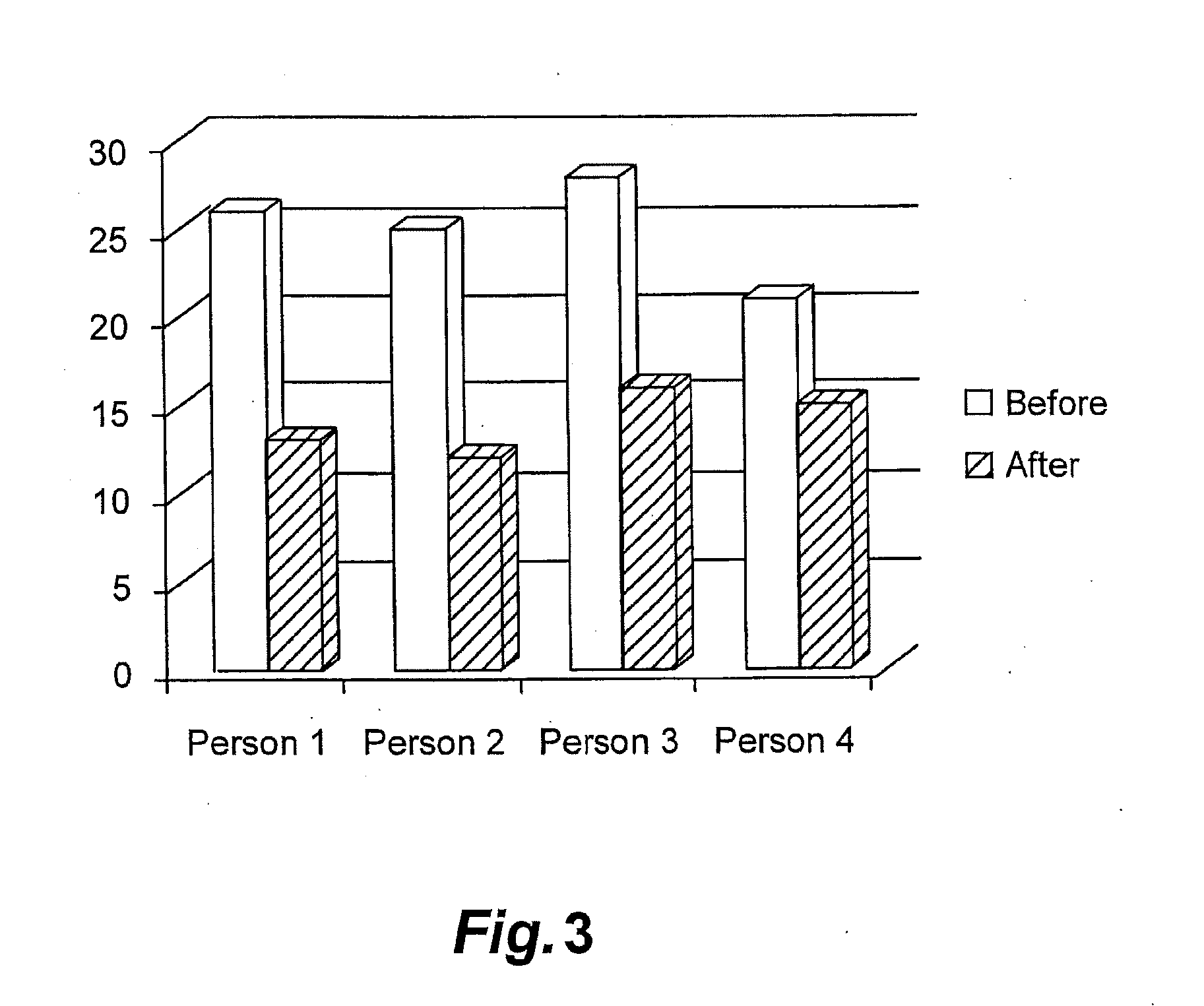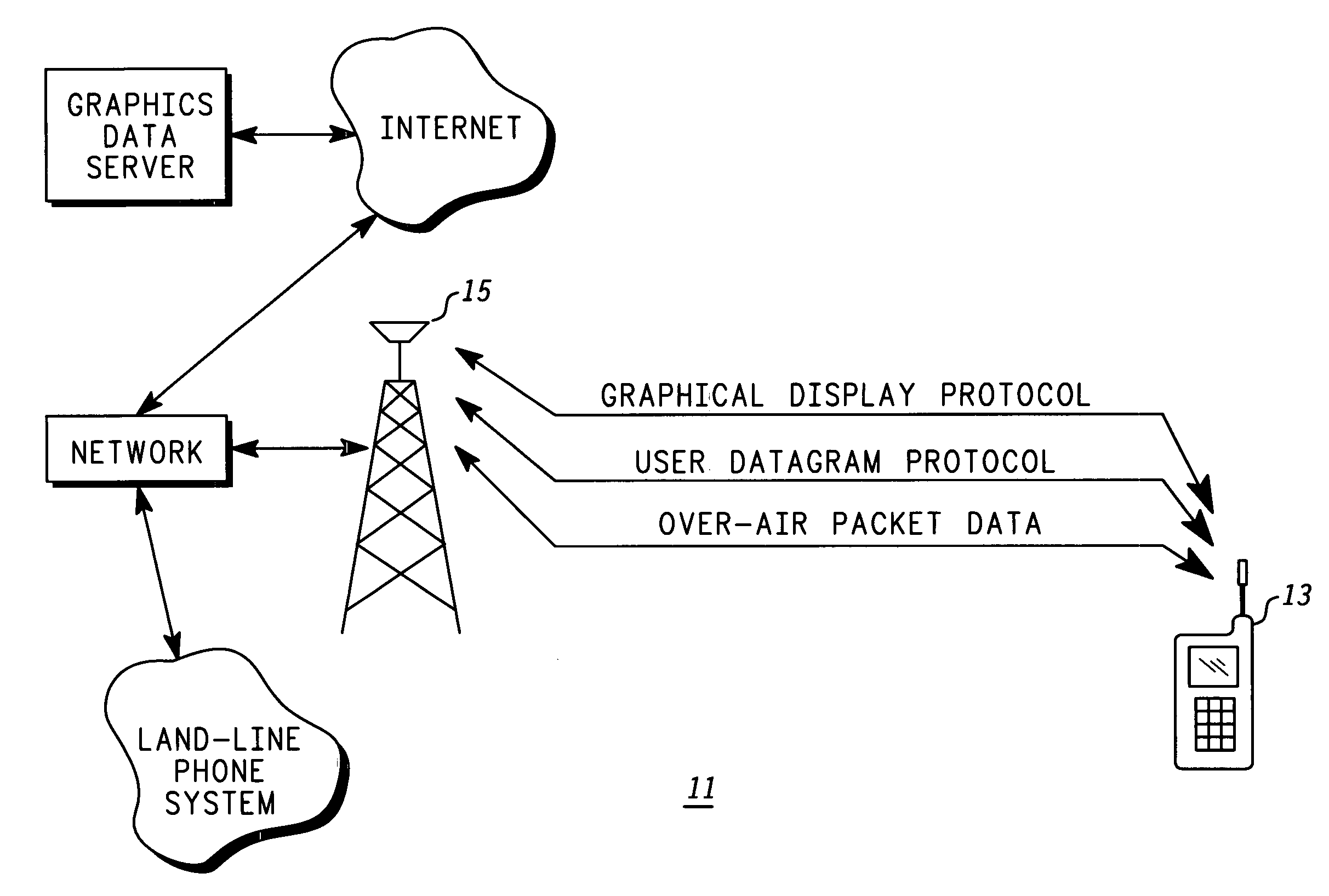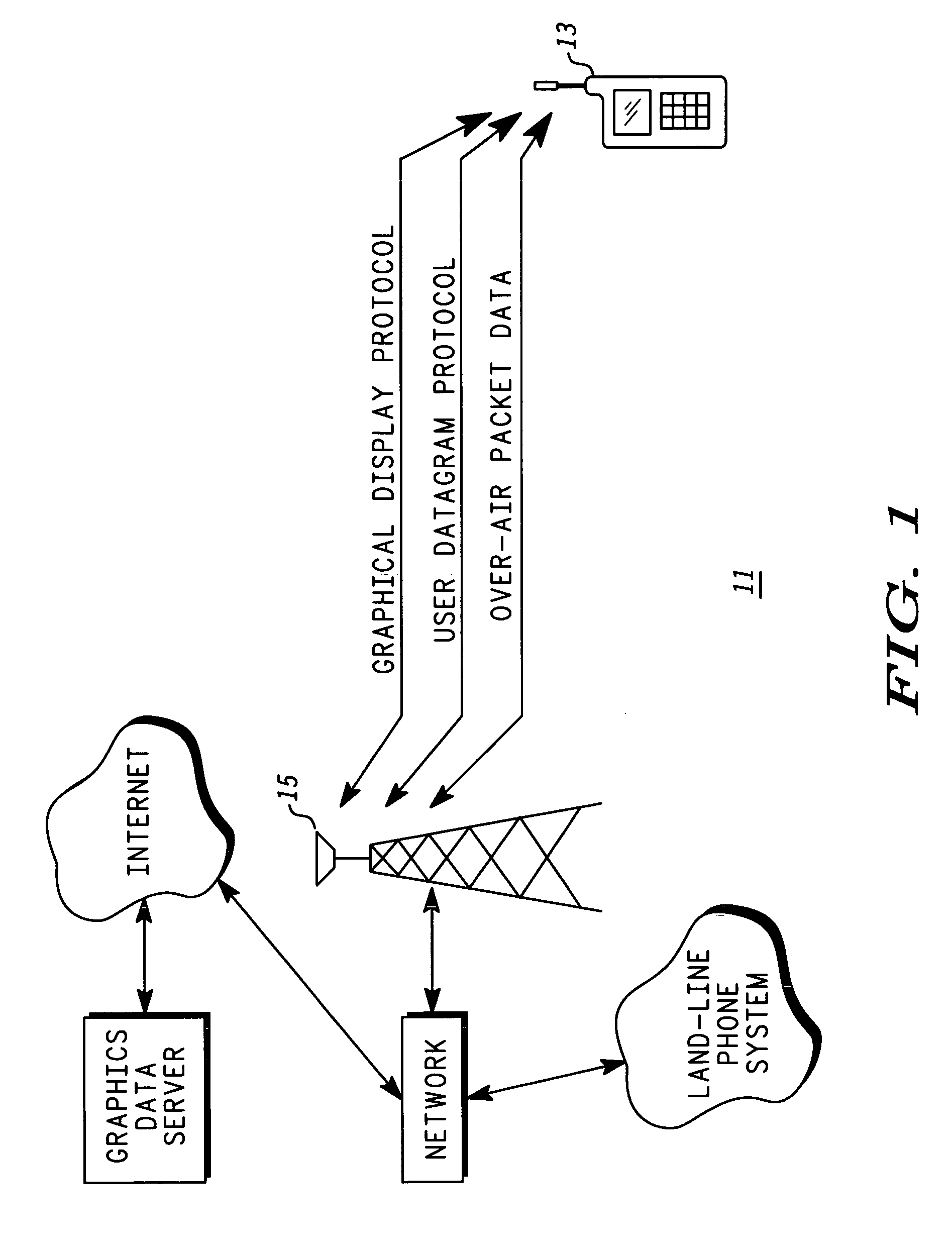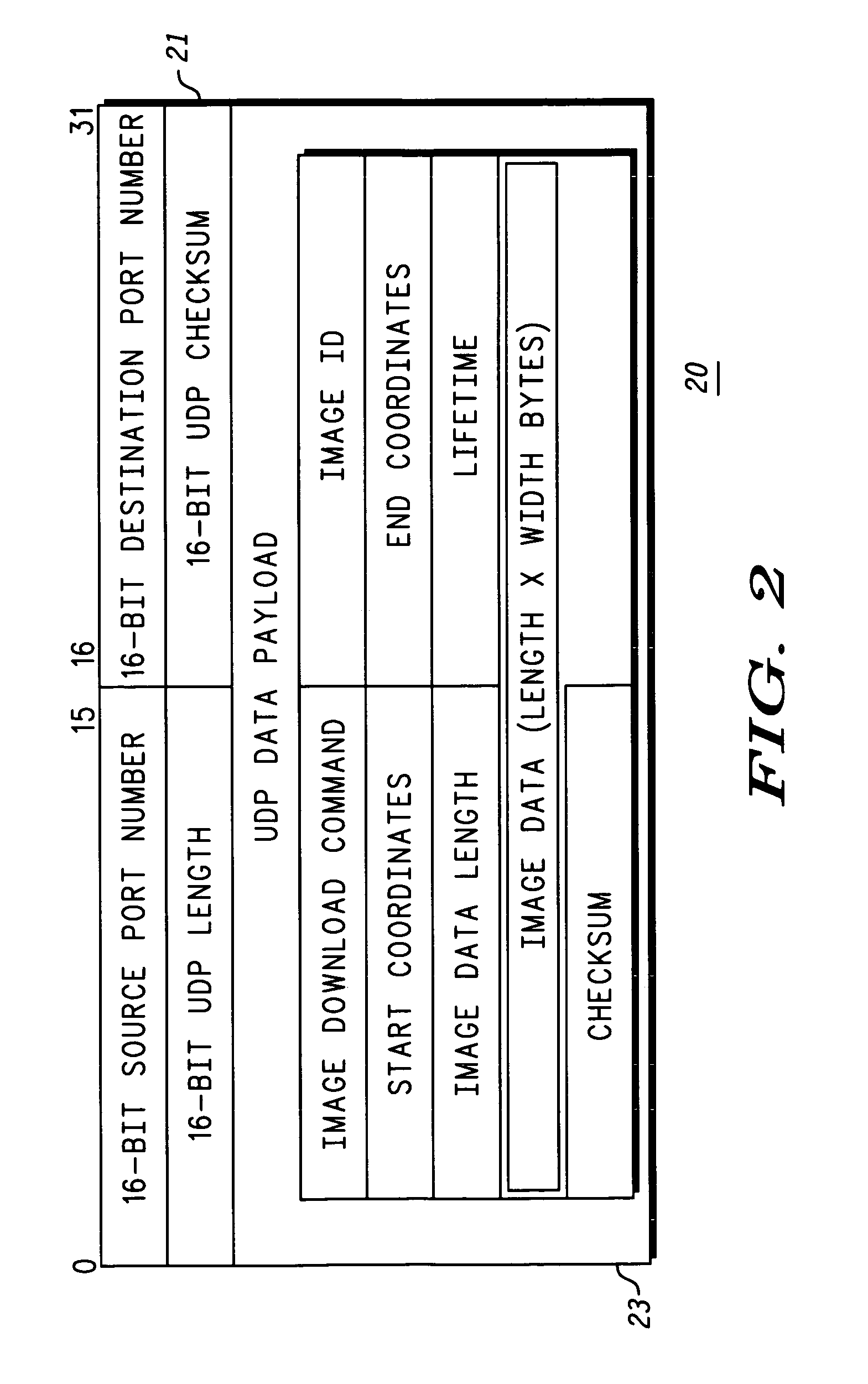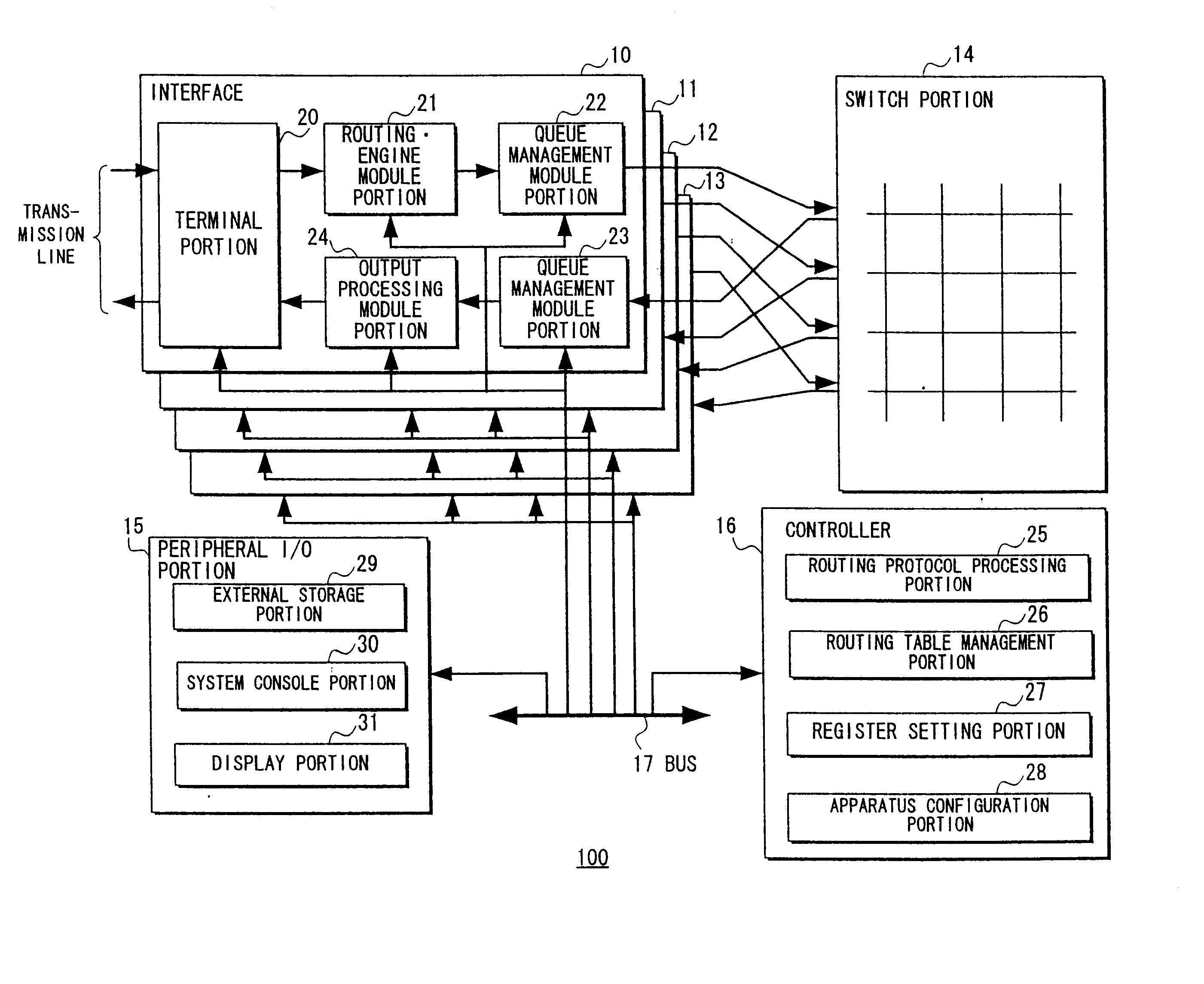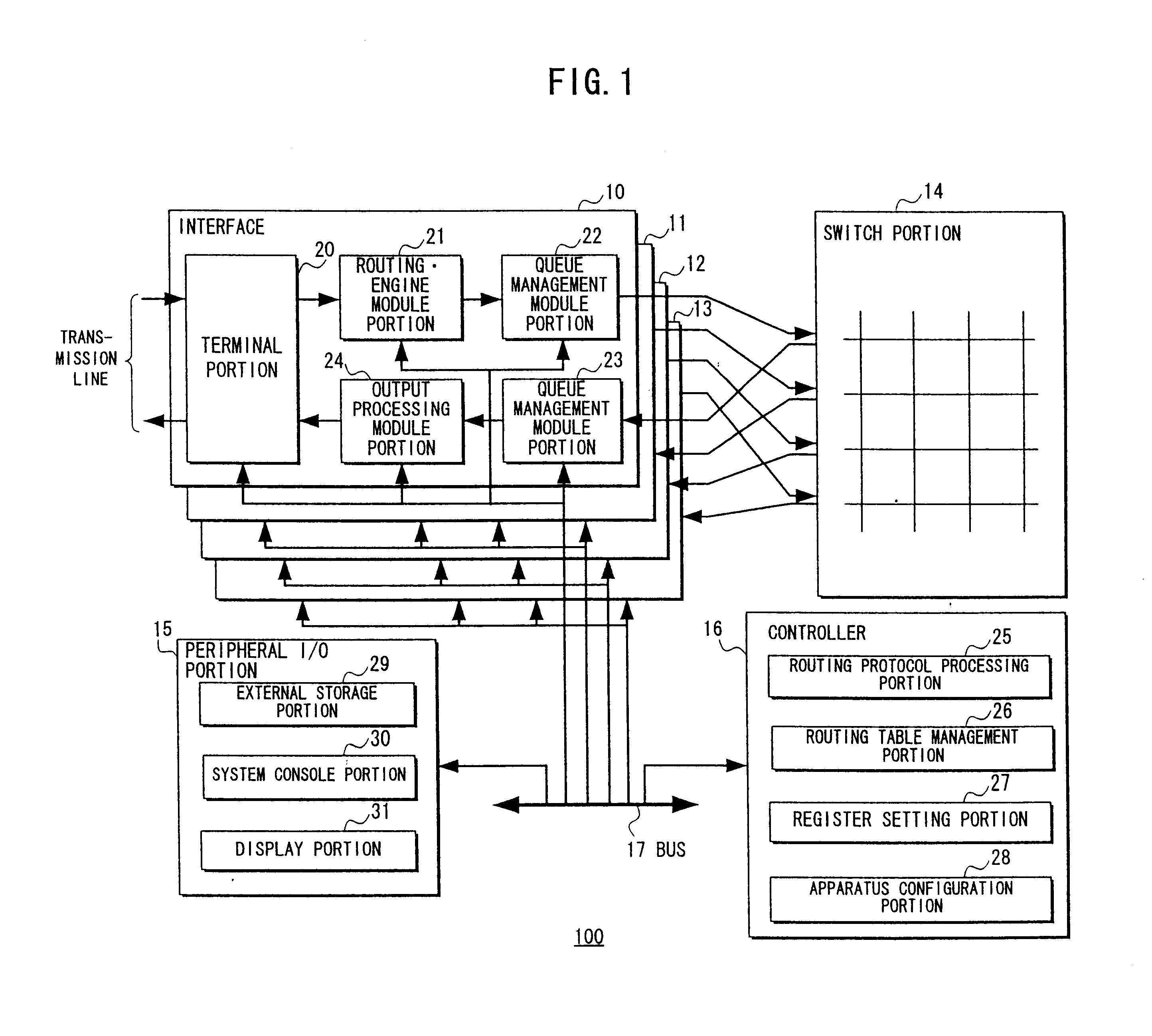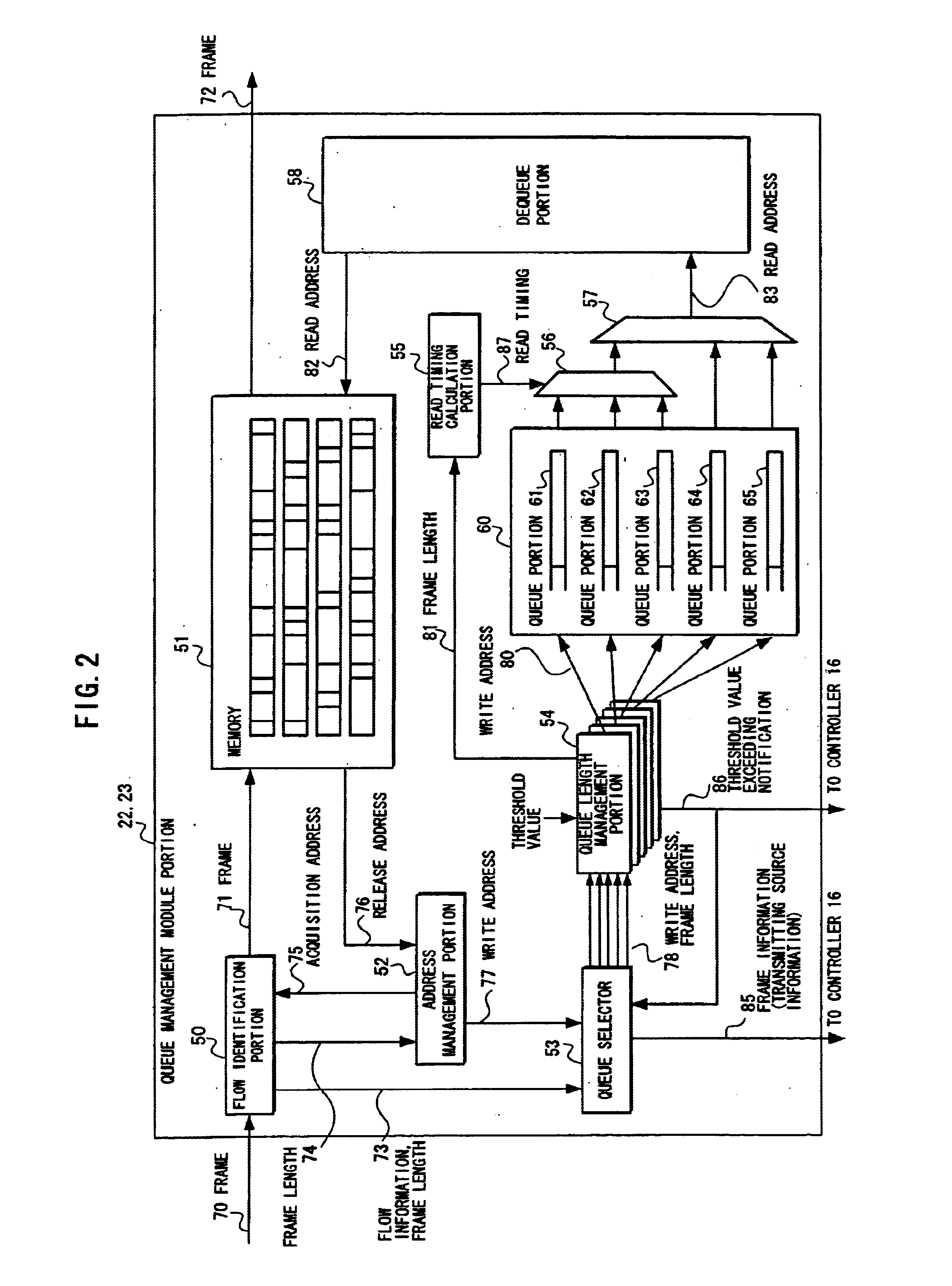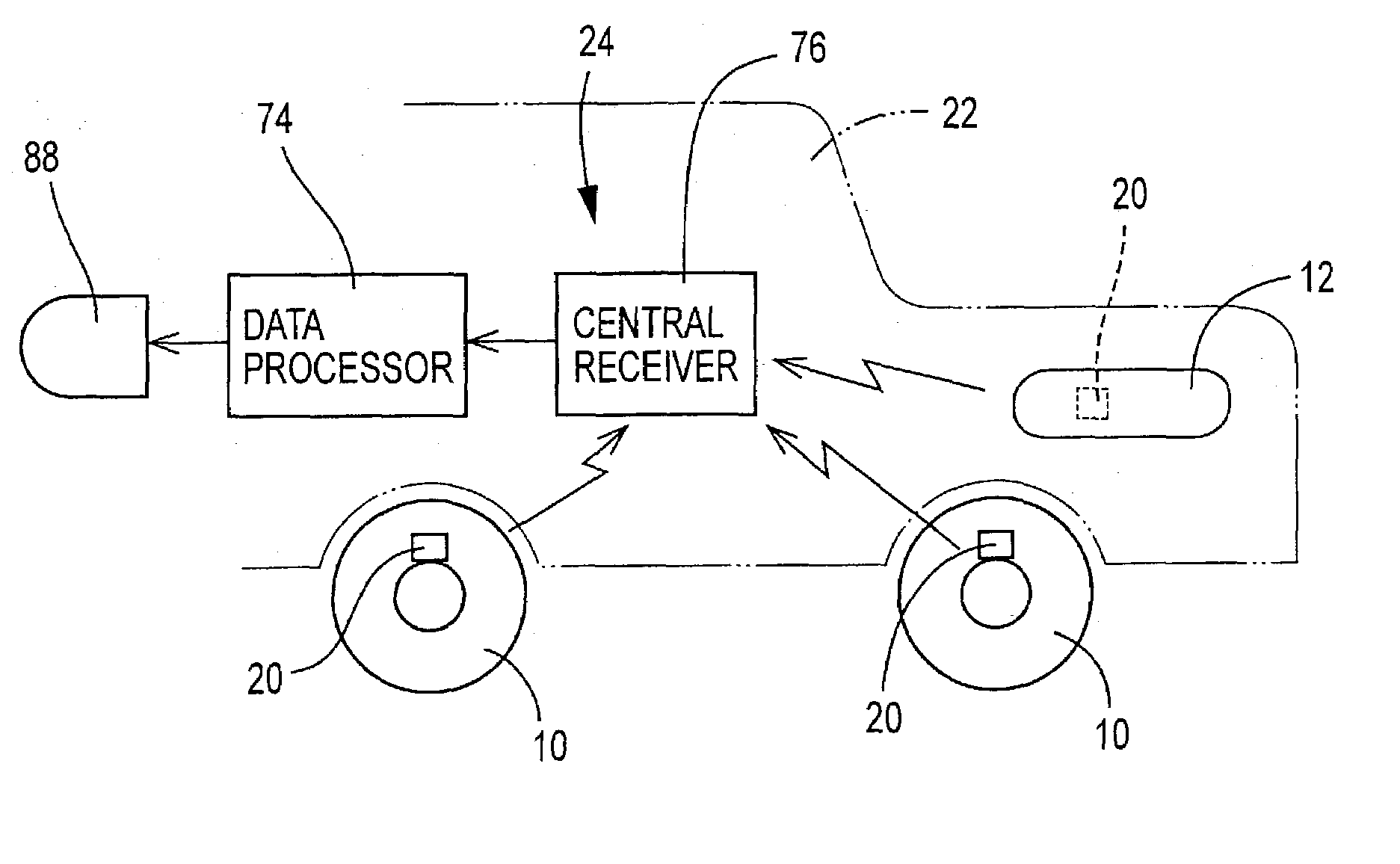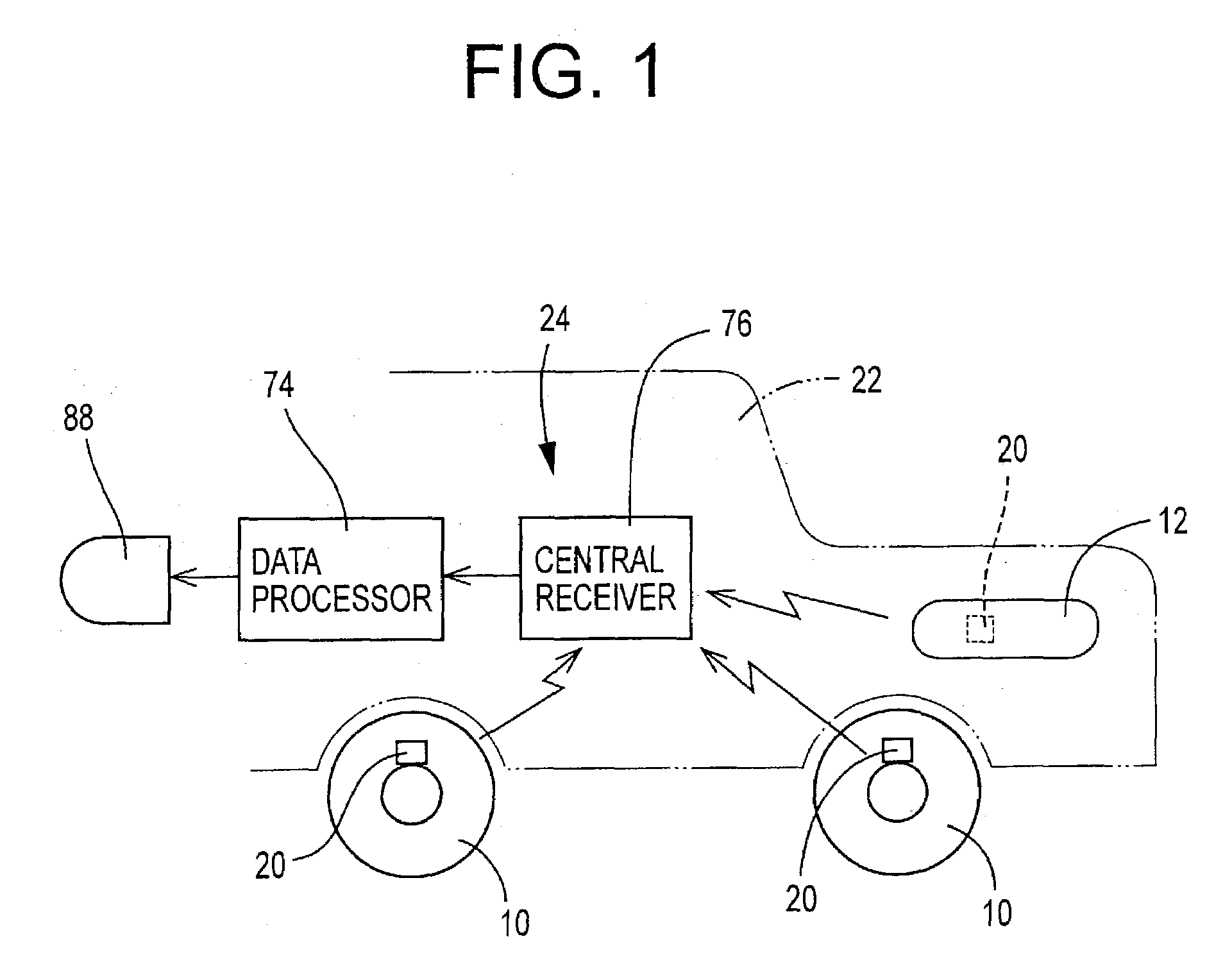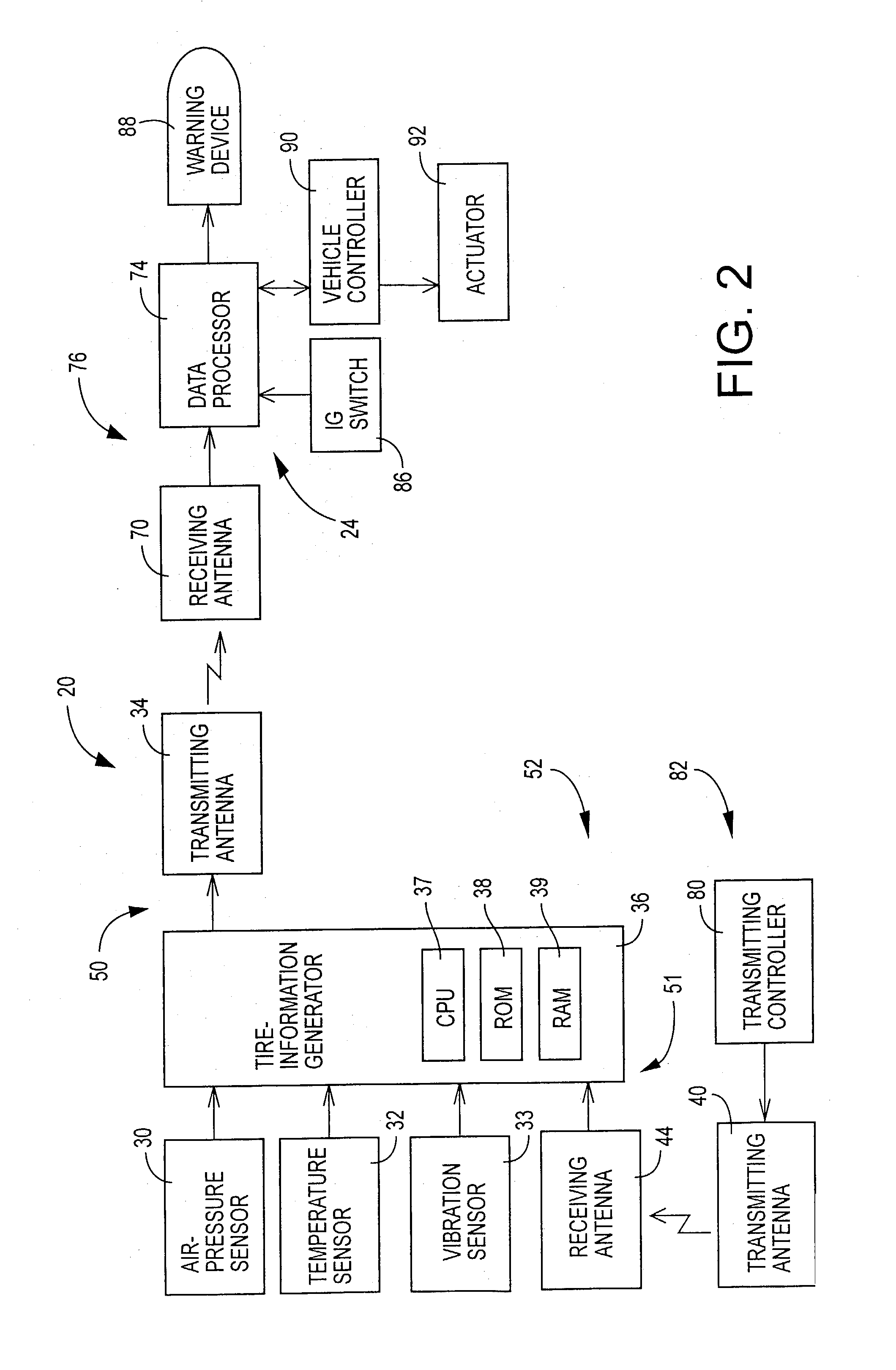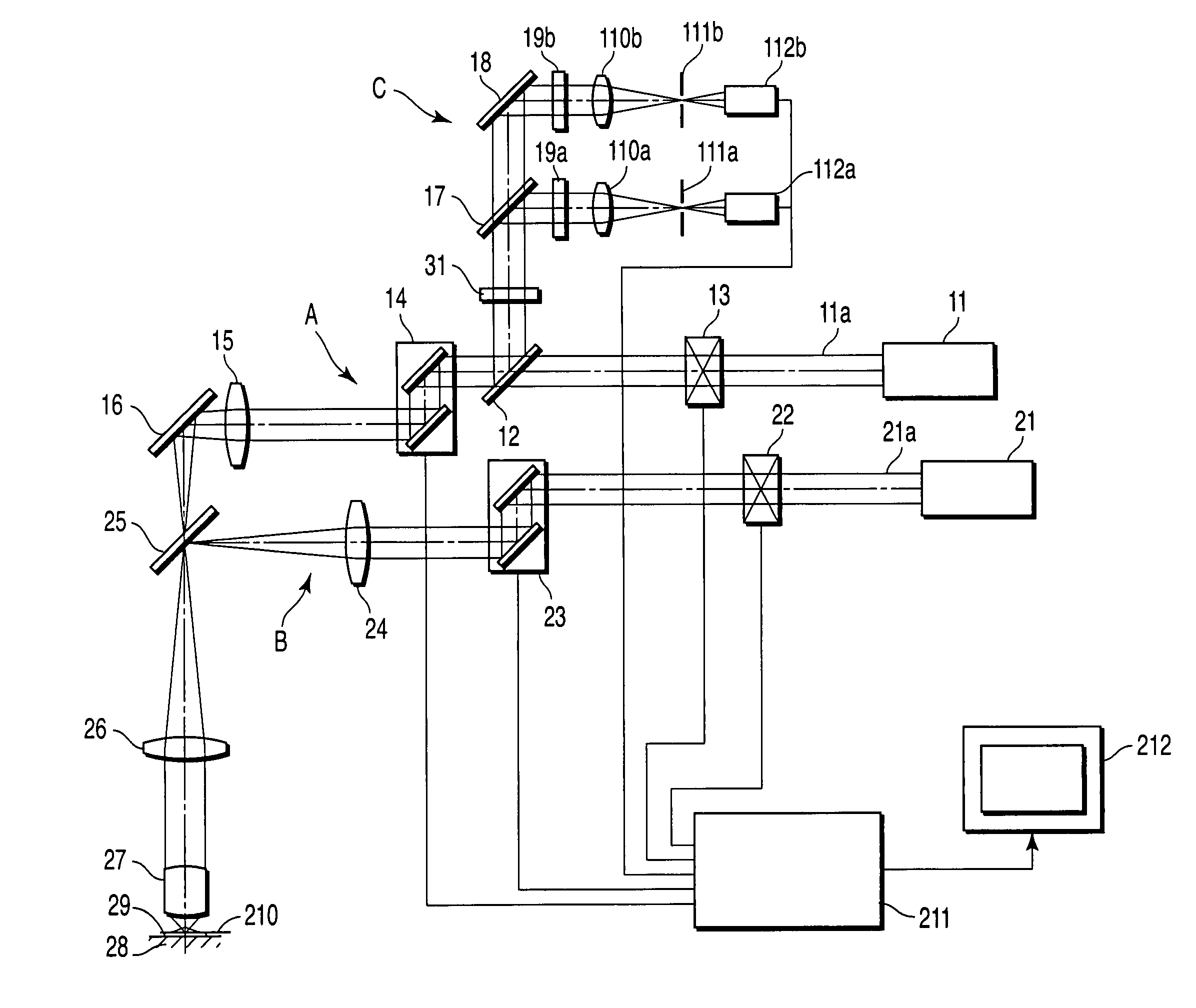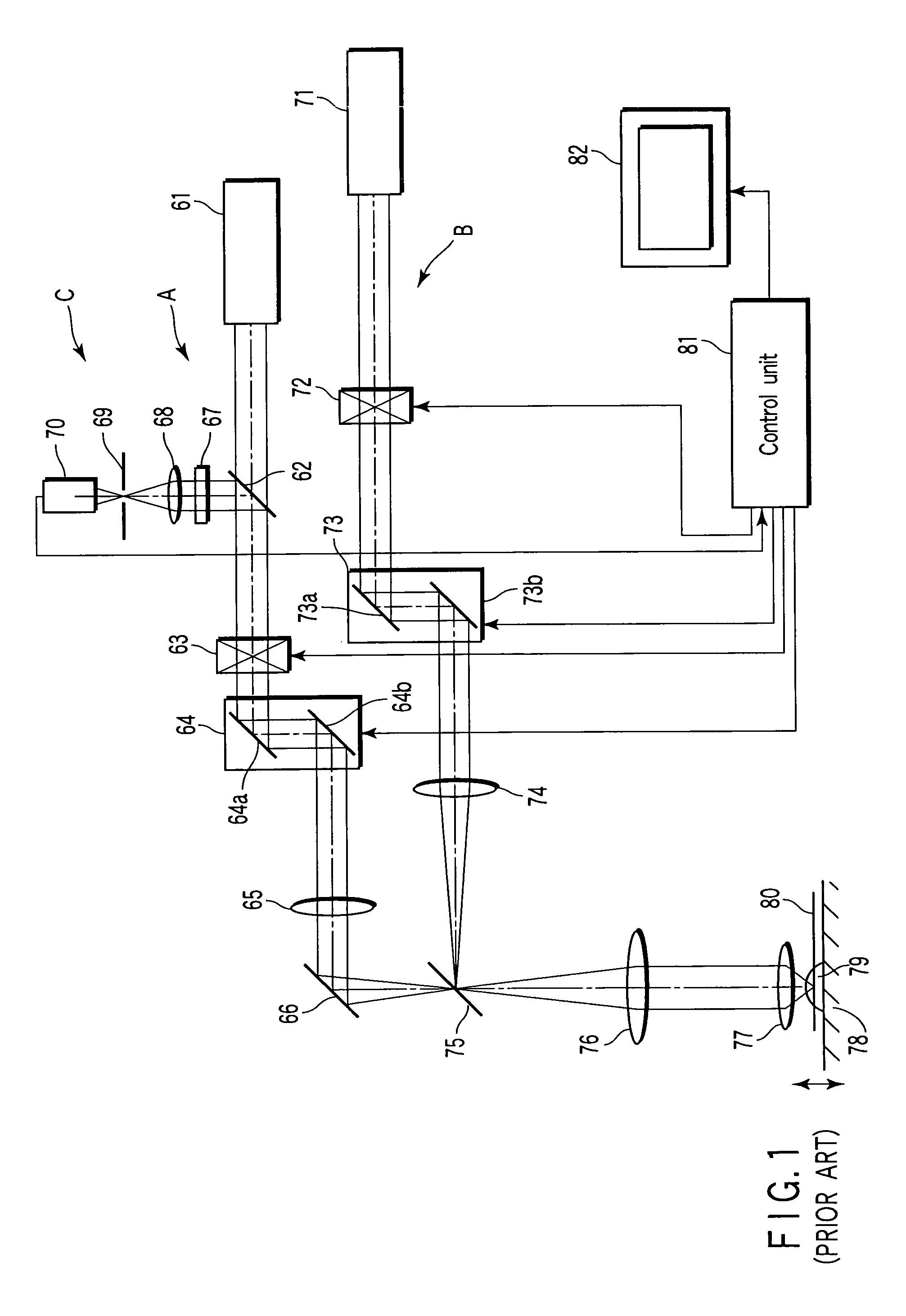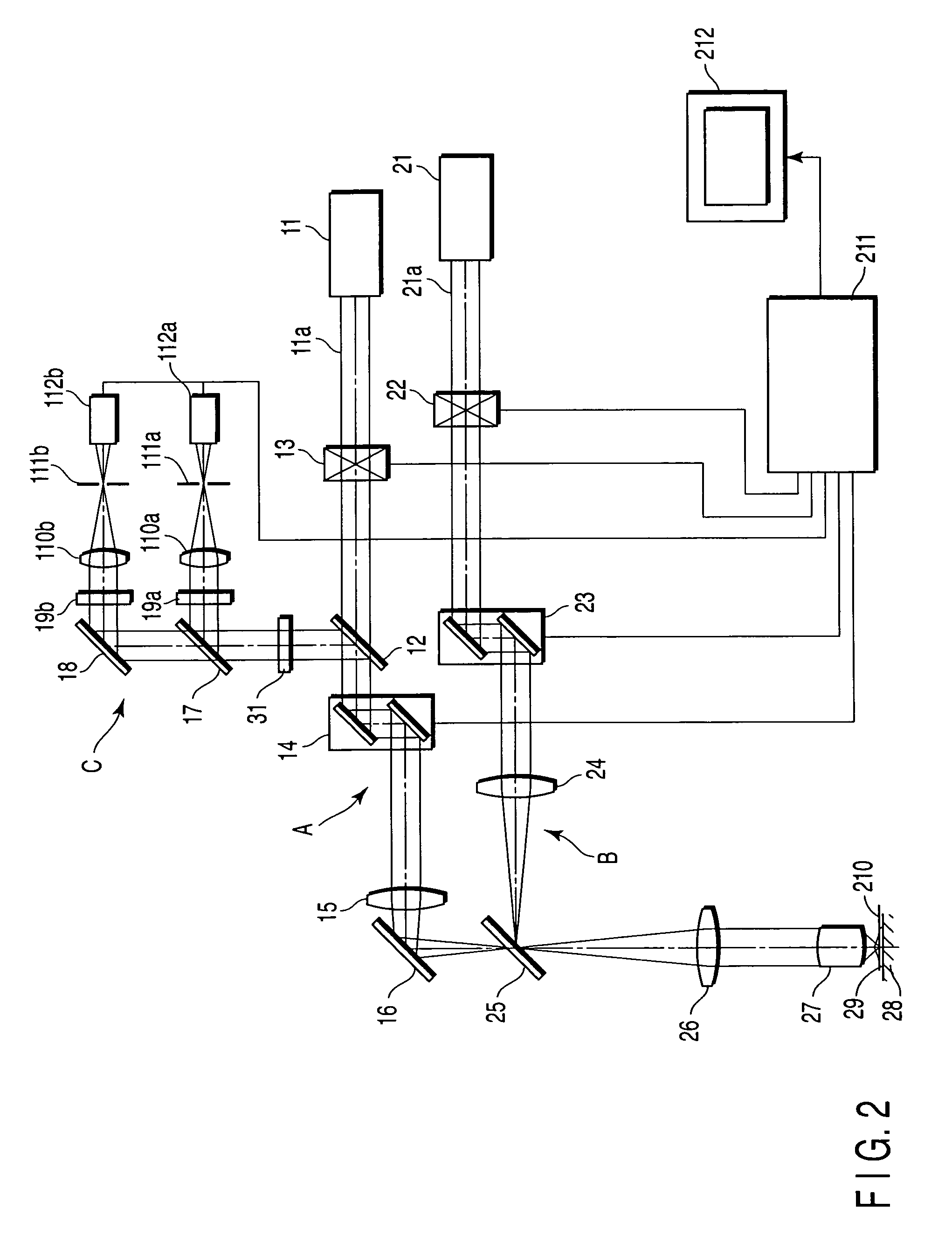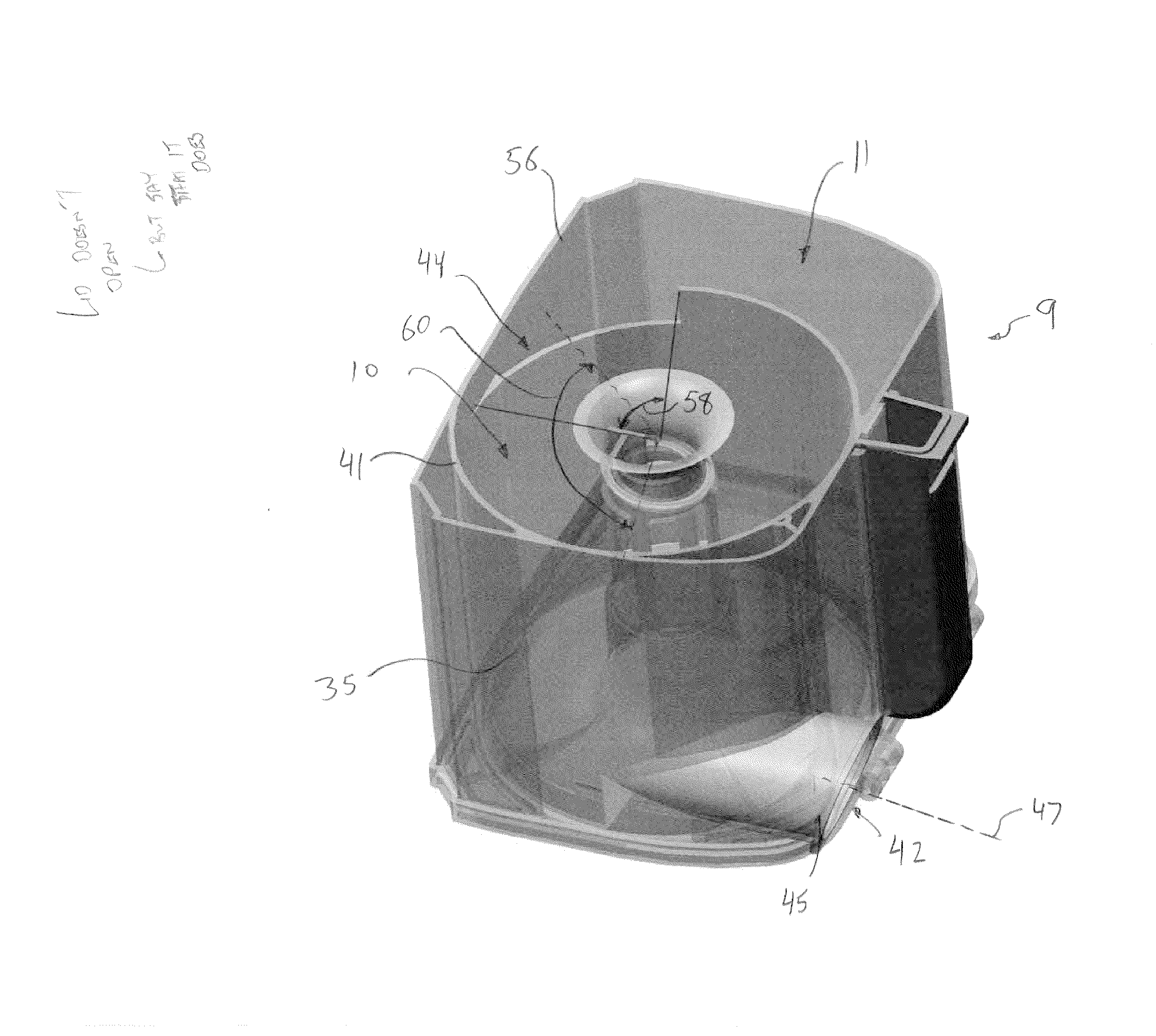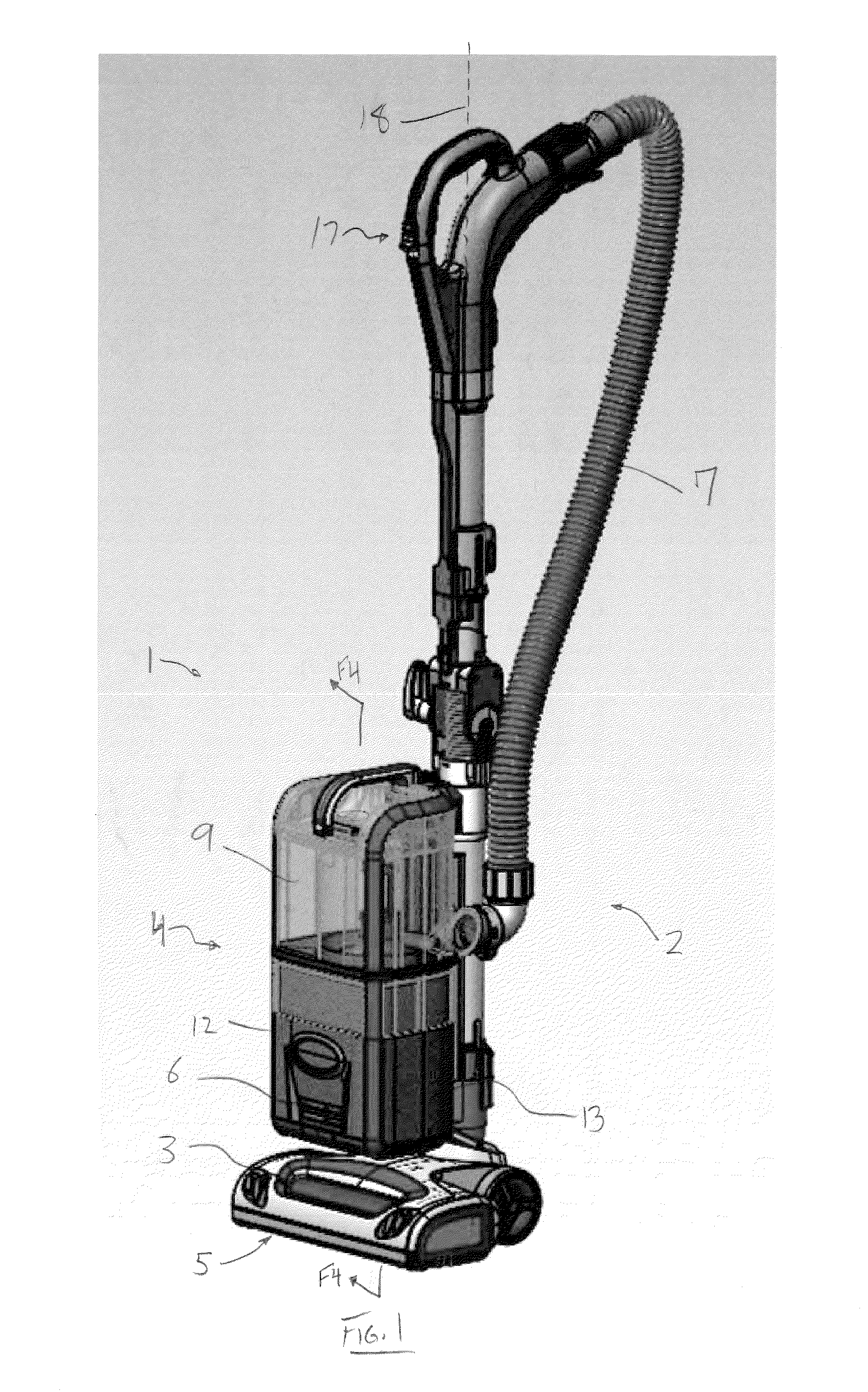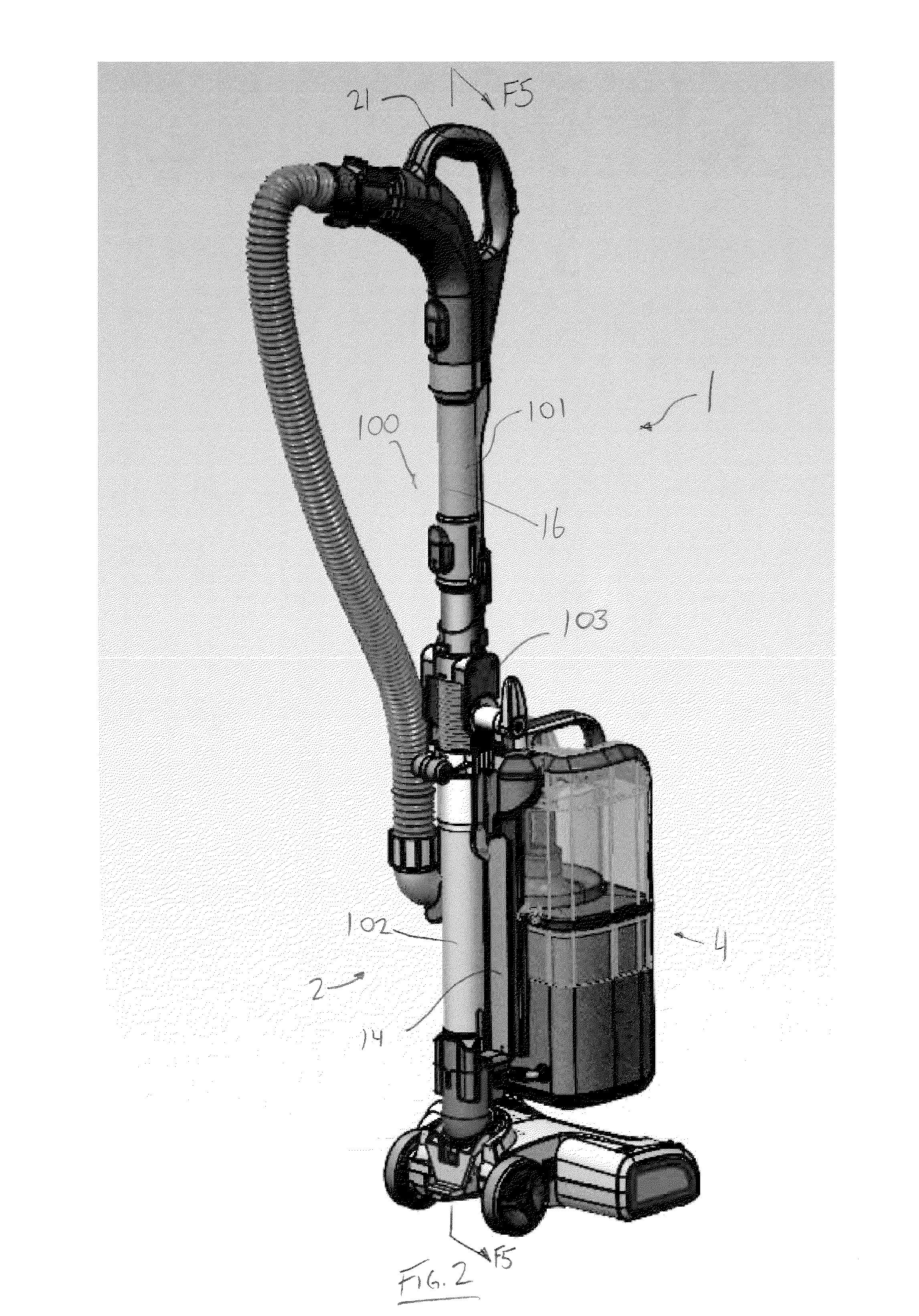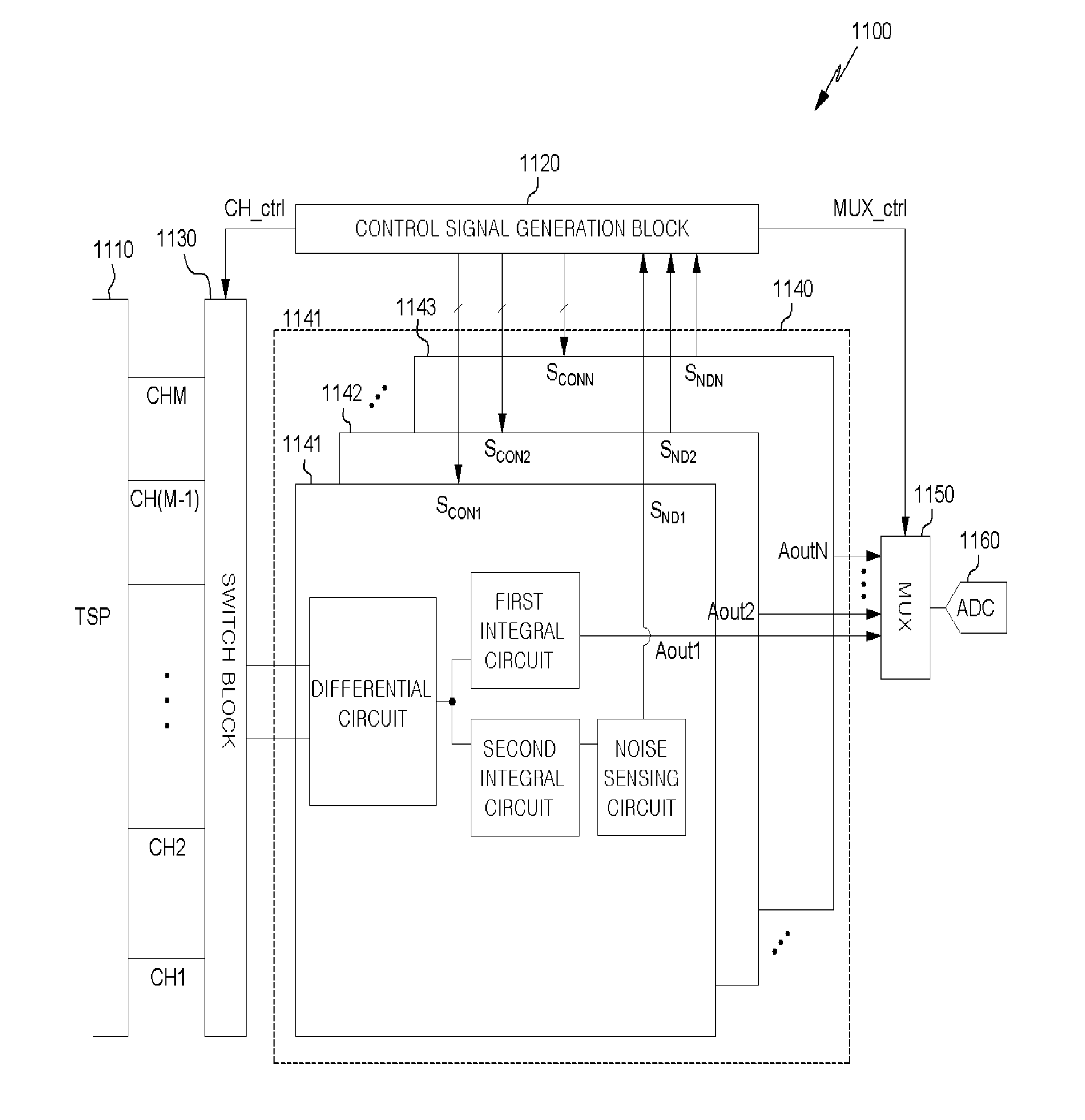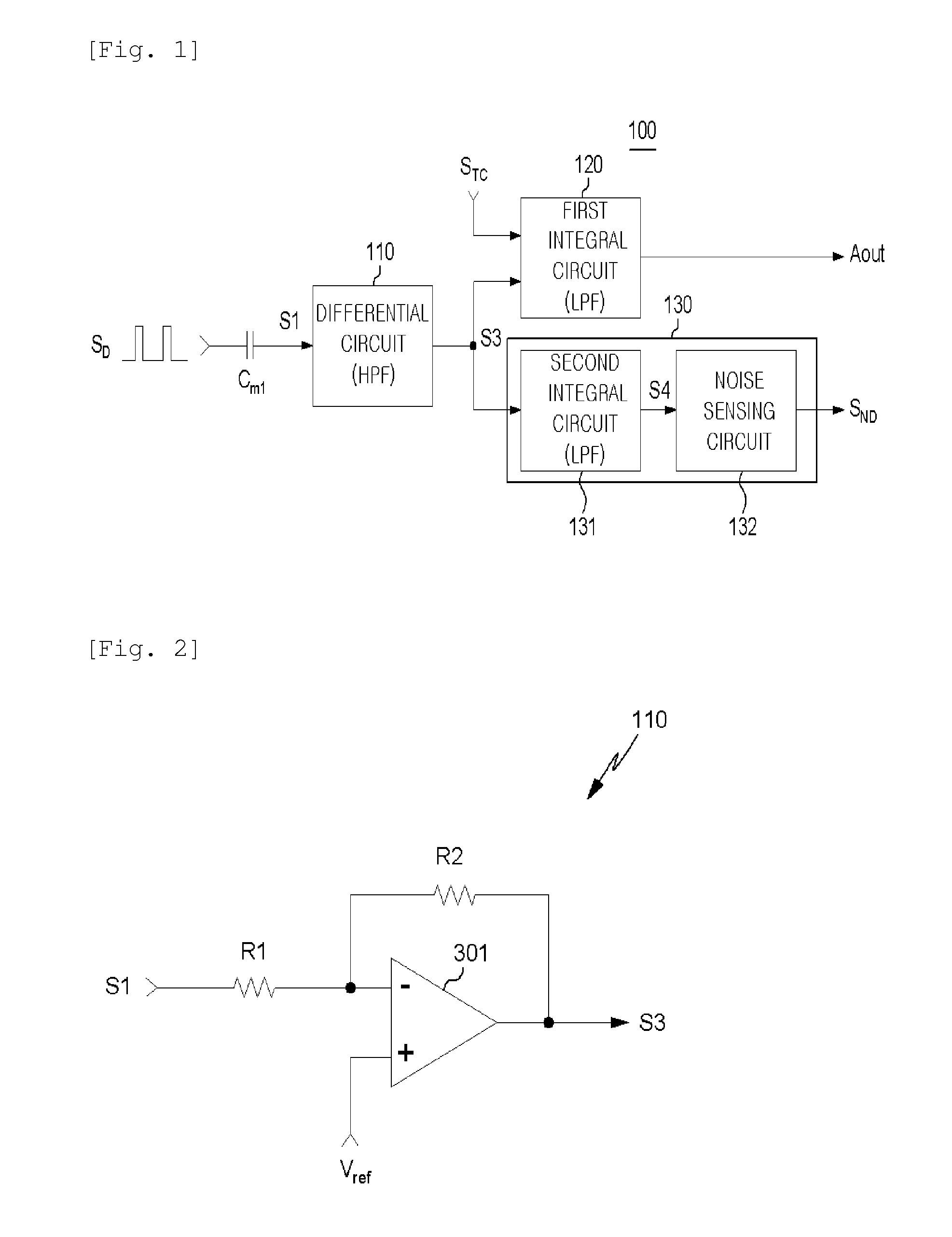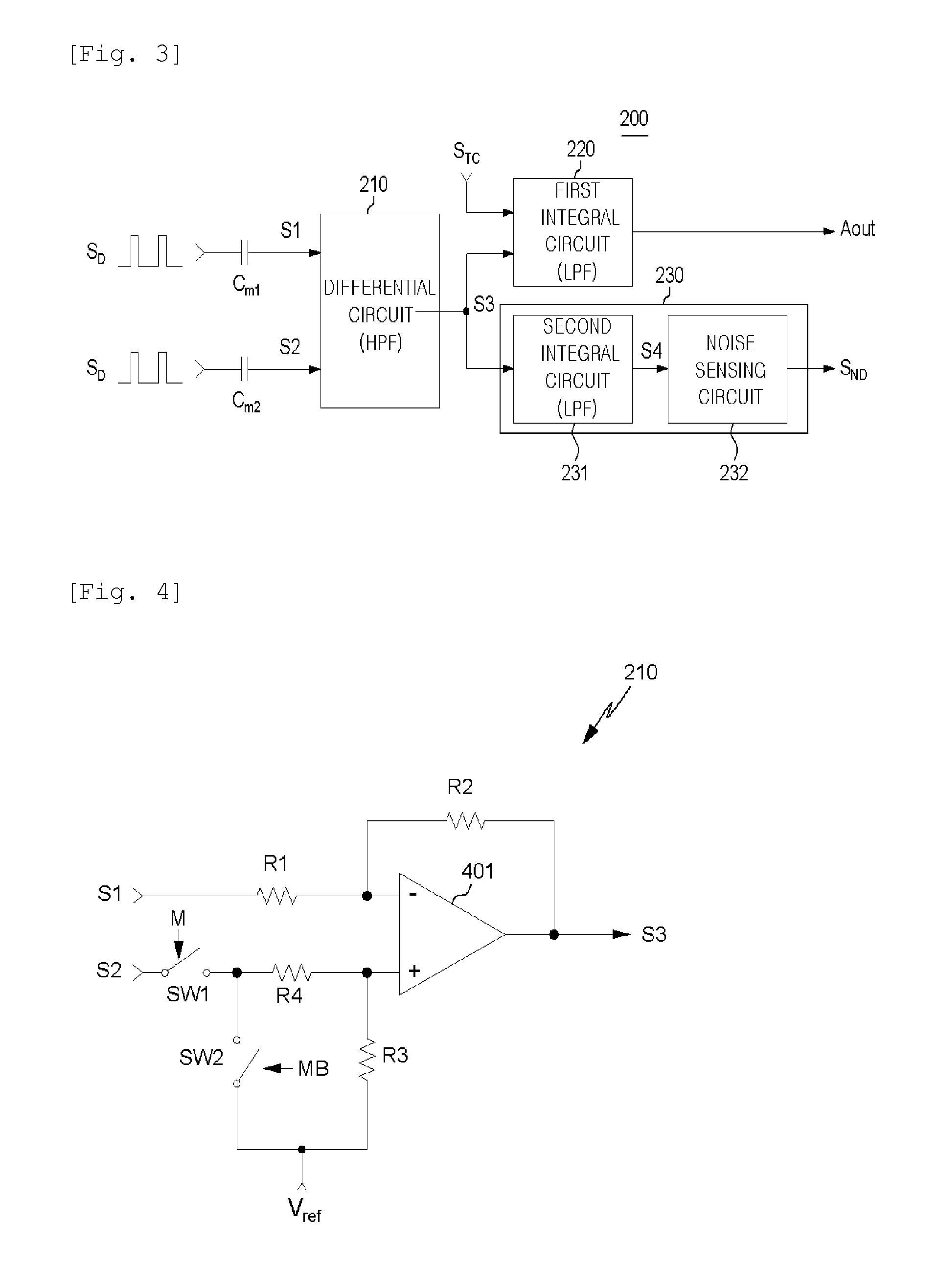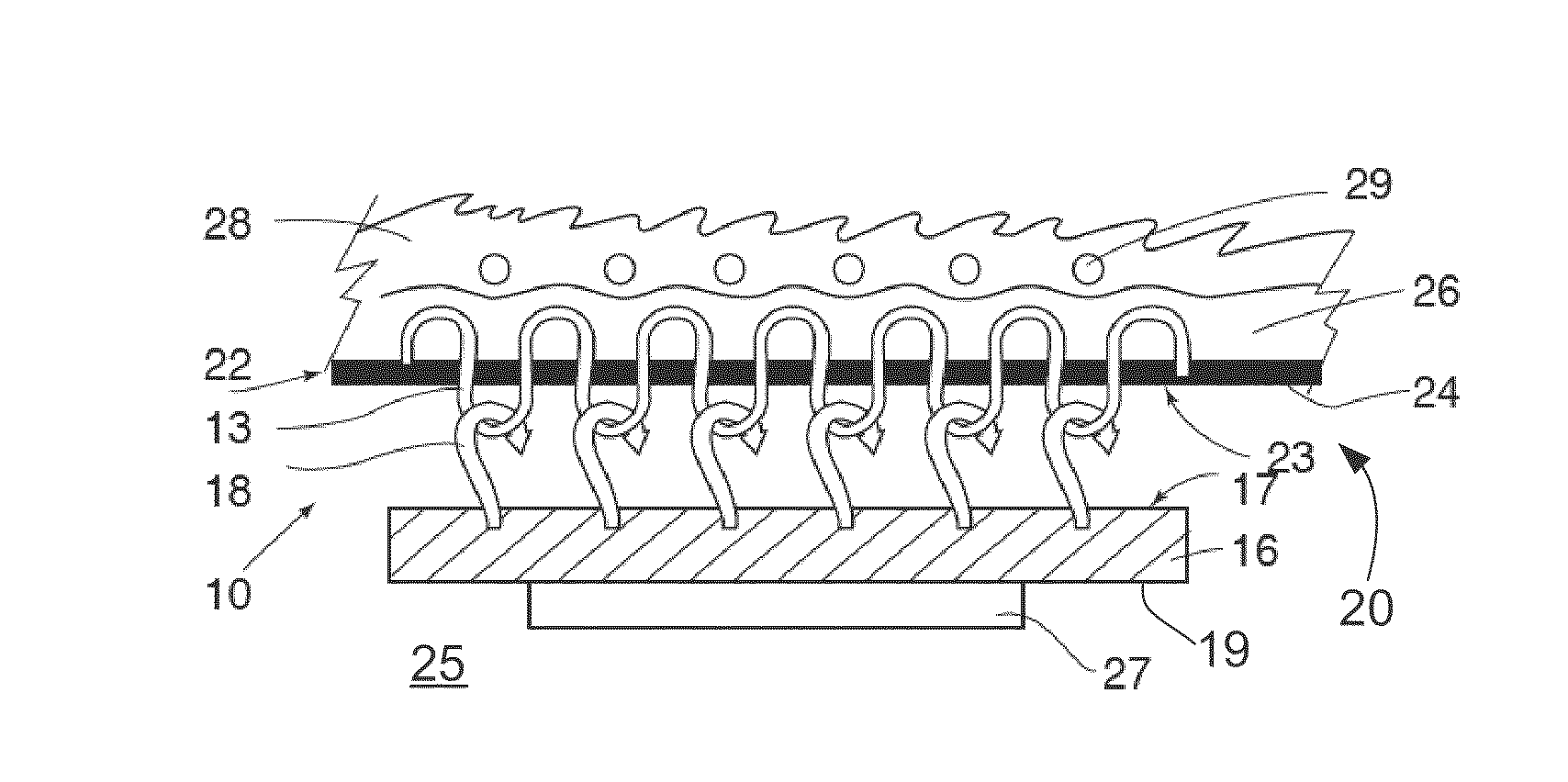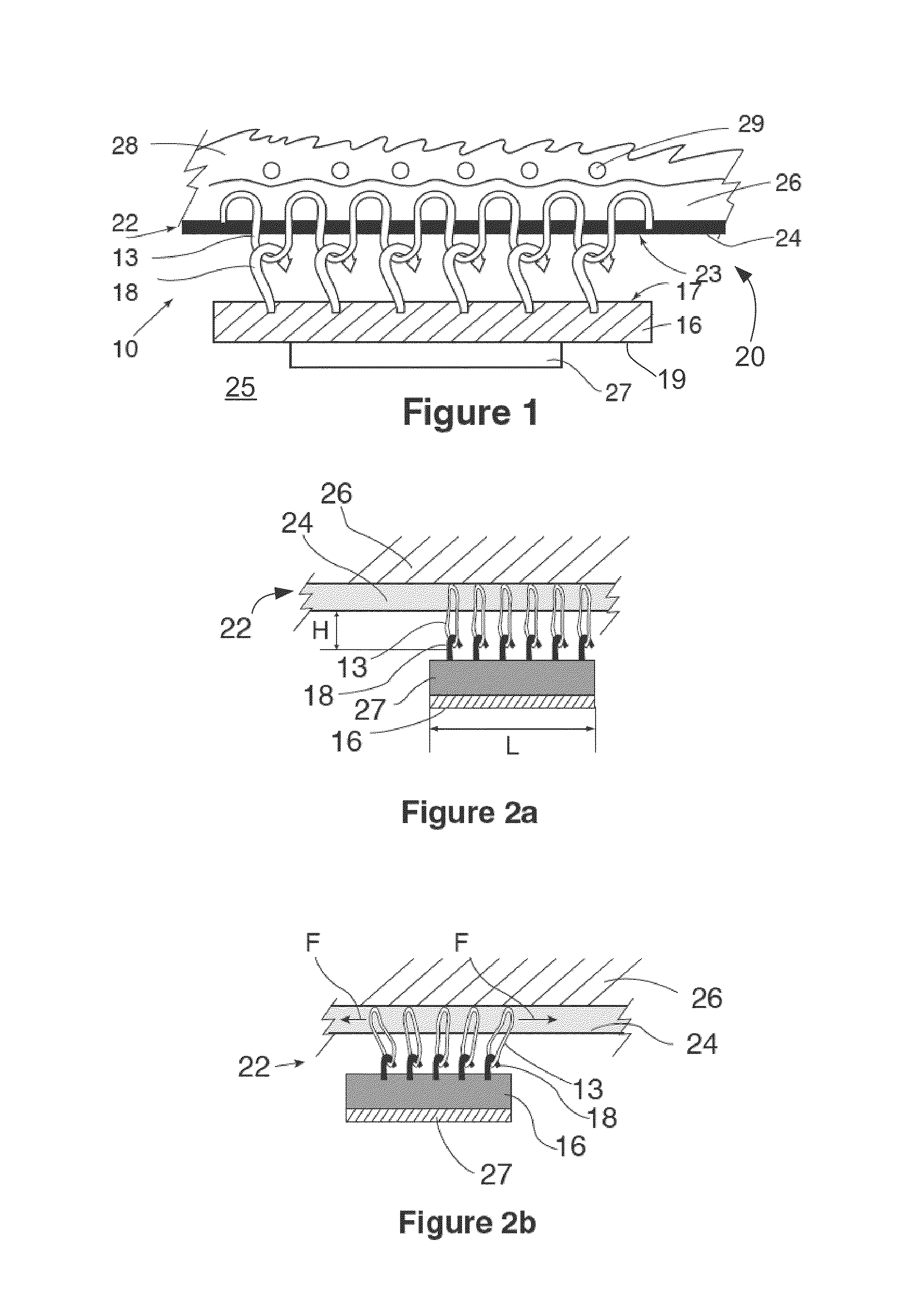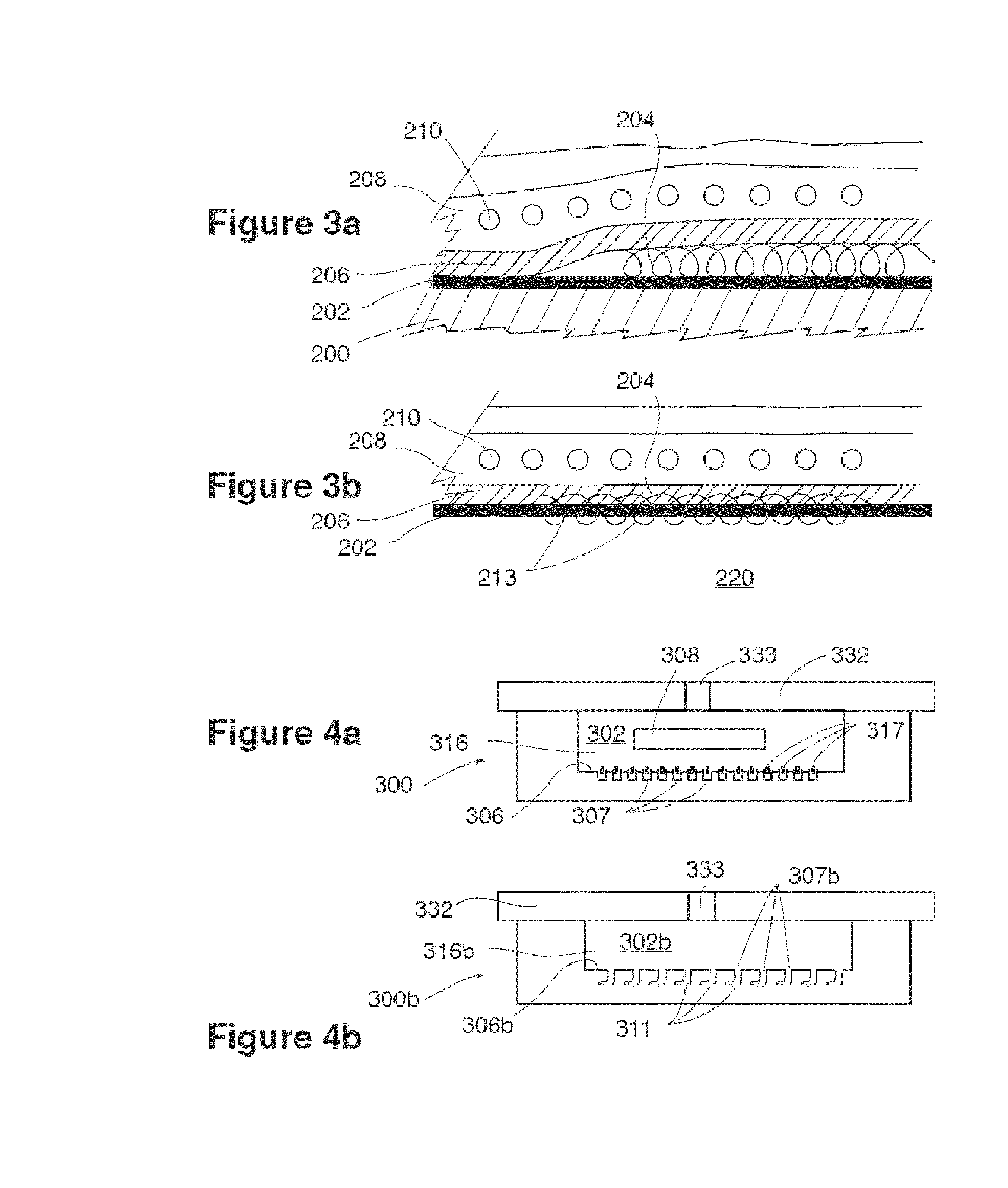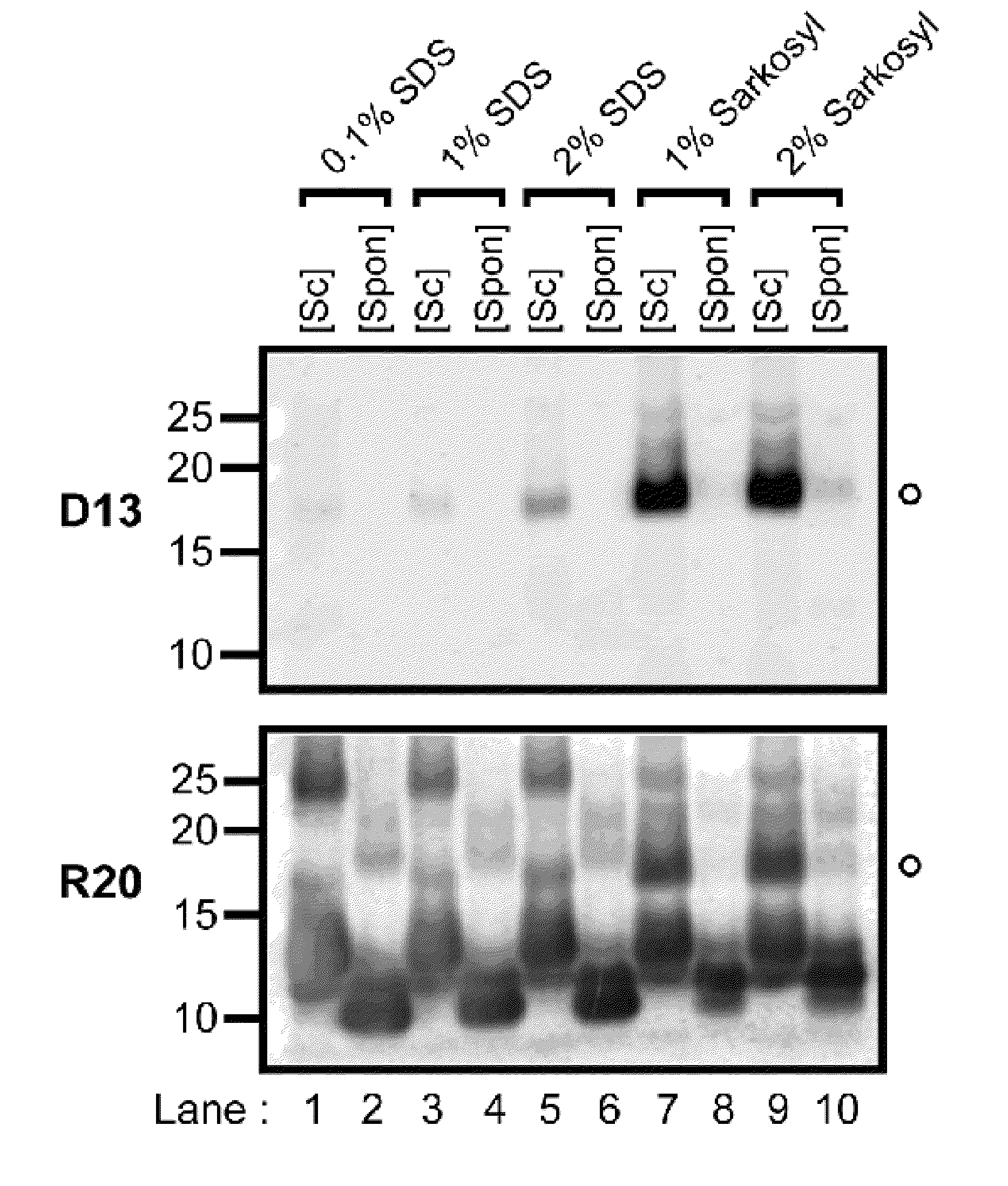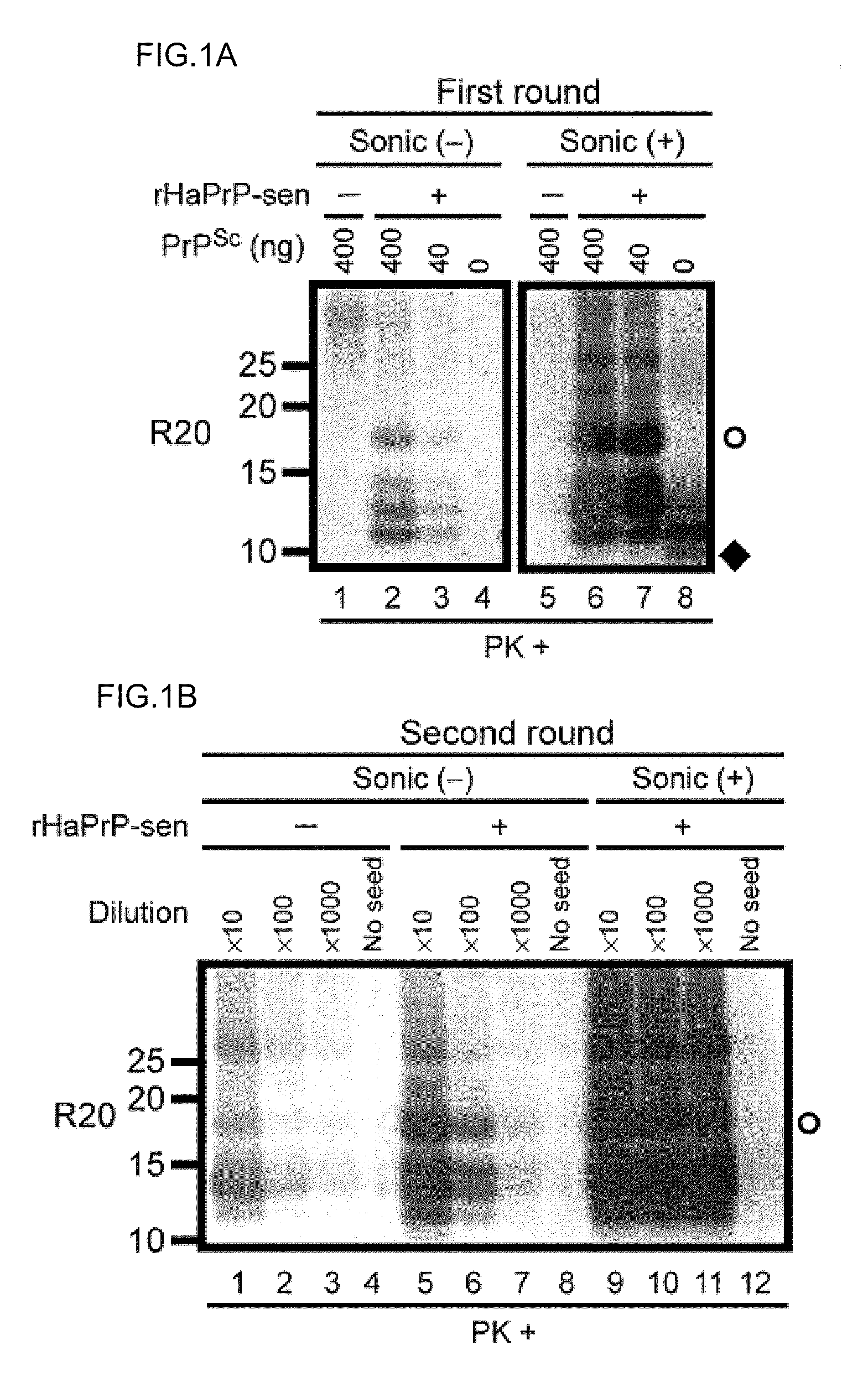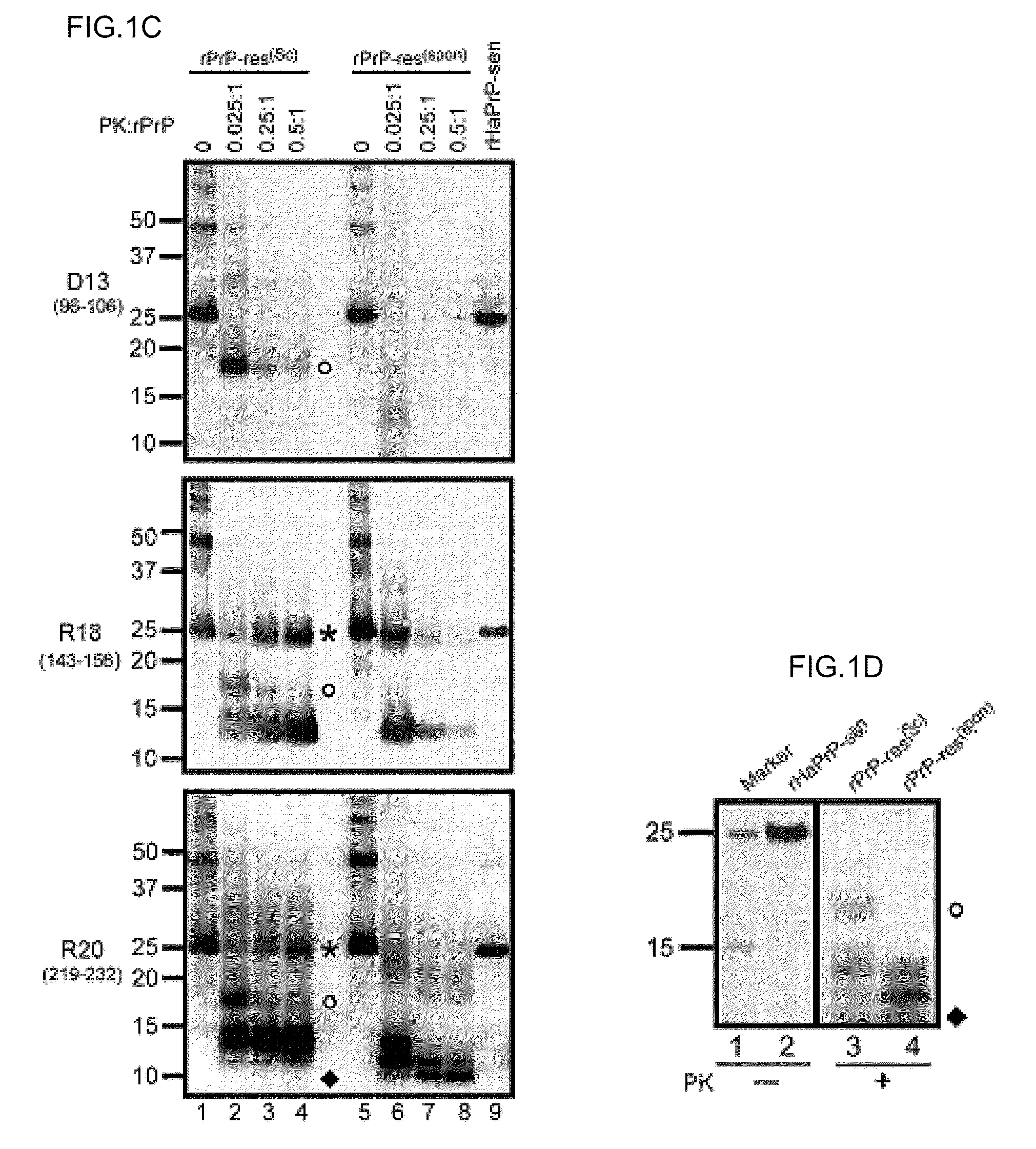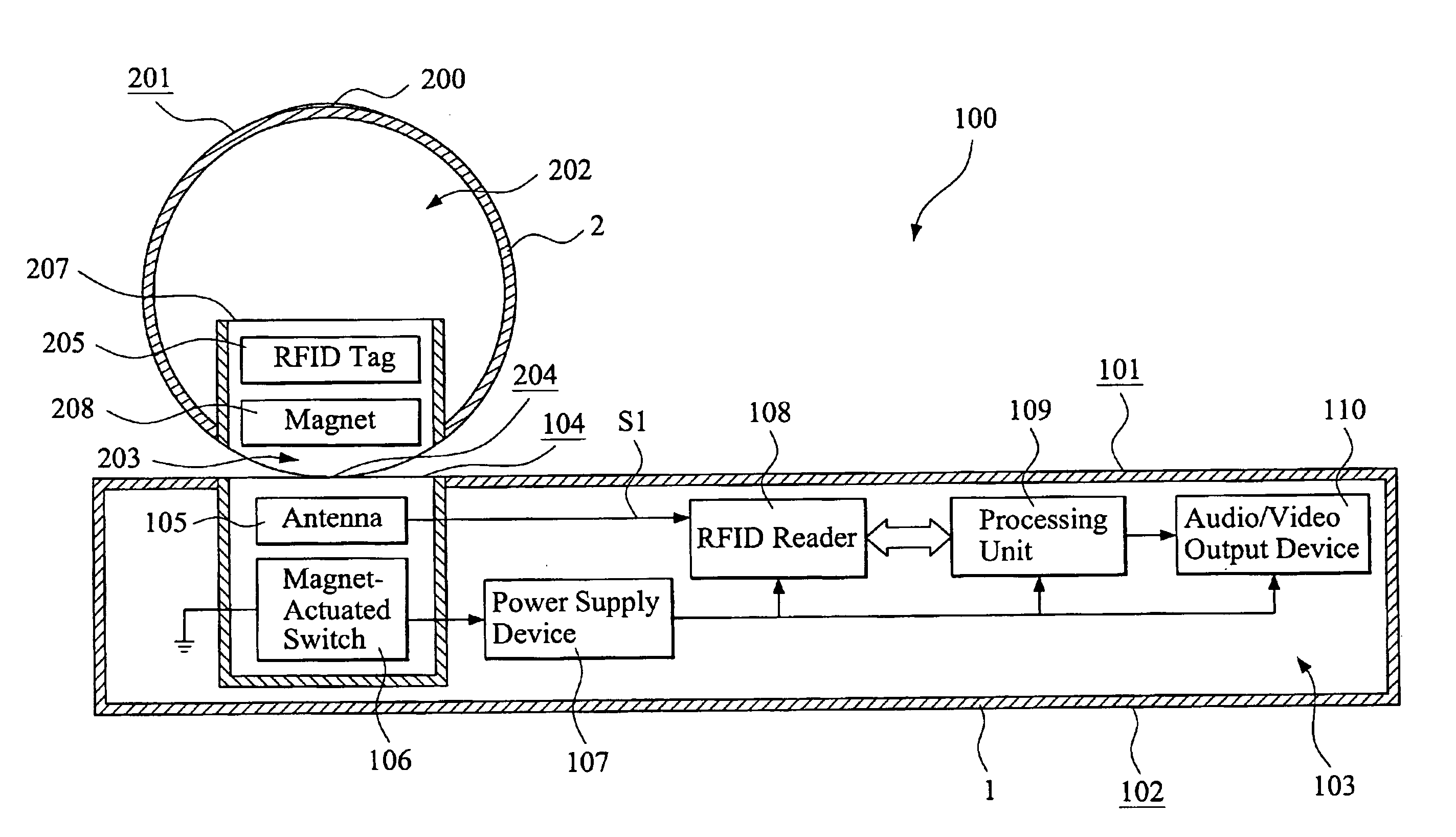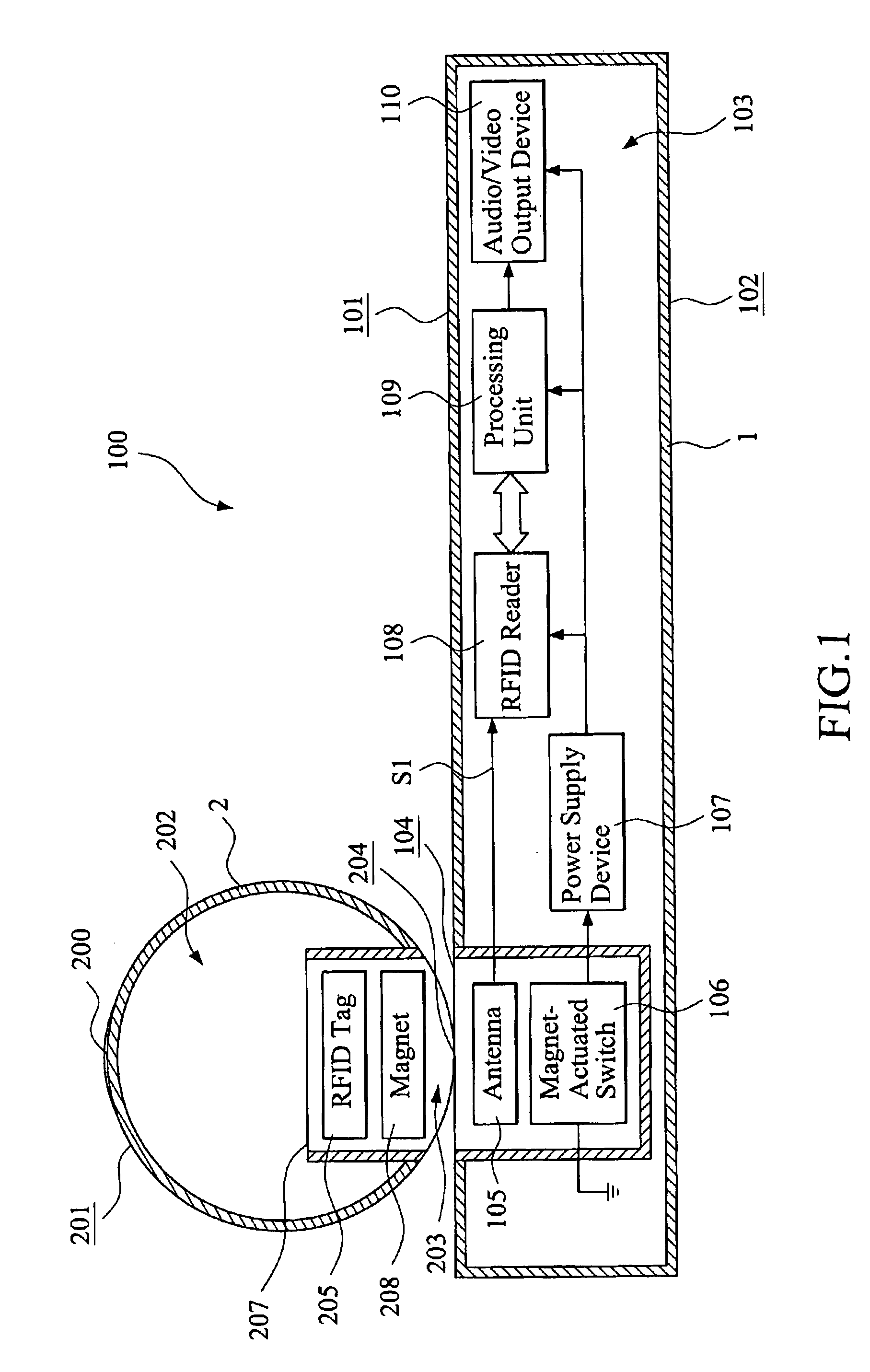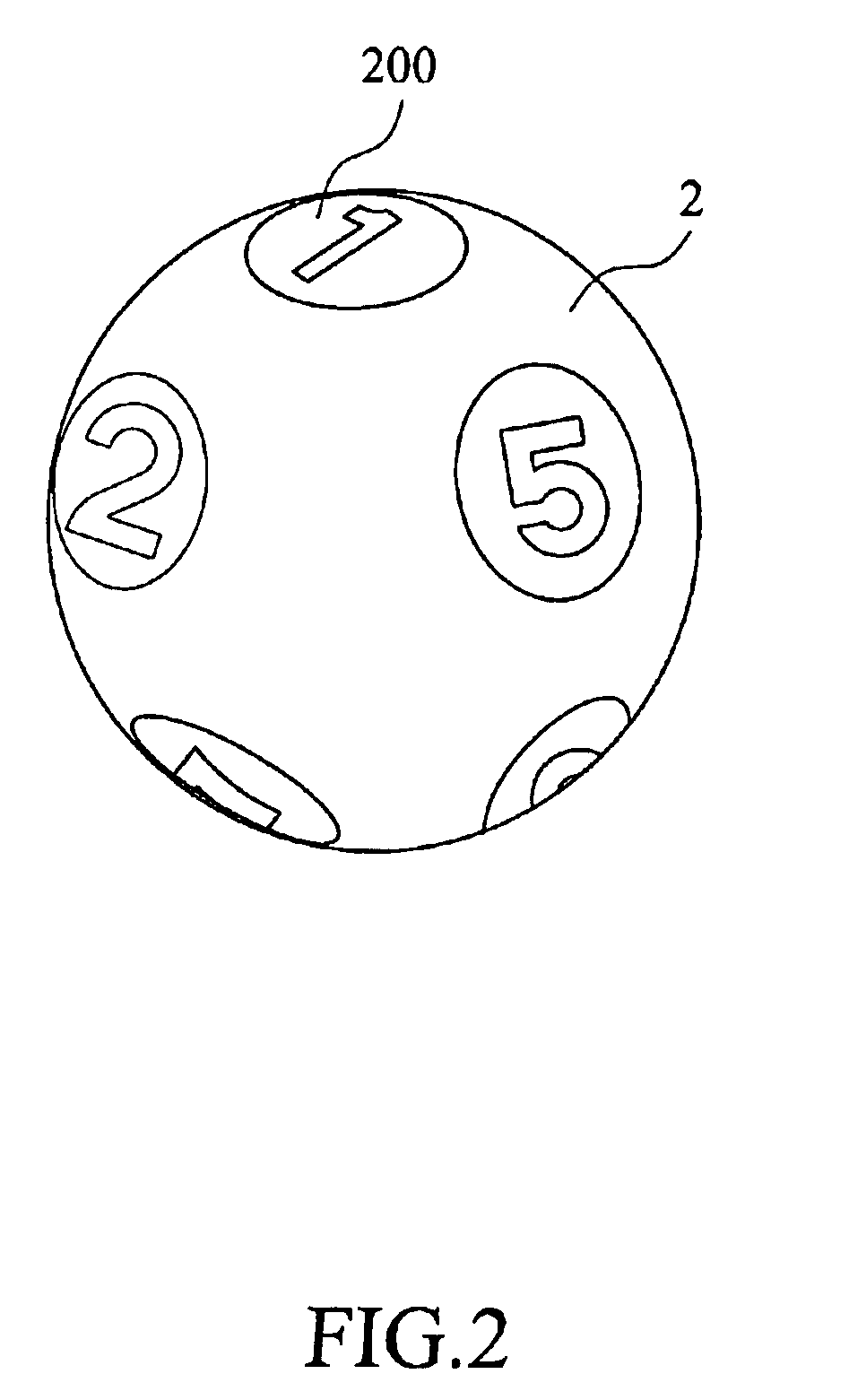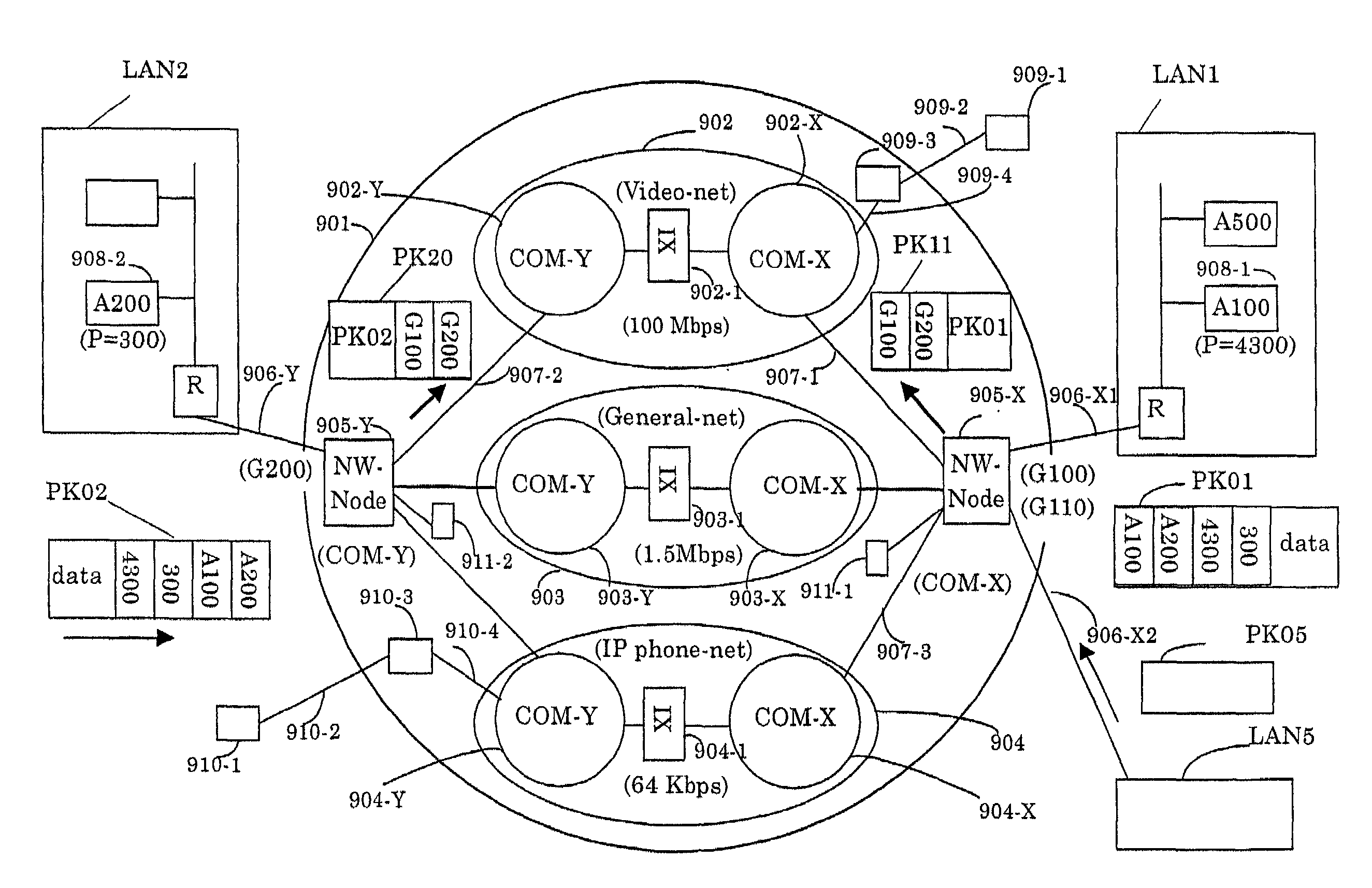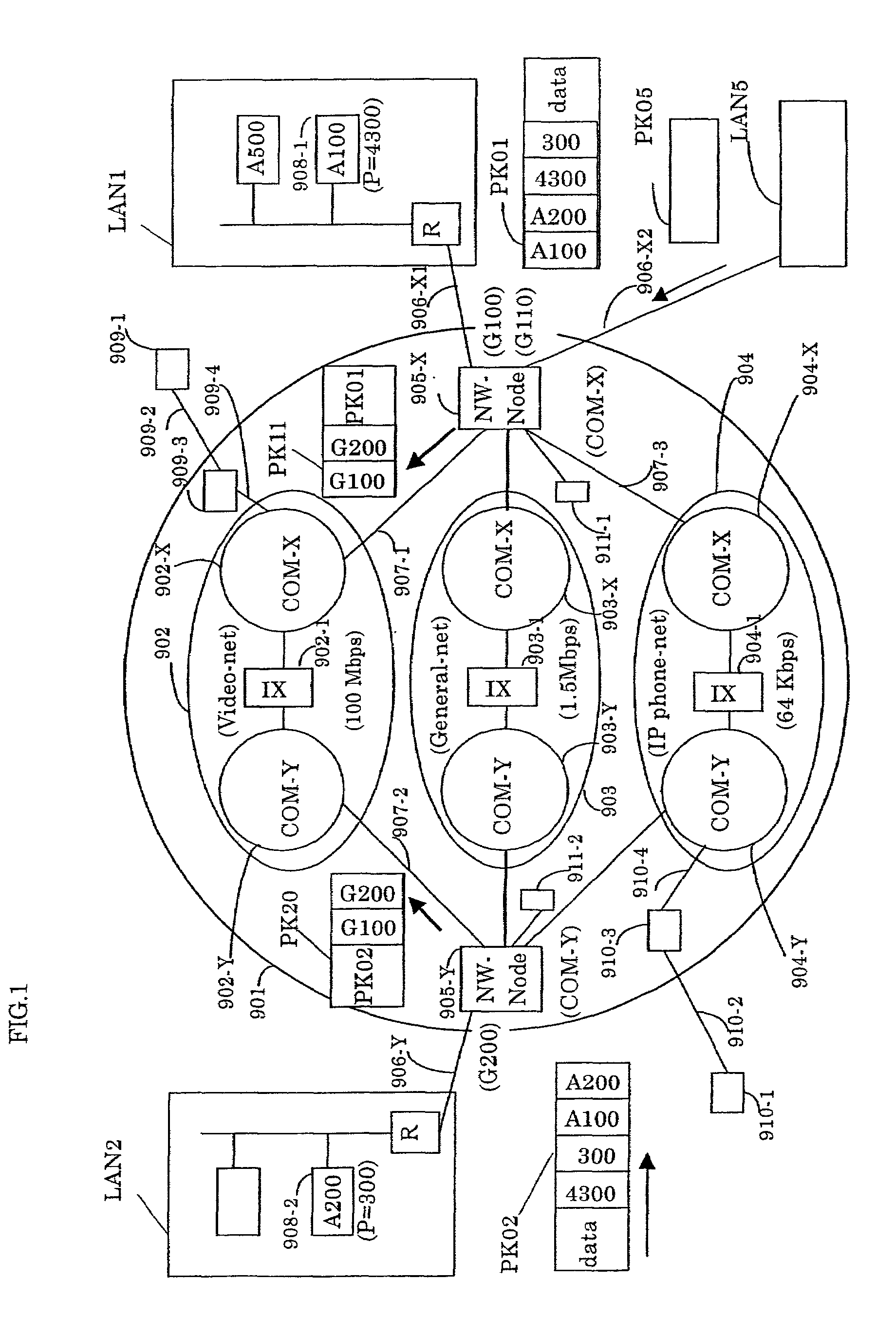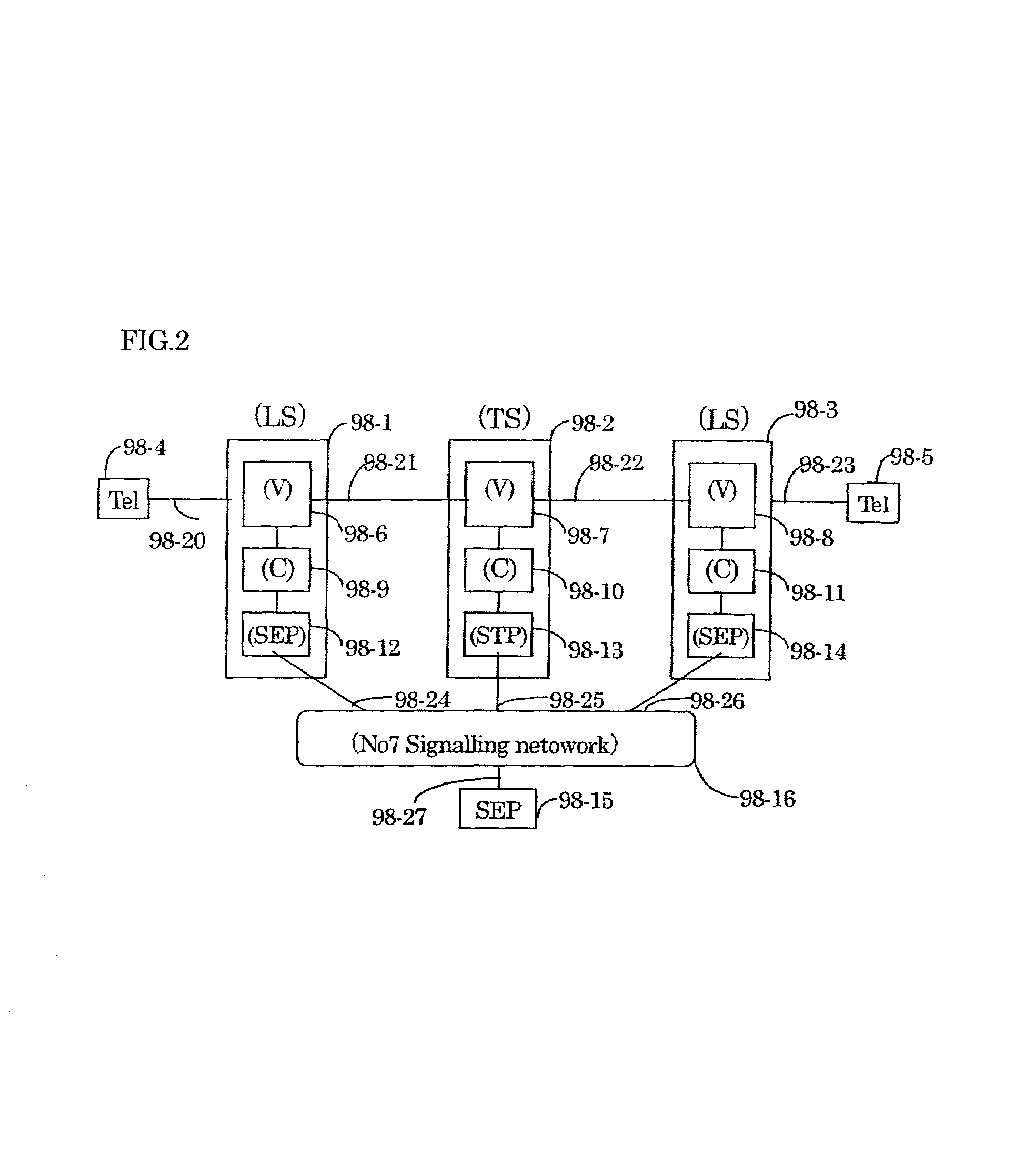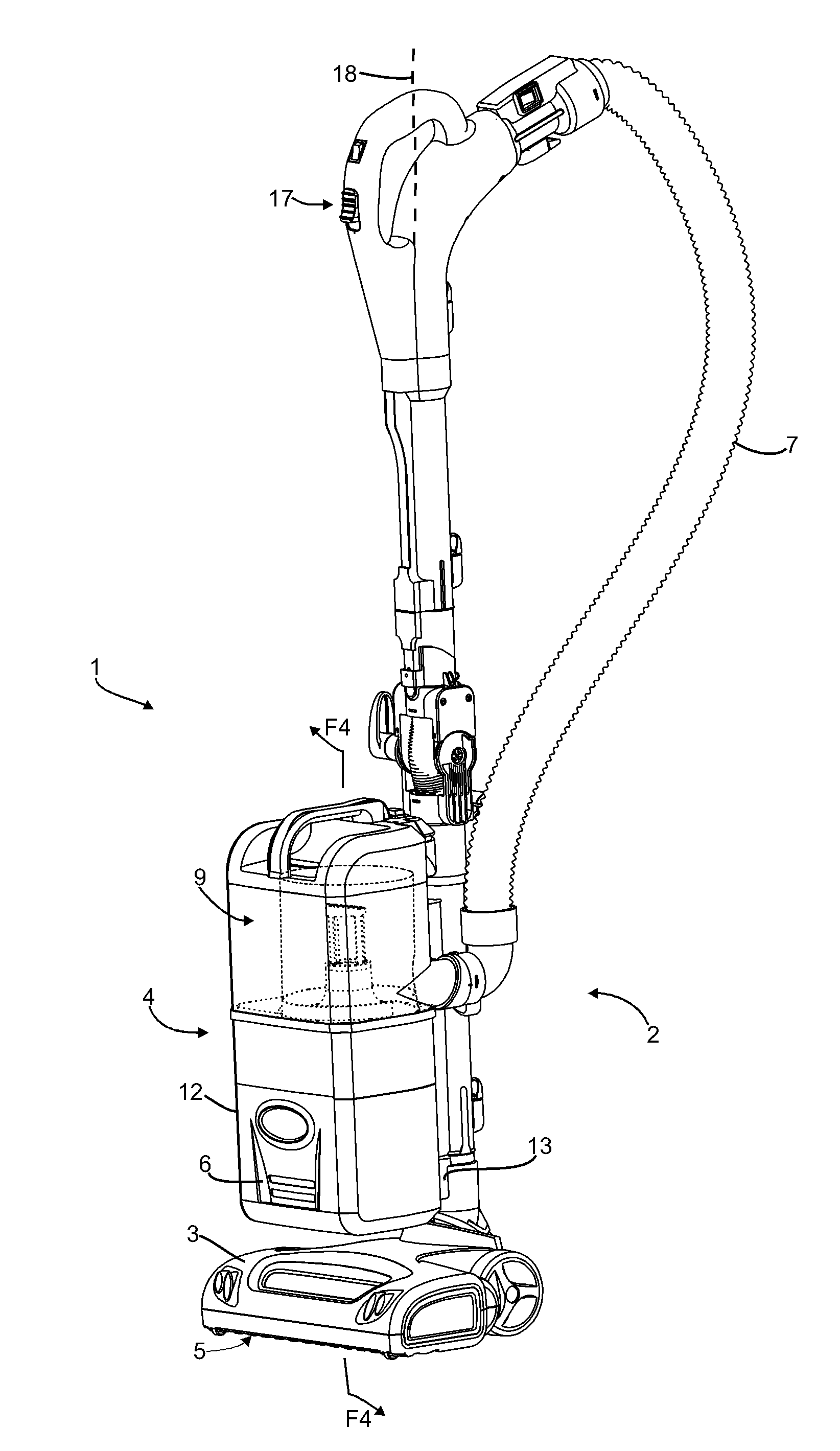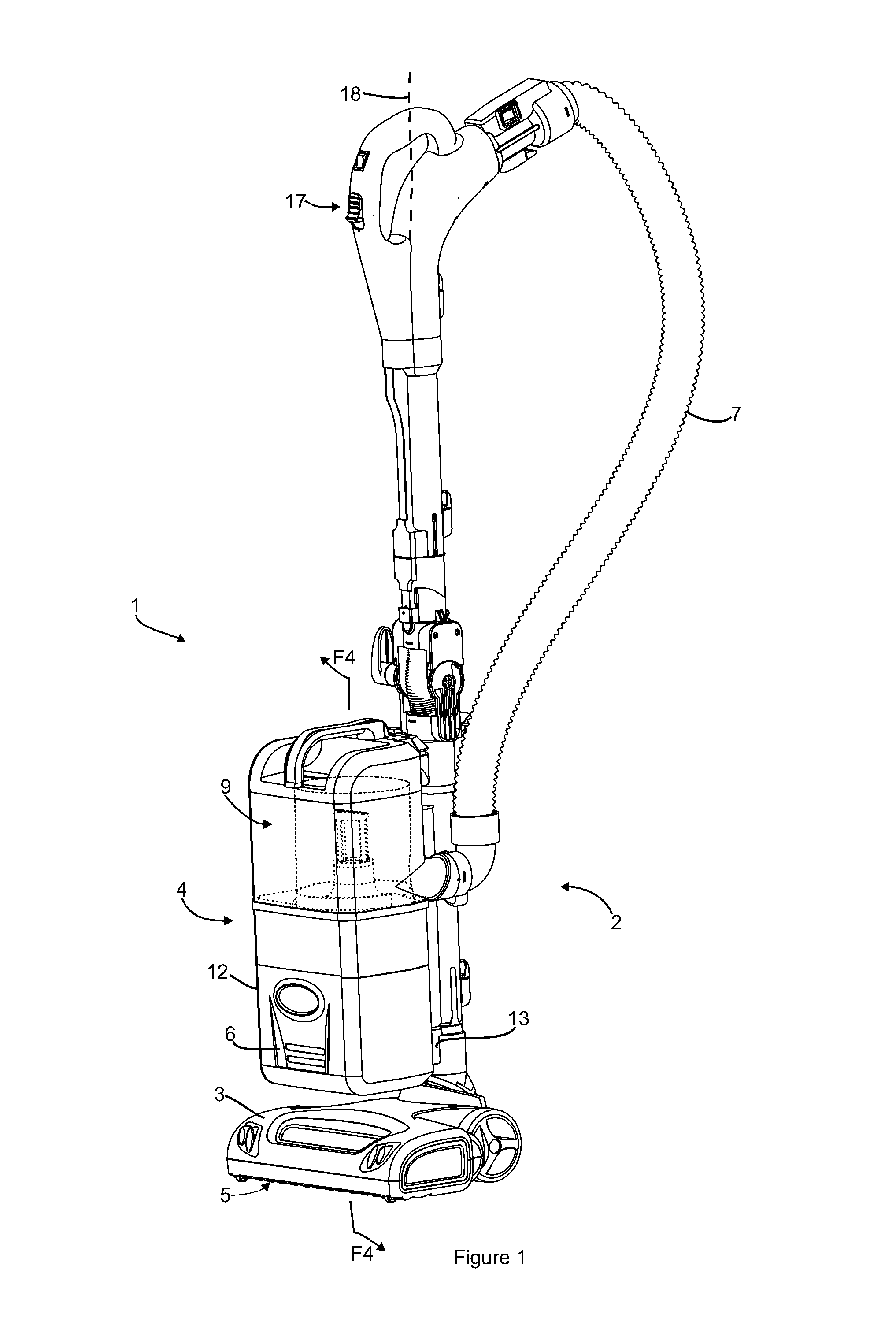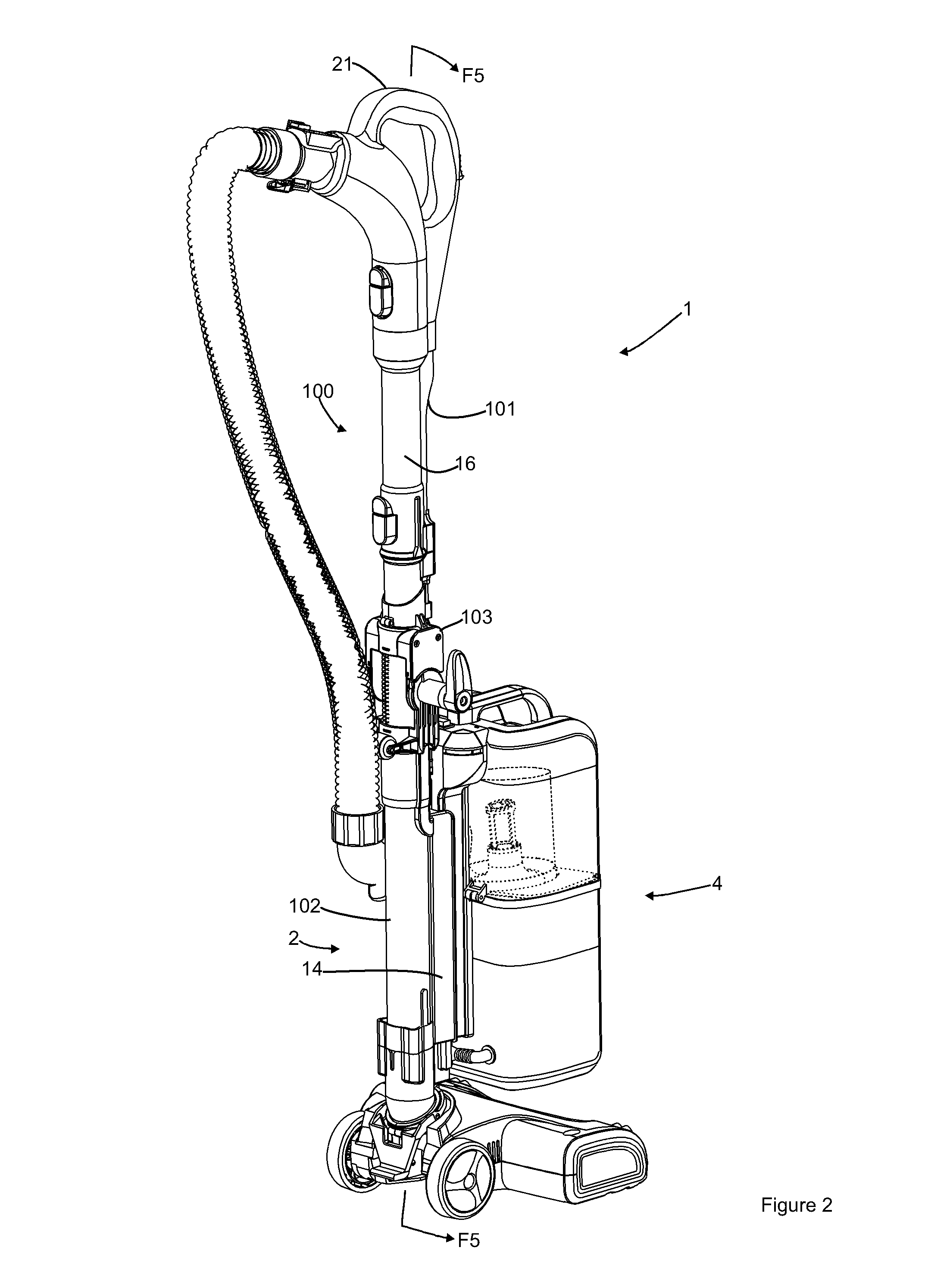Patents
Literature
153results about How to "Transmission limit" patented technology
Efficacy Topic
Property
Owner
Technical Advancement
Application Domain
Technology Topic
Technology Field Word
Patent Country/Region
Patent Type
Patent Status
Application Year
Inventor
Artificial disc implant
InactiveUS6881228B2Reduce overall heightIncrease heightInternal osteosythesisJoint implantsBiomedical engineeringArtificial disc
An artificial disc implant includes an upper shell, a lower shell, and a spacer therebetween. The spacer preferably has properties similar to that of a natural spinal disc, while the upper and lower shells form a rigid interface between the implant and the adjacent vertebral bodies. The upper and lower shells can be configured to prevent expulsion of the spacer from the disc space. The implant upper and lower shells may further be configured into partially cylindrical shapes for ease of insertion through an insertion tube as presently known for interbody fusion devices. The devices may further be configured for insertion through a double-barreled insertion tube. Methods and instruments for inserting an artificial disc implant are also provided.
Owner:SDGI HLDG
Communication devices
InactiveUS20100323657A1Transmission limitImprove securityUnauthorised/fraudulent call preventionEavesdropping prevention circuitsMobile deviceCommunication device
A method, system, and media directed to managing a mobile communications device. In one embodiment, a communication event and spatial state for the mobile device is received. If the event is at least one of a plurality of preselected types and the spatial state of the device satisfies a preselected condition, the communication event is call-processed while initiating a notification of the event to a user of the mobile device.
Owner:RETHINK TECH
Antenna coil
InactiveUS20150137612A1Reduced strengthTransmission limitLoop antennas with ferromagnetic coreCharging stationsMagnetic fluxPhysics
Provided is an antenna coil capable of forming a magnetic field in a desired direction in an efficient manner, while suppressing leakage of magnetic flux into a space other than the space in which the magnetic field is formed. The antenna coil includes a main coil portion formed by winding a length of conductor wire around a first reference axis and an auxiliary coil portion formed by winding the conductor wire around a second reference axis. The second reference axis is set to intersect the magnetic flux of the main coil portion at an axial end of the auxiliary coil portion. The main coil portion and the auxiliary coil portion are connected to together form a closed circuit.
Owner:EQUOS RES
Optical element and display device using the same
ActiveUS20100289989A1High light transmittanceDeterioration of image qualityStatic indicating devicesNon-linear opticsLiquid-crystal displayImaging quality
An optical element is arranged in such a manner that a screen thereof can be hardly observed from a predetermined direction, and a deterioration of an image quality caused by moire does not occur. The optical element is constituted by a first polarizing layer, a second polarizing layer, and a liquid crystal layer arranged between these two polarizing layers. In the optical element, absorption axes of the first polarizing layer and the second polarizing layer are located parallel to each other; the liquid crystal layer is made of hybrid-aligned discotic liquid crystal; and an alignment axis of the liquid crystal layer is located parallel to, or perpendicular to both absorption axes of the first polarizing layer and of the second polarizing layer.
Owner:PANASONIC LIQUID CRYSTAL DISPLAY CO LTD +1
Method and system for modulating eating behavior by means of neuro-electrical coded signals
InactiveUS20060206169A1Limitation for transferTransmission limitHead electrodesEsophageal electrodesEngineeringElectric signal
A method for modulating eating behavior comprising (i) generating at least one confounding neuro-electrical signal that is adapted to modulate the sense of taste in the body, (ii) generating at least one confounding neuro-electrical signal that is adapted to modulate the sense of smell in the body, and (ii) transmitting at least one of the confounding neuro-electrical signals to a subject to modulate the subject's sense of taste or smell. In a preferred embodiment, both confounding neuro-electrical signals are transmitted to the subject to modulate the subject's sense of taste and smell.
Owner:NEUROX CORP +1
Content-aware congestion control system
InactiveUS20080186852A1Graceful degradation of qualityEffective resourcesError preventionFrequency-division multiplex detailsTraffic capacityControl system
A content-aware congestion control scheme for software MPLS routers enables the MPLS routers to discard packets with less important content when there is congestion in the network. By employing such content-aware congestion control, the overall quality of multimedia content is not significantly affected, enabling graceful degradation of quality using a Wavelet based compression technique. The MPLS router marks wavelet-based compressed multimedia packets as those containing important or less important contents of compressed and encoded frames. Such markings enable the MPLS router to make decisions according to the packet's priority. At times of congestion, this router restricts the rate of outgoing low priority traffic to allow high priority streams to maintain a gracefully degraded QoS for compressed multimedia content.
Owner:KING FAHD UNIVERSITY OF PETROLEUM AND MINERALS
Seat air conditioner for vehicle
InactiveUS20060138812A1Large capacityAbsorption of relative displacement of the blower unitVehicle seatsAir-treating devicesEngineeringAir blower
A seat air conditioner for a vehicle seat includes a blower unit which has a blower fan and an air discharge duct, a vibration isolation unit arranged between the blower unit and a cushion member of the seat, and an accordion duct which is arranged between the air discharge duct and an air passage defined in the cushion member. The blower unit is disposed at an opposite side to the cushion member with respect to seat spring members of the seat. Air blown by the blower fan flows toward a plurality of blowing-out openings formed at a surface cover member of the seat, through the air discharge duct, the accordion duct and the air passage formed in the cushion member.
Owner:DENSO CORP
Cockpit module assembly including air conditioner for vehicle
InactiveUS6351962B1Transmission limitReadily simply formedAir-treating devicesLighting and heating apparatusEngineeringDashboard
In a vehicle cockpit module assembly having at least an air conditioner disposed inside a dashboard, a protrusion piece for determining an arrangement position of an air-conditioning unit of the air conditioner within the dashboard is provided at the air-conditioning unit. A front load support portion for supporting a front side load of the air-conditioning unit is constructed by a drain pipe of the air-conditioning unit, and a rear load support portion for supporting a rear side load of the air-conditioning unit is constructed by rear foot ducts of the air-conditioning unit. Accordingly, in the cockpit module assembly, the air conditioner can be stably supported in the vehicle.
Owner:DENSO CORP
Method and system for preventing virus-related obesity and obesity related diseases
ActiveUS20120276525A1Promote hygiene habitsTransmission limitBioreactor/fermenter combinationsBiological substance pretreatmentsUses eyeglassesDisease
A method for preventing obesity related to infection by an adipogenic adenovirus includes assaying a sample from a person to determine whether the person has been previously infected with an adipogenic adenovirus, and if the person has not been previously infected, providing the person with at least one sensor positioned to detect when a person's hand approaches a predetermined distance from the person's face. By warning the person of undesired hand-to-face contacts, the person is able to reduce the incidence of obesity related infections. Other embodiments are directed to a kit for preventing obesity caused by infection with an adipogenic adenovirus, such kit including a container for assaying an agent indicating the presence of antibodies to Ad-36, and a sensor positioned on an item selected from the group consisting of one of a hat, a writing instrument, eye glasses, a belt, sunglasses, a bra, a shirt, and a tie.
Owner:NOHANDS +1
Apparatus, communication system and methods for enabling spectrum access
ActiveUS20070253466A1Reduce transmit powerTransmission limitAnalogue secracy/subscription systemsConnection managementCommunications systemFrequency spectrum
Embodiments of the invention provide for allocating spectrum in a wireless communication system that supports simultaneously at least a first mode of operation and a second mode of operation. Logic is arranged for determining a proportion of spectrum required for the wireless communication unit to operate simultaneously in both the first mode of operation and the second mode of operation. Logic for allocating spectrum allocates a temporary guard band between a first portion of spectrum for the first mode of operation and a second portion of spectrum for the second mode of operation for use whilst the wireless communication unit operates simultaneously in the first mode of operation and second mode of operation.
Owner:NVIDIA CORP
Communication device and data conversion device
InactiveUS20050134903A1Transmission limitReduce laborDigital computer detailsVisual presentationData conversionCommunication unit
A communication device which reduces labor of a user required for an operation for specifying data without losing convenience of the data, and a data conversion device which converts the data into data which can be used in such a communication device. When creating a transmission file by a terminal device, an identifier is added to the file by a driver and the file is stored in any location within a retrieval range. At the communication device, the user inputs an identifier from an input unit. With the identifier as a retrieval key, a file on a data exchange network is retrieved and the acquired file is transmitted as a transmission file from a communication unit. In this case, the identifier added to the file is deleted and then the file is transmitted. When a plurality of files are retrieved, the files are selected and designated by the user and the selected file is transmitted.
Owner:MURATA MASCH LTD
Seat air conditioner for vehicle
InactiveUS7261372B2Large capacityAbsorption of relative displacement of the blower unitVehicle seatsAir-treating devicesEngineeringVibration isolation
A seat air conditioner for a vehicle seat includes a blower unit which has a blower fan and an air discharge duct, a vibration isolation unit arranged between the blower unit and a cushion member of the seat, and an accordion duct which is arranged between the air discharge duct and an air passage defined in the cushion member. The blower unit is disposed at an opposite side to the cushion member with respect to seat spring members of the seat. Air blown by the blower fan flows toward a plurality of blowing-out openings formed at a surface cover member of the seat, through the air discharge duct, the accordion duct and the air passage formed in the cushion member.
Owner:DENSO CORP
Imaging sensor optical system
InactiveUS7212283B2Eliminate the effects ofTransmission limitElectric/magnetic detection for well-loggingSurveySpectral transmissionAudio power amplifier
The present invention relates to an in-vessel or down-hole optical imaging sensor or system for operating in structures which may contain media with different spectral transmission characteristics. The imaging sensor of the present invention selectively emits and / or detects two or more independently controllable wavelengths or wavebands. The imaging sensor comprises an illuminator for emitting radiation of a specified wavelength or waveband through a medium to a target, at least one detector for detecting the radiation deflected by said target and at least one amplifier for providing non-linear amplification of the detector output.
Owner:PRONETA
Apparatus and method for synchronizing presence attribute data between terminal and server
ActiveUS20050086376A1Efficient Data SynchronizationAvoid trafficData switching by path configurationMultiple digital computer combinationsClient-sideData storing
An apparatus and method for synchronizing data between a terminal and a server. The apparatus synchronizes presence attribute data when the terminal and the server are connected to each other to establish a messenger service between them. The client terminal requests presence attribute data to be updated from a server when it is reconnected to the server having been previously connected to the client terminal to perform the messenger service, and updates presence attribute data stored at a time of a previous connection upon receiving the presence attribute data to be updated from the server. The server receives a presence attribute data request to be updated from the client terminal, and transmits only updated presence attribute data, created after releasing the previous connection, from among current presence attribute data to the client terminal.
Owner:SAMSUNG ELECTRONICS CO LTD
Optical device, light-condensing backlight system, and liquid crystal display
InactiveUS20060238867A1Effective reflectionIncrease brightnessLiquid crystal compositionsPolarising elementsLiquid-crystal displayAngle of incidence
An optical element of the invention comprises at least three laminated circular-polarization-type-reflection polarizers (a) whose wavelength bands for selective reflection of polarized light overlap one another; a layer (b1) which is placed between at least a pair of the circular-polarization-type-reflection polarizers (a) and has a front retardation of substantially zero (in the normal direction) and a retardation of at least λ / 8 with respect to incident light inclined by at least 30° relative to the normal direction; and a layer (b2) which is placed between at least another pair of the circular-polarization-type-reflection polarizers (a) and has a front retardation of substantially zero (in the normal direction) and a retardation of at most μ / 2 with respect to incident light inclined by 60° relative to the normal direction. The optical element condenses or collimates incident light from a light source and can control transmission of light at large incident angles relative to the normal direction, increase front brightness and reduce coloration.
Owner:NITTO DENKO CORP
Resource Setting Control for Transmission Using Contention Based Resources
InactiveUS20120230238A1Transmission limitPower managementTransmission systemsResource elementUser equipment
There is proposed a mechanism for controlling a transmission of a connection quality information, like CQI, from a UE to a base transceiver station via an uplink connection. Resources of an uplink control channel for the trans-mission of the connection quality information are set for a plurality of UEs. A collision between transmissions of the connection quality information by at least two user equipments of the plurality of UEs on a same resource element is detected or predicted on the basis of input information, and a collision prevention processing is executed when such collision is detected or predicted.
Owner:NOKIA SOLUTIONS & NETWORKS OY
Gasket for fuel injector
InactiveUS6866026B2Effective seal against leakageTransmission limitEngine sealsNoise reducing fuel injectionCylinder headEngineering
A gasket (48, 48′, 48″) and (70) for disposition between a fuel injector (22) and a cylinder head (14) comprises compressible polymer layers (62, 64, 74, 92) and incompressible and flat metal layers (60, 72, 90) sandwiched between the polymer layers. In the embodiments of FIGS. 6-8, a polymer body (80, 96) is disposed radially inwardly of the incompressible layer (72) or layers (90) and includes a bead portion (86) thicker than the total thickness of the incompressible and polymer layers (72), and (74, 90) and (92). The body (80, 96) also includes a recess portion (82-84) having a thickness less than the total thickness to define a recess (88) adjacent the bead portion (86). The bead portion (86) is disposed radially between the recess portion (82-84) and the incompressible layer (72 or 90).
Owner:FEDERAL MOGUL WORLD WIDE LLC
Device for limiting field on which radiation is irradiated
InactiveUS7965819B2Reduce thicknessForming accuratelyHandling using diaphragms/collimetersIrradiation devicesDrive shaftElectrical and Electronics engineering
An irradiation field limiting device includes a plurality of aperture leaves arranged in a thickness direction, a flexible linear member secured to a thick portion of the aperture leaf, a driver section which drives the linear member a specific amount, and the like. One end of the linear member is secured to an aperture leaf through a connection section tangentially to the outer arc of the aperture leaf, and the other end is connected with a slider provided in a driver section. The slider is connected with a driving source through a connection portion and moves along an axial direction of a drive shaft inserted into a base accompanying rotation of the drive shaft. A load accompanying the movement of the slider is directly transmitted to the linear member, and the aperture leaf is driven a specific amount due to the load.
Owner:RIGHT MFG
Method and System for Preventing Virus-Related Obesity and Obesity Related Diseases
ActiveUS20110144453A1Promote hygiene habitsTransmission limitVaccination/ovulation diagnosticsDisease diagnosisDiseaseUses eyeglasses
A method for preventing obesity related to infection by an adipogenic adenovirus includes obtaining a sample from a person, assaying the sample to determine whether the person has been previously infected with an adipogenic adenovirus, and if the person has not been previously infected, providing the person with at least one sensor positioned to detect when a person's hand approaches a predetermined distance from the person's face. By warning the person of undesired hand-to-face contacts, the person is able to reduce the incidence of obesity related infections. Other embodiments are directed to a kit for preventing obesity caused by infection with an adipogenic, adenovirus, such kit including a container for assaying an agent indicating the presence of antibodies to Ad-36, and a sensor positioned on an item selected from the group consisting of one of a hat, a writing instrument, eye glasses, a belt, sunglasses, a bra, a shirt, and a tie.
Owner:SEED HEALTH INC +1
Wireless transmission of packetized command and image data
Graphical display data representing an image for display is packetized for wireless transmission. At least one command for displaying the image from the data is within the packet. The command is used to display the image, as represented by the packetized data, in related configurations to create an animated display or at predetermined times or intervals to make the image appear spontaneously or be removed after a predetermined period of time for later display or are erased. Transmission of the packetized data occurs when the receiving devise is idle. The transmission of the packets may be interrupted by a present need to establish a communications channel with the receiving device, for example for voice communication or for transmission of hyperlinked data. A handshake protocol is used to assure the parts of the packetized data are successfully downloaded.
Owner:GOOGLE TECH HLDG LLC
LAN relaying/switching apparatus
InactiveUS6785238B1Transmission limitEasy to useError preventionTransmission systemsData transmissionDistributed computing
In a LAN relaying / switching apparatus accommodating many LAN transmission lines, a controller performs a flow control which limits a data transmission for terminal portions which have inputted the data in which an output queue of a queue portion included in queue management module portions has exceeded a preset threshold value.
Owner:FUJITSU LTD
Vehicle-tire-state detection/communication apparatus and tire-data communication apparatus
InactiveUS7116218B2Low costEasy constructionInflated body pressure measurementOptical signallingData setTransceiver
A detection / communication apparatus to be installed on a vehicle having a plurality of tires. The apparatus includes: (a) tire state detectors which are provided on the respective tires and each of which detects a state of a corresponding one of the tires; (b) local transceivers which are provided on the respective tires and which transmit tire data sets relating to the respective tires; (c) a central receiver which is provided on a vehicle body and which receives the tire data sets transmitted by the local transceivers; (d) a particular-signal transmitter which is provided on the vehicle body and which transmits a particular signal; and (e) data-transmission modifiers which are provided on the respective tires. Each of the data-transmission modifiers is operable depending upon a state of reception of the particular signal by a corresponding one of the local transceivers, to modify transmission of a corresponding one of the tire data sets by the corresponding one of the local transceivers.
Owner:TOYOTA JIDOSHA KK
Laser scanning microscope
There is disclosed a laser scanning microscope including a first optical scanning system which scans a first laser light for observing a sample on the sample, a first light branch device which branches the light from the sample from an optical path of the first laser light, a photodetector which detects the light from the sample, separated by the first light branch device, a second optical scanning system which irradiates a specific portion on the sample with a second laser light for stimulating or operating the sample, and a wavelength selection device which is disposed between the first light branch device and photodetector and which includes a first function of transmitting a desired observation light and a second function of limiting transmission of the second laser light.
Owner:EVIDENT CORP +1
Cyclone such as for use in a surface cleaning apparatus
ActiveUS20140237965A1Reduces suctionReduce back pressureReversed direction vortexDispersed particle separationEngineeringPhencyclone
A cyclone comprises a cyclone chamber having a first end having a first end wall, a second end having a second end wall, a sidewall, an air inlet at the first end, an air outlet and a first central insert member extending away from a center of the second end wall into the cyclone chamber wherein the first central insert member comprises a central member wall extending away from the second end wall and the central member wall and the second end wall meet at a first juncture that extends at an angle to both the central member wall and the second end wall
Owner:OMACHRON INTPROP
Signal processing circuit and signal processing system of touch screen
ActiveUS20130300692A1Improve signal-to-noise ratioAvoid noiseStatic indicating devicesInput/output processes for data processingSignal processing circuitsTouchscreen
The present invention discloses a signal processing circuit and a signal processing system for processing an input signal provided from a touch screen in response to a driving signal.
Owner:SILICON WORKS CO LTD
Tyre equipped for attaching an object to the wall thereof and method for making same
ActiveUS20100230024A1Transmission limitReducing and preventing transmissionTyresSecuring devicesEngineeringMechanical engineering
A tyre is described that includes a casing defining a cavity and equipped to receive an object, such as an electronic circuit, for example, through use of a two-part attachment, such as a touch-close attachment, of which a first part is fixed to a wall of the casing and a second part can be joined to the first part when placed in contact with the first part to keep the object on the casing in a service position. The first part of the attachment includes connection elements that are an integral part of the wall of the casing of the tyre. The connection elements allow these two parts to have freedom to move relative to each other, thereby limiting the transmission of stresses, which affect the wall of the tyre, to the object. The connection elements may be loops of flexible thread formed by the extremities of turns of a coiled thread integrated into the wall of the tyre during the tyre's manufacture.
Owner:MICHELIN & CO CIE GEN DES ESTAB MICHELIN
Detection of infectious prion protein by seeded conversion of recombinant prion protein
ActiveUS20090047696A1Transmission limitAddressing Insufficient SensitivityMicrobiological testing/measurementChemiluminescene/bioluminescenceRapid identificationFood supply
The present disclosure relates to methods and compositions for the detection of infectious proteins or prions in samples, including the diagnosis of prion related diseases. One embodiment is an ultrasensitive method for detecting PrP-res (PrPSc) that allows the use of recombinant PrP-sen (rPrP-sen) as a substrate for seeded polymerization. A sample is mixed with purified rPrP-sen to make a reaction mix which is incubated to permit aggregation of the rPrP-sen with the PrP-res that may be present in the sample. Any aggregates are intermittently disaggregated by agitation (for example by sonication) and the reaction allowed to proceed to amplify target substrate. Any rPrP-res(Sc) in the reaction mix is detected to indicate the presence of PrP-res in the original sample. This assay, which is called rPrP-PMCA, is surprisingly much faster than existing PMCA methods, yet it still retains sufficient sensitivity to detect extremely low levels of PrP-res. An alternative of rPrP-PMCA is the QUIC method in which shaking of the reaction mixture is substituted for sonication. The surprising speed and efficiency of the method permits the rapid identification and diagnosis of prion disease, which can limit the transmission of prion diseases, particularly through the food supply.
Owner:UNITED STATES OF AMERICA
Learning device using RFID tags
InactiveUS20080048869A1Learn knowledgeExercise a skill easilyBurglar alarm by hand-portable articles removalTeaching apparatusEngineeringBroadcasting
A learning device using RFID tags is provided. The learning device includes a platform and at least one RFID tag unit. The tag unit includes at least one RFID tag with an identification code and a magnet at the inner space of the RFID tag unit. When the RFID tag unit is placed at an interrogation zone of the platform, the magnet actuates the magnet-induced switch to turn on and drives the power supply device to provide power. The signal S1 from the RFID tag is transmitted though the RFID reader for decoding and the processing unit for processing. The signal is sent to an audio / video output device for displaying and broadcasting. A plurality of platforms are formed a platform array, each of the platform including at least one receiver and at least one transmitter correspondent to the receiver, the transmitter transmitting a signal which represents the position of the transmitter, while the receiver receiving signals from the transmitter to recognize the relative positions of the platforms.
Owner:CHUNG HUA UNIVERSITY
Terminal-to-terminal communication connection control method using IP transfer network
InactiveUS7301952B2Improve information securityAvoid congestionSpecial service provision for substationData switching by path configurationPacket communicationTrunking
Both a connection server and a relay connection server are installed in an IP transfer network; a function similar to a line connection control of a subscriber exchanger is applied to a connection server; a function similar to a line connection control of a relay exchanger is applied to the relay connection server; and a terminal-to-terminal communication connection control method with using the IP transfer network is realized in such a manner that a telephone set and a terminal such as an IP terminal and a video terminal transmit / receive an initial address message, an address completion message, a call pass message, a response message, a release message and a release completion message, which can be made in a 1-to-1 correspondence relationship with line connection control messages of the common line signal system. Furthermore, while an address administration table is set to a network node apparatus of an IP transfer network, means for registering addresses of the terminals into this address administration table is employed, so that an IP packet communication by a multicast manner can be realized with improving information security performance.
Owner:DISTRIBUTION SYST RES INST THE AN UNDIVIDED 60 INTEREST +1
Surface cleaning apparatus
ActiveUS9326652B2Low efficiencySpeed up the air flowSuction filtersSuction hosesCycloneSurface cleaning
A surface cleaning apparatus is provided wherein a uniflow cyclone comprises a cyclone chamber defined by a longitudinal axis, the cyclone chamber having a dirt outlet that has a variable length in the direction of the longitudinal axis. A cyclone chamber having a barrier wall facing the dirt outlet of the cyclone chamber is also provided.
Owner:OMACHRON INTPROP
Features
- R&D
- Intellectual Property
- Life Sciences
- Materials
- Tech Scout
Why Patsnap Eureka
- Unparalleled Data Quality
- Higher Quality Content
- 60% Fewer Hallucinations
Social media
Patsnap Eureka Blog
Learn More Browse by: Latest US Patents, China's latest patents, Technical Efficacy Thesaurus, Application Domain, Technology Topic, Popular Technical Reports.
© 2025 PatSnap. All rights reserved.Legal|Privacy policy|Modern Slavery Act Transparency Statement|Sitemap|About US| Contact US: help@patsnap.com
